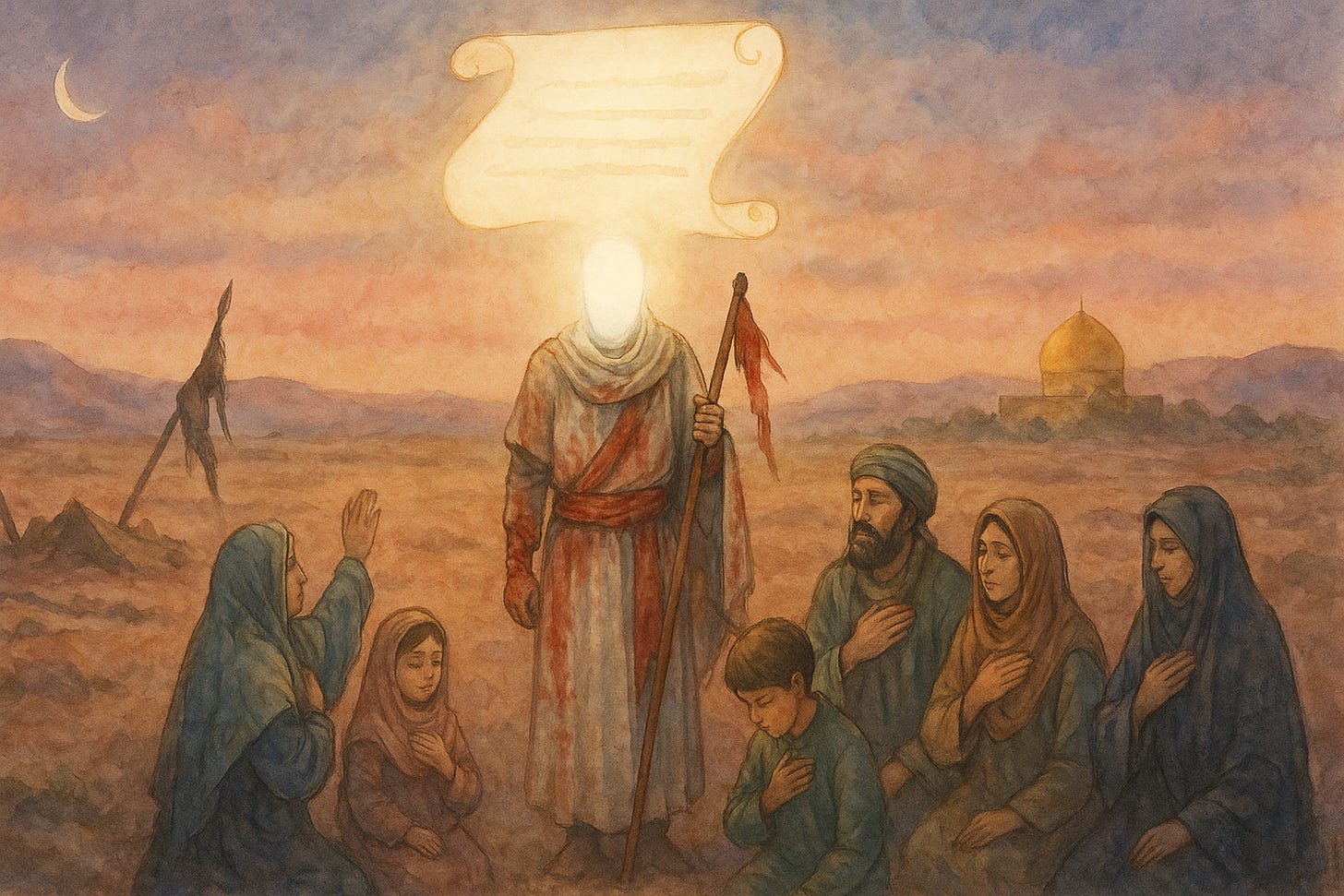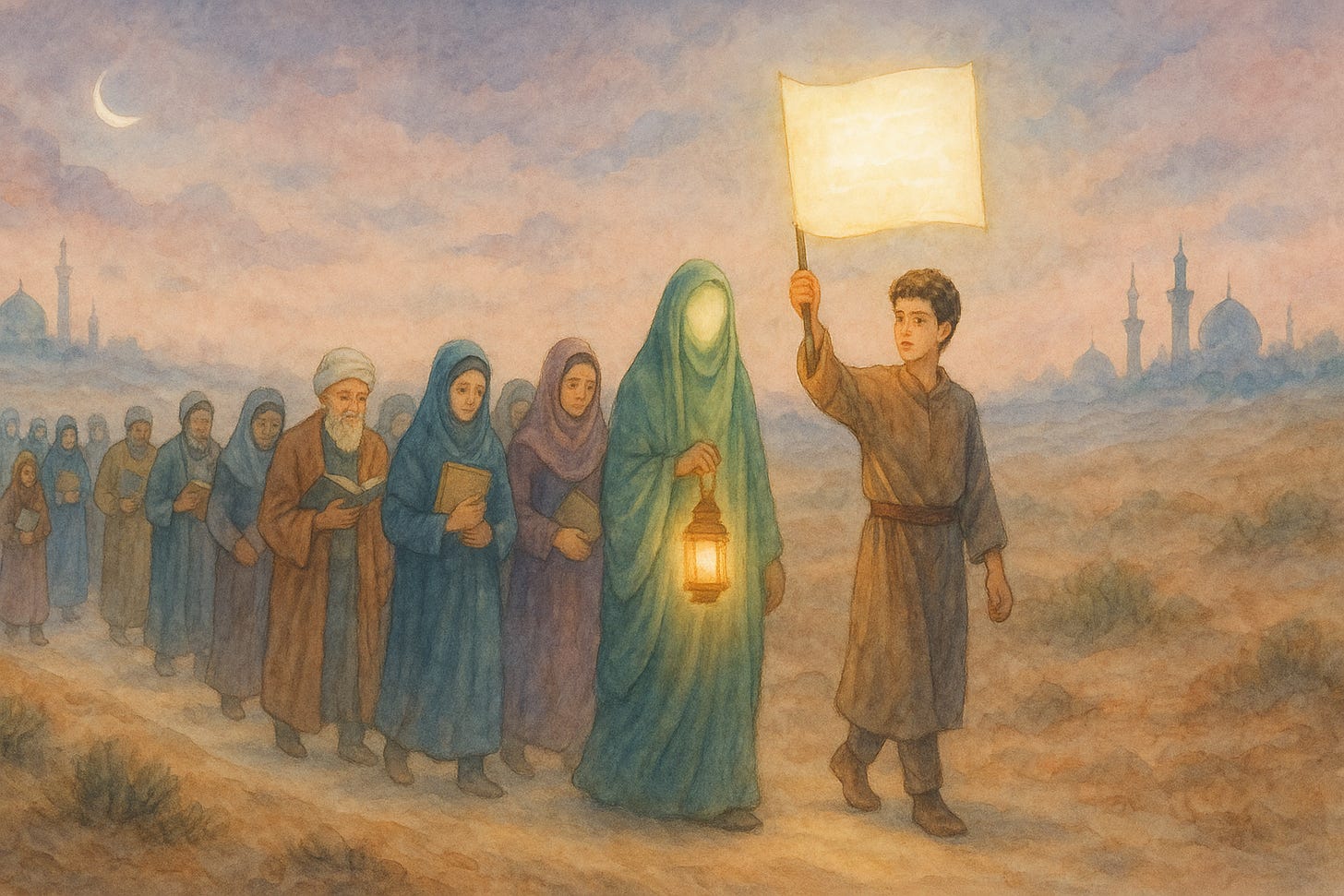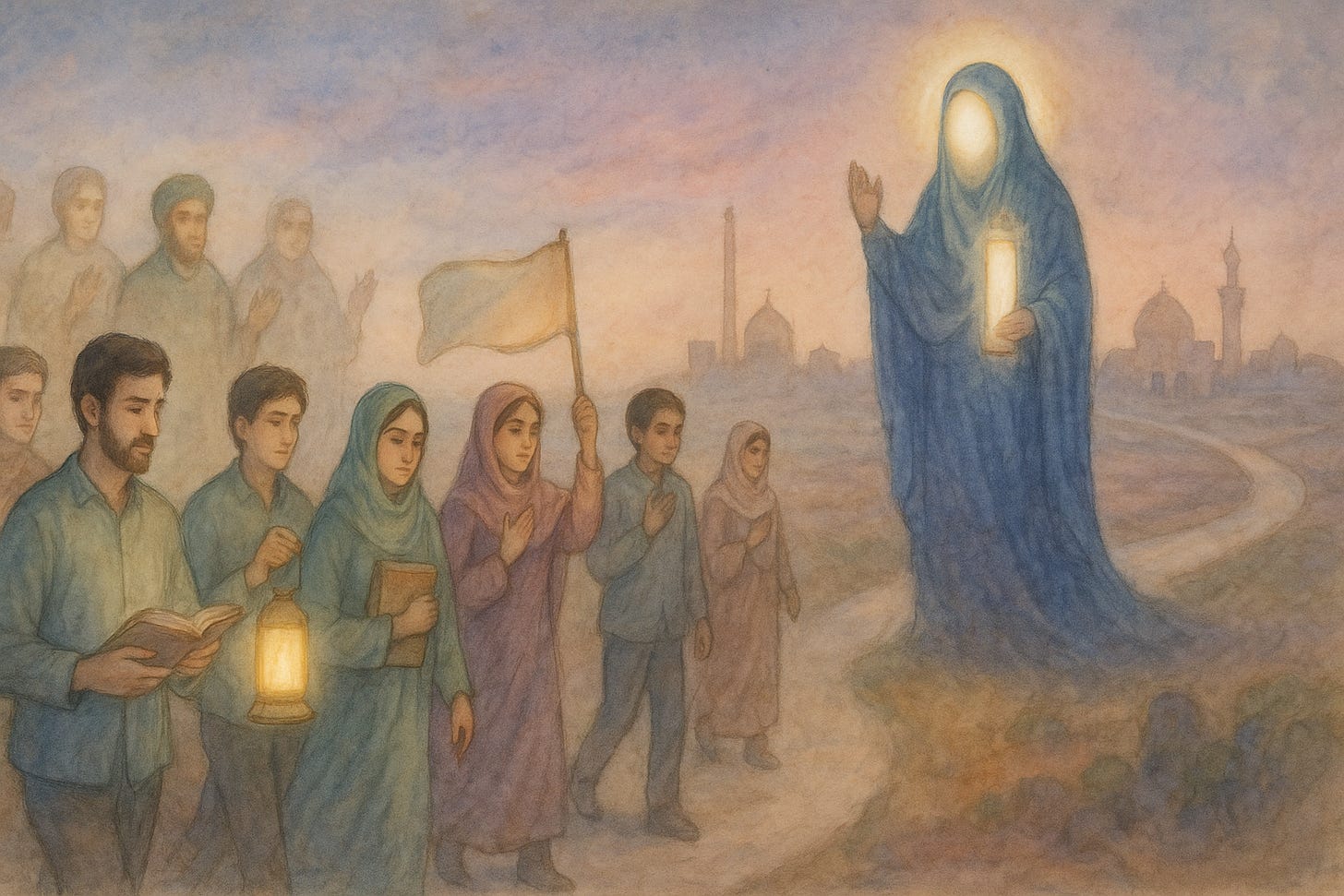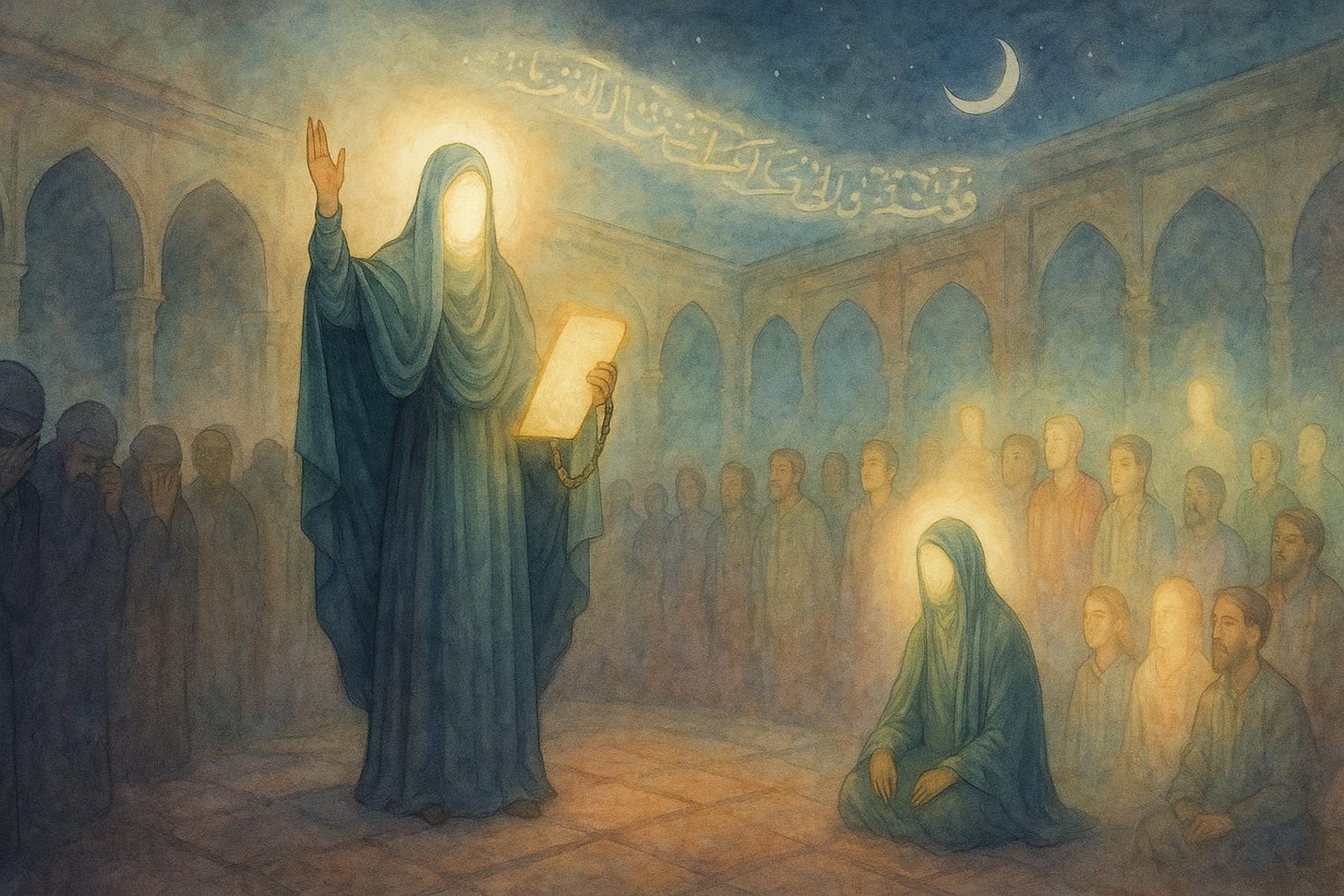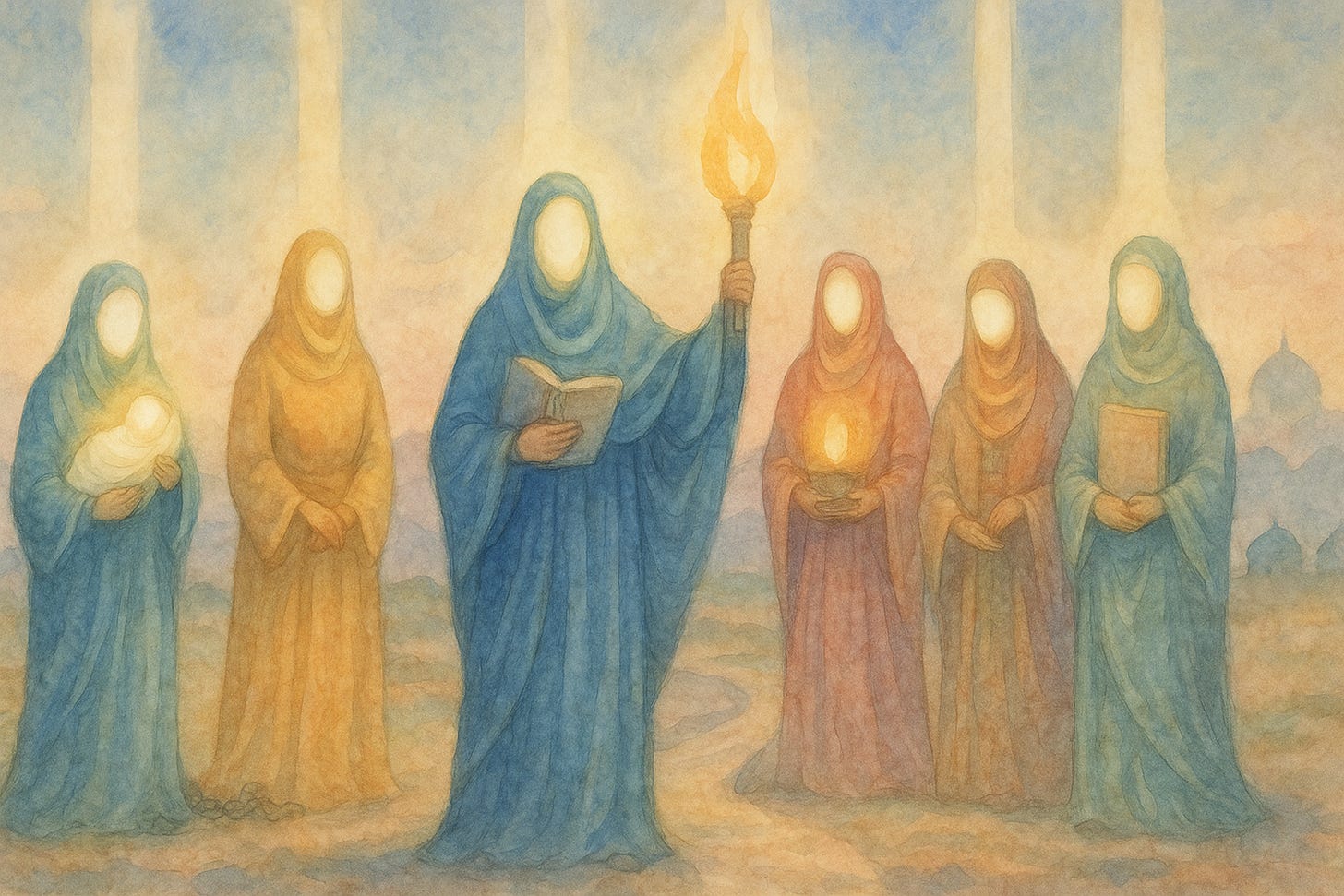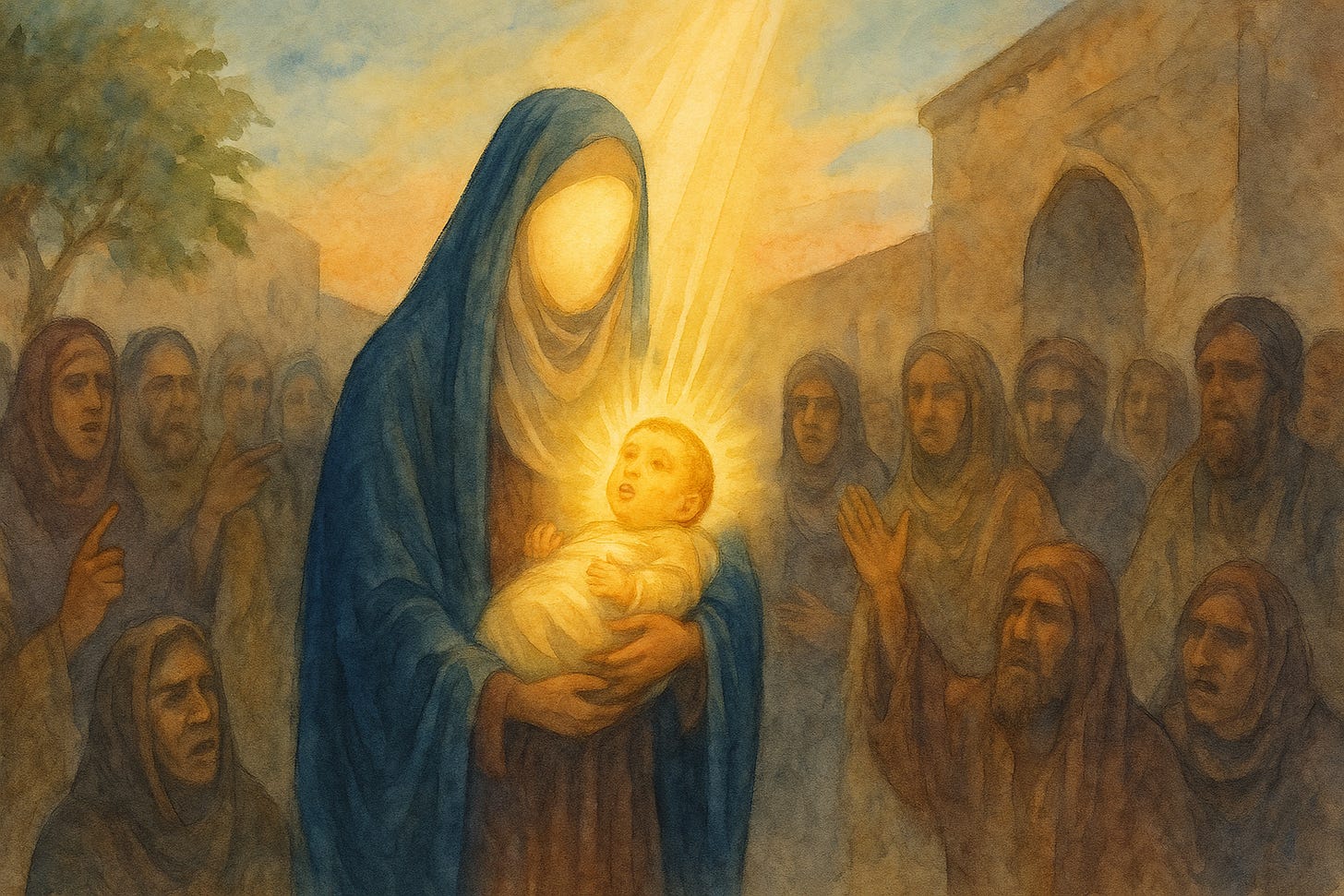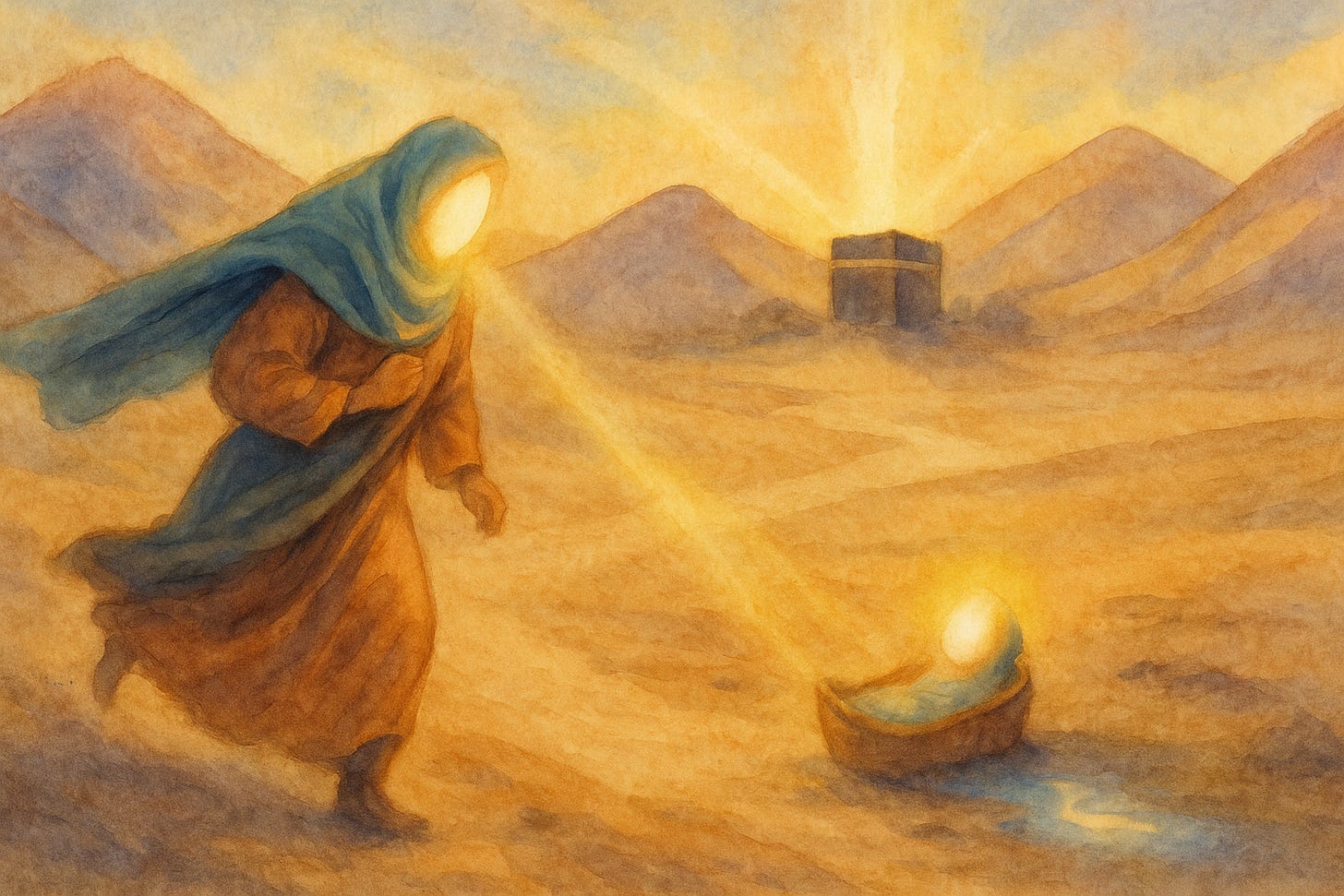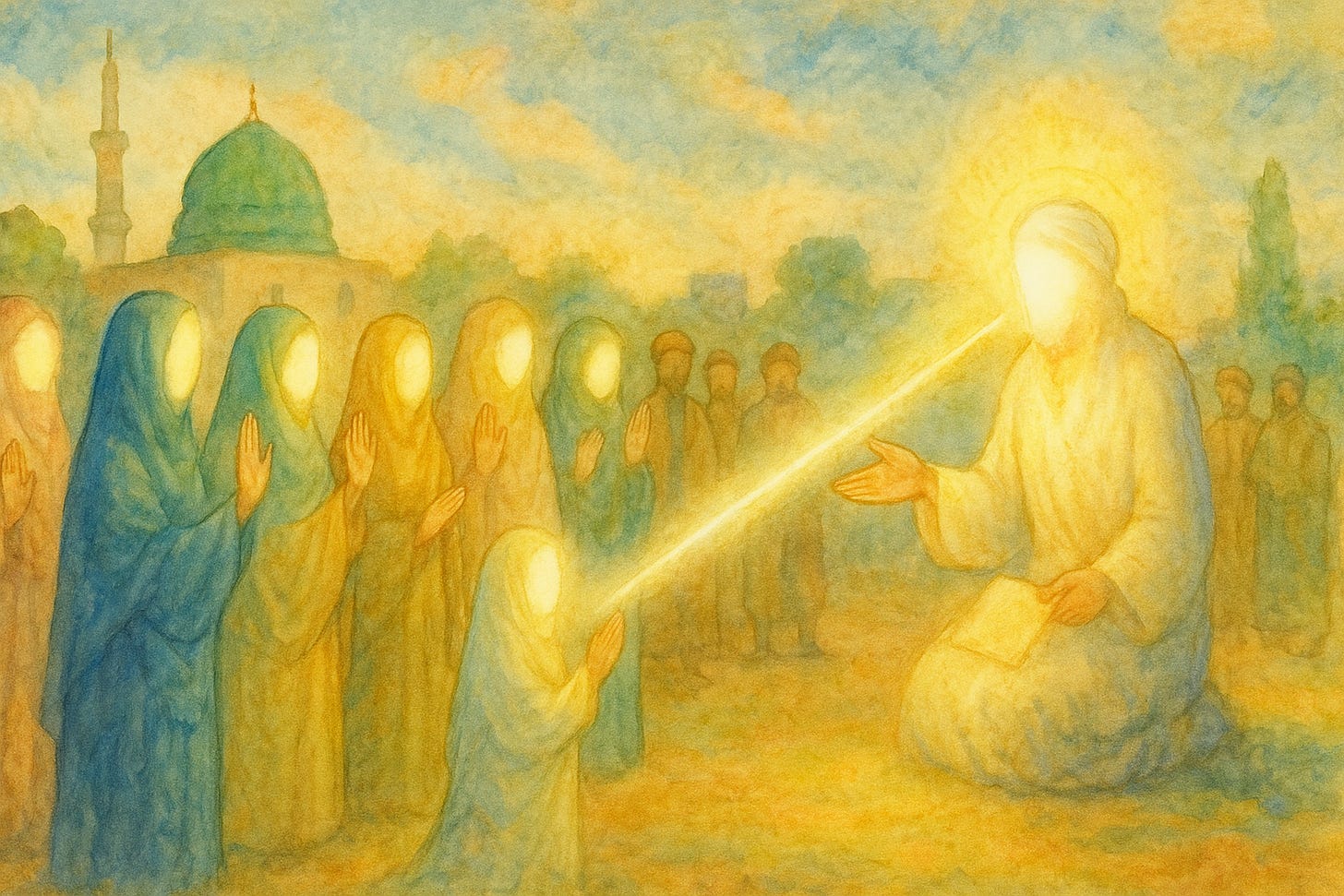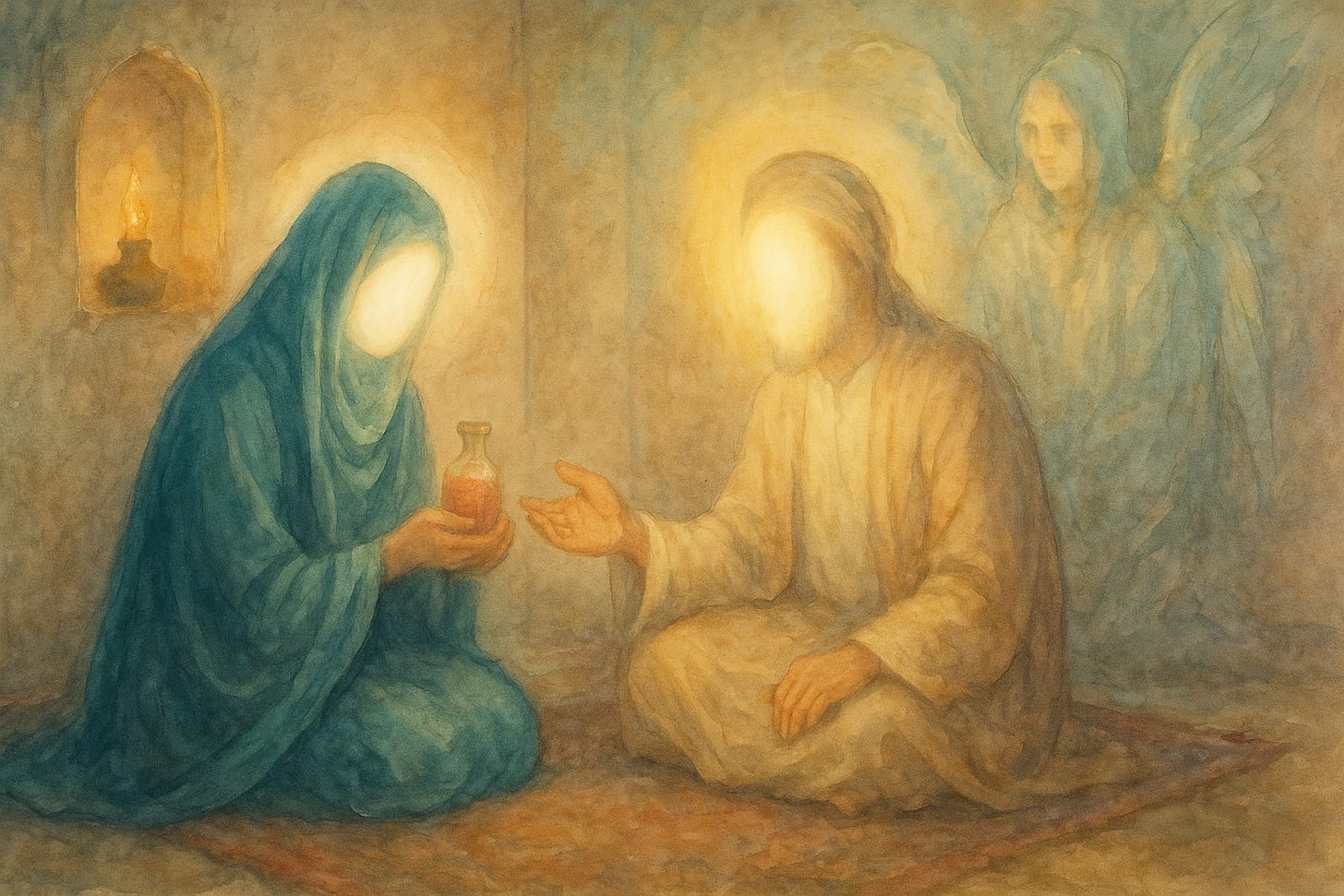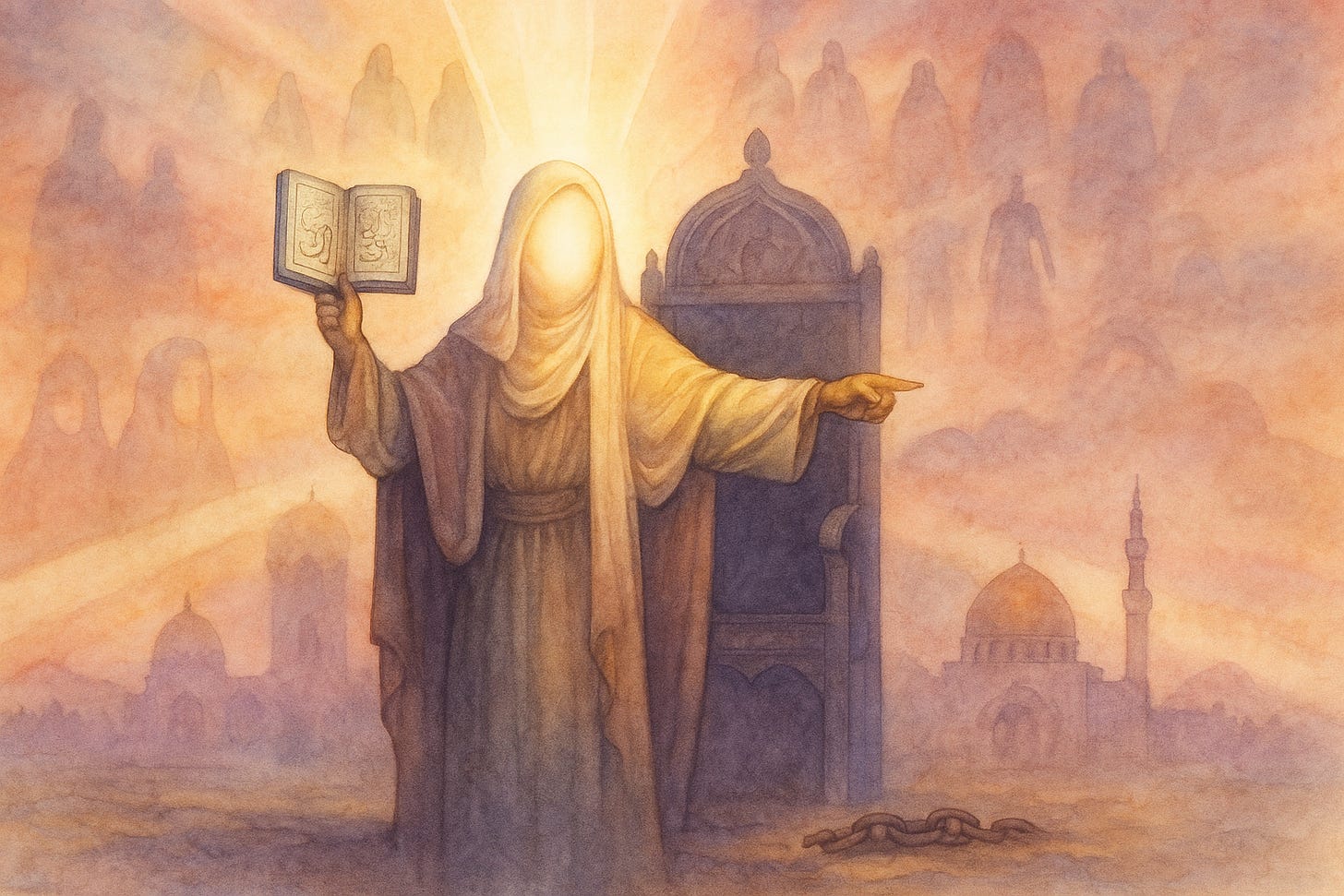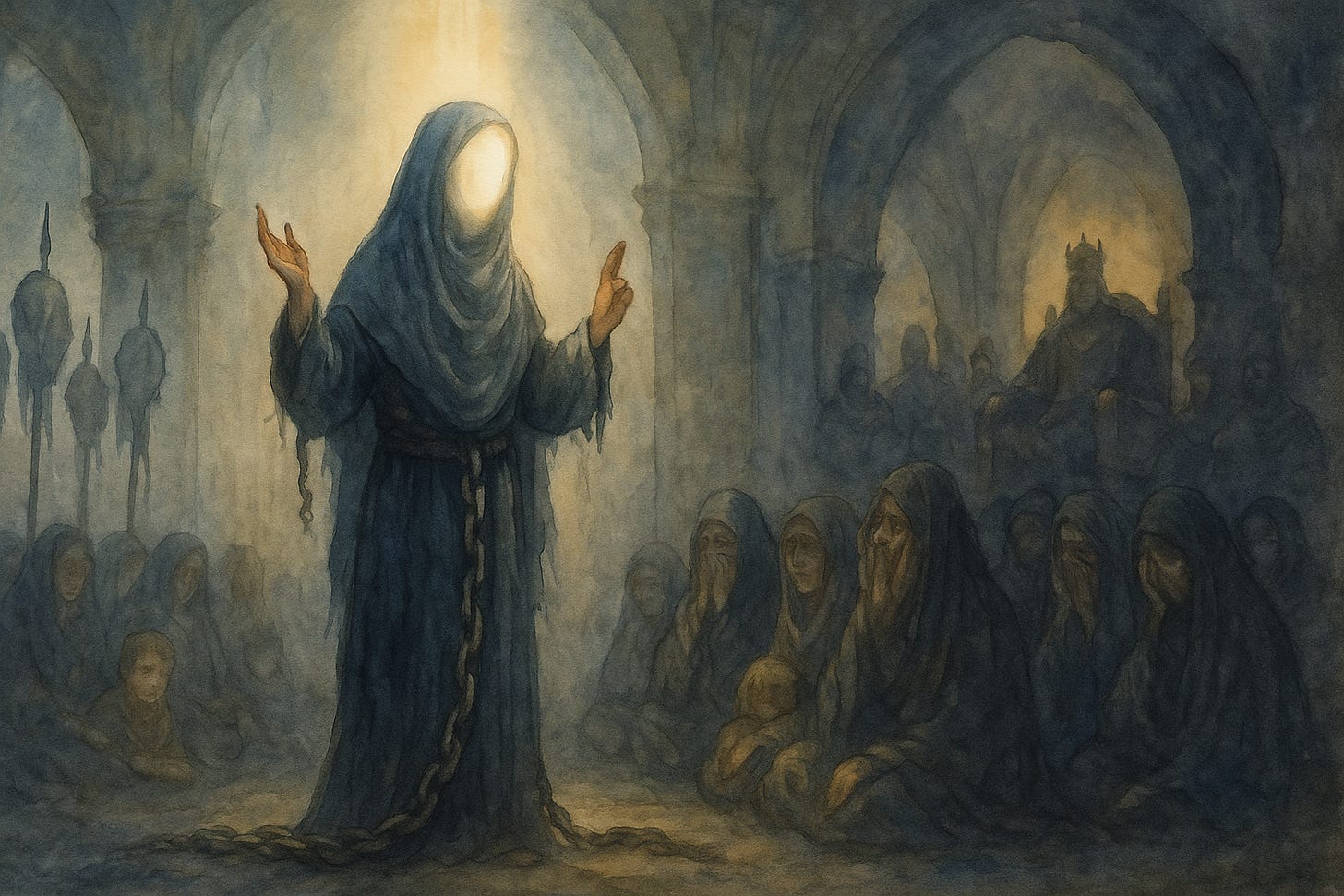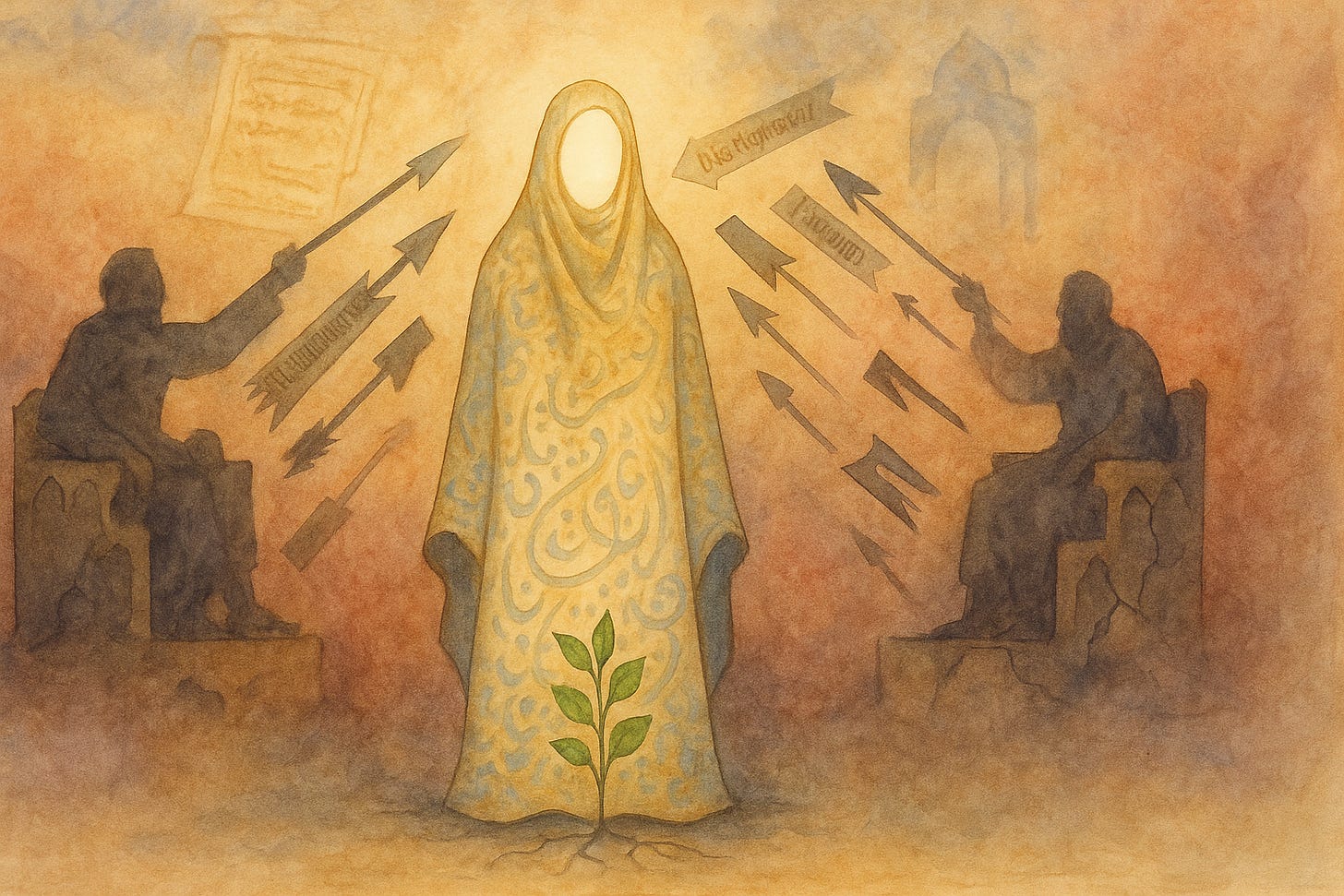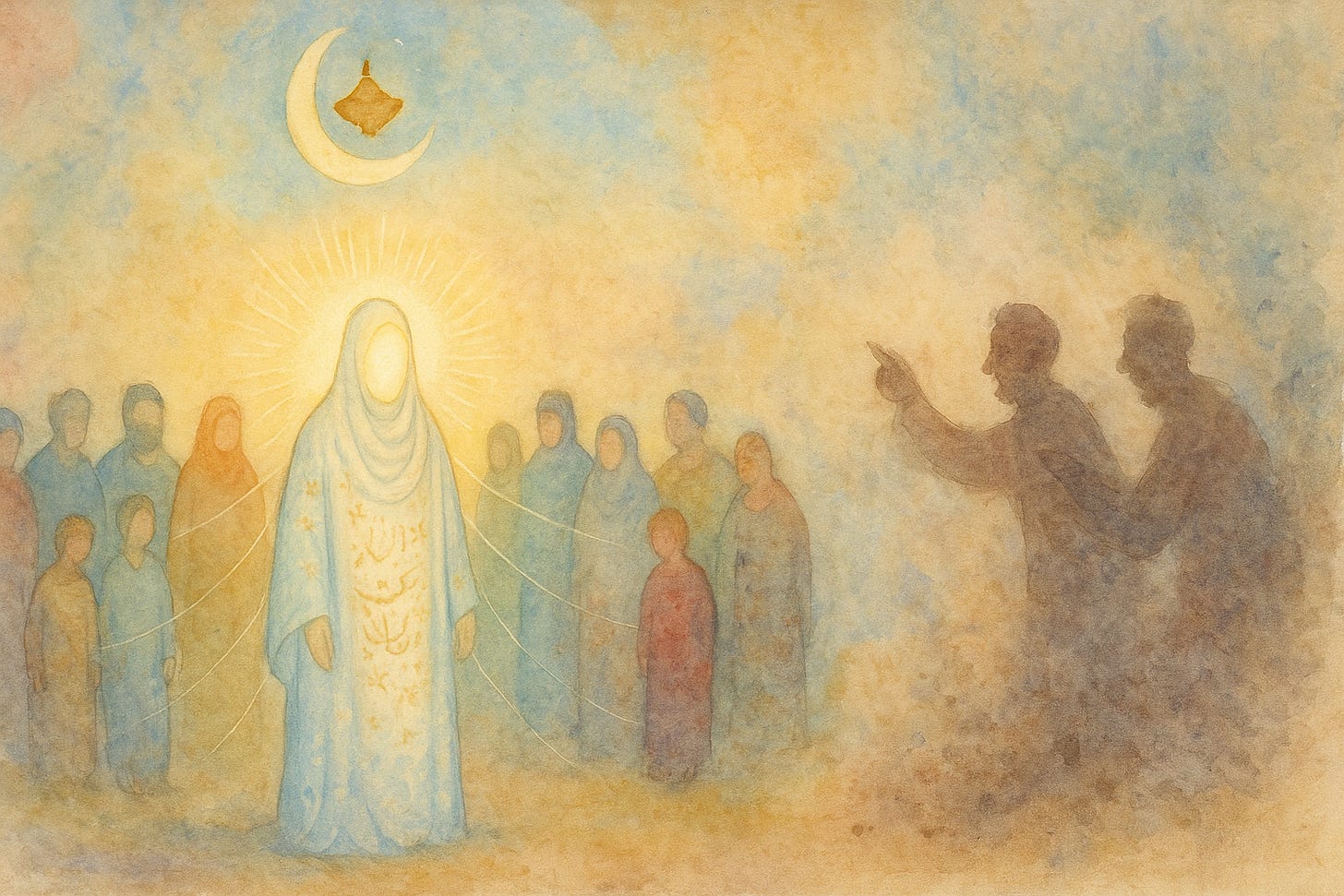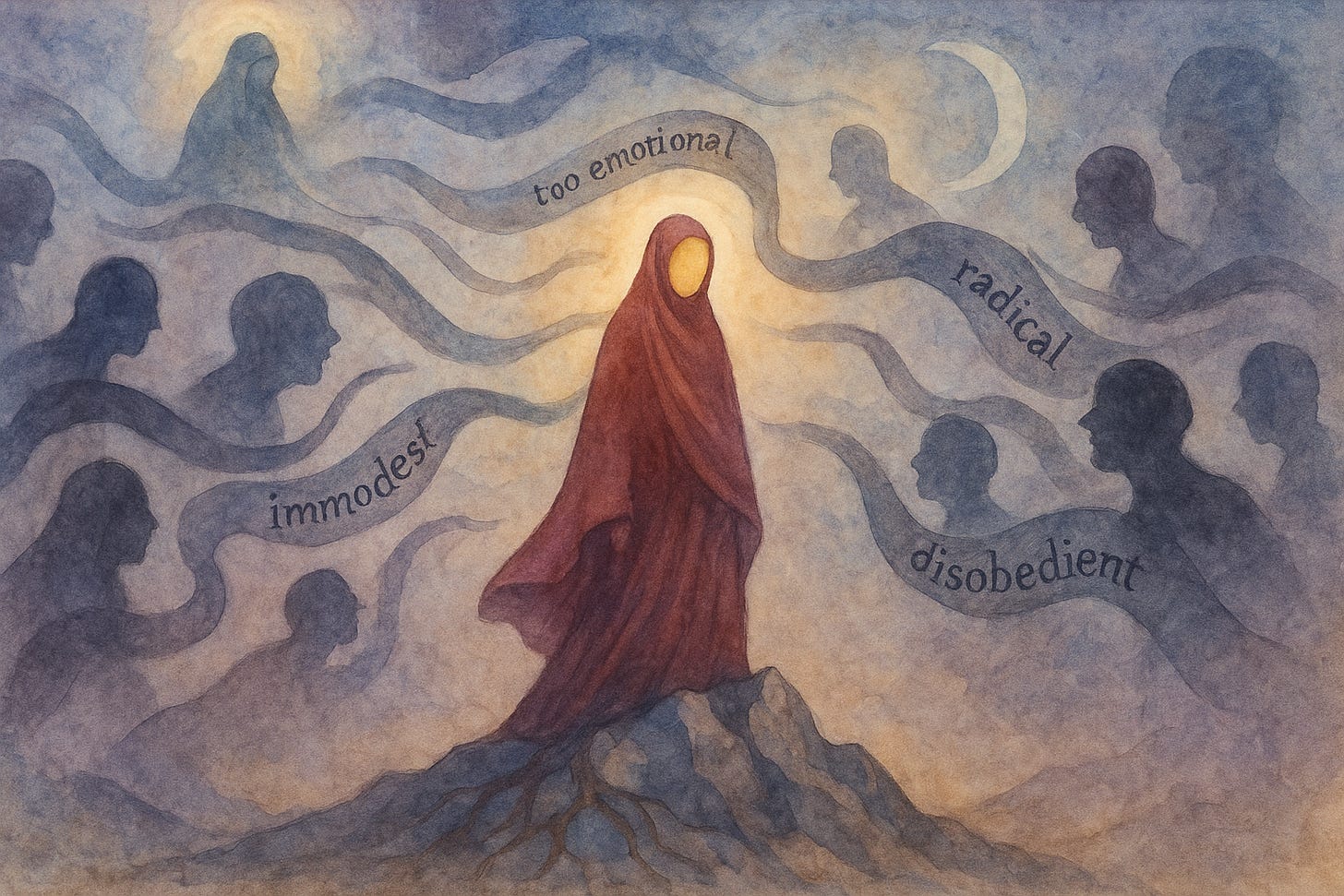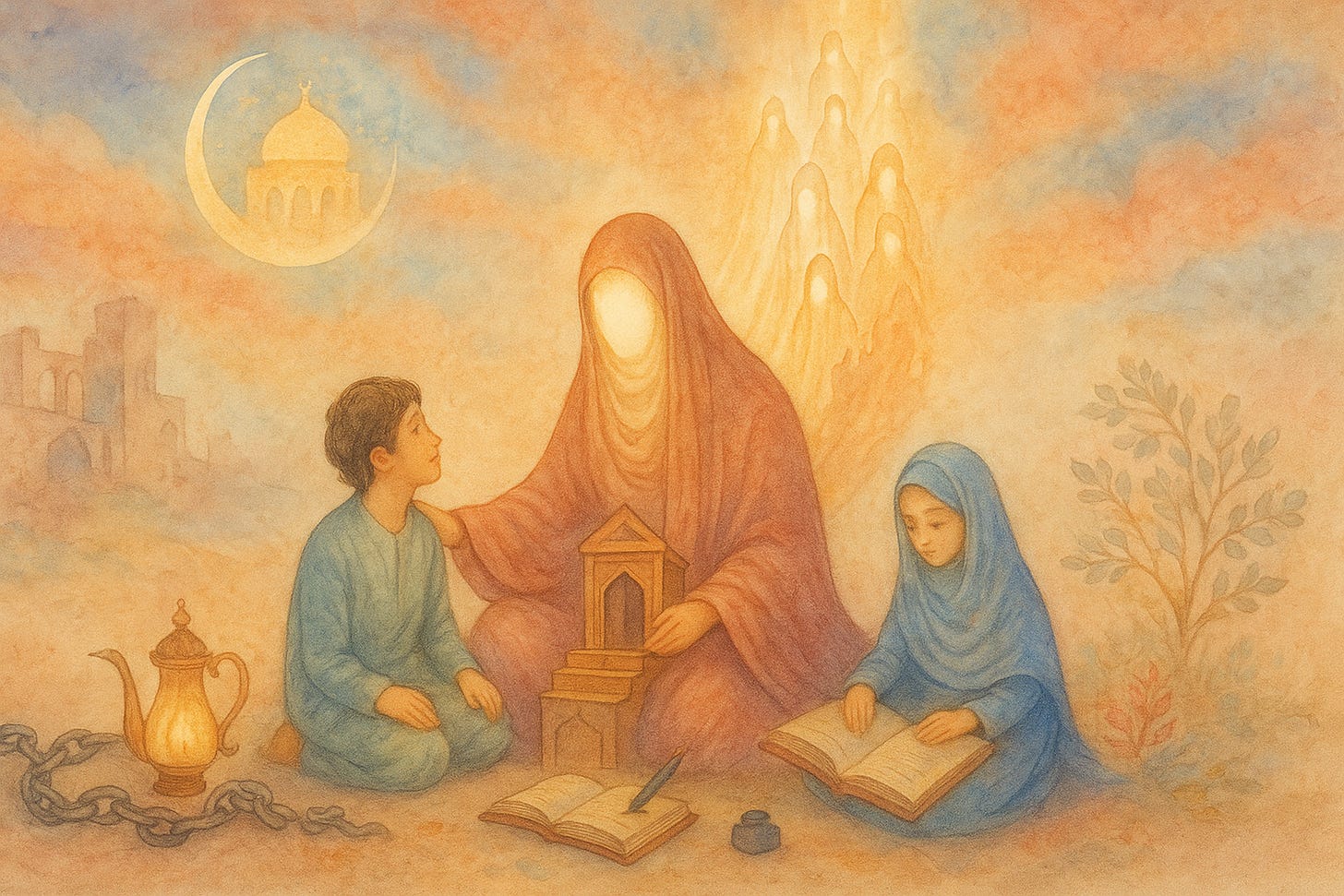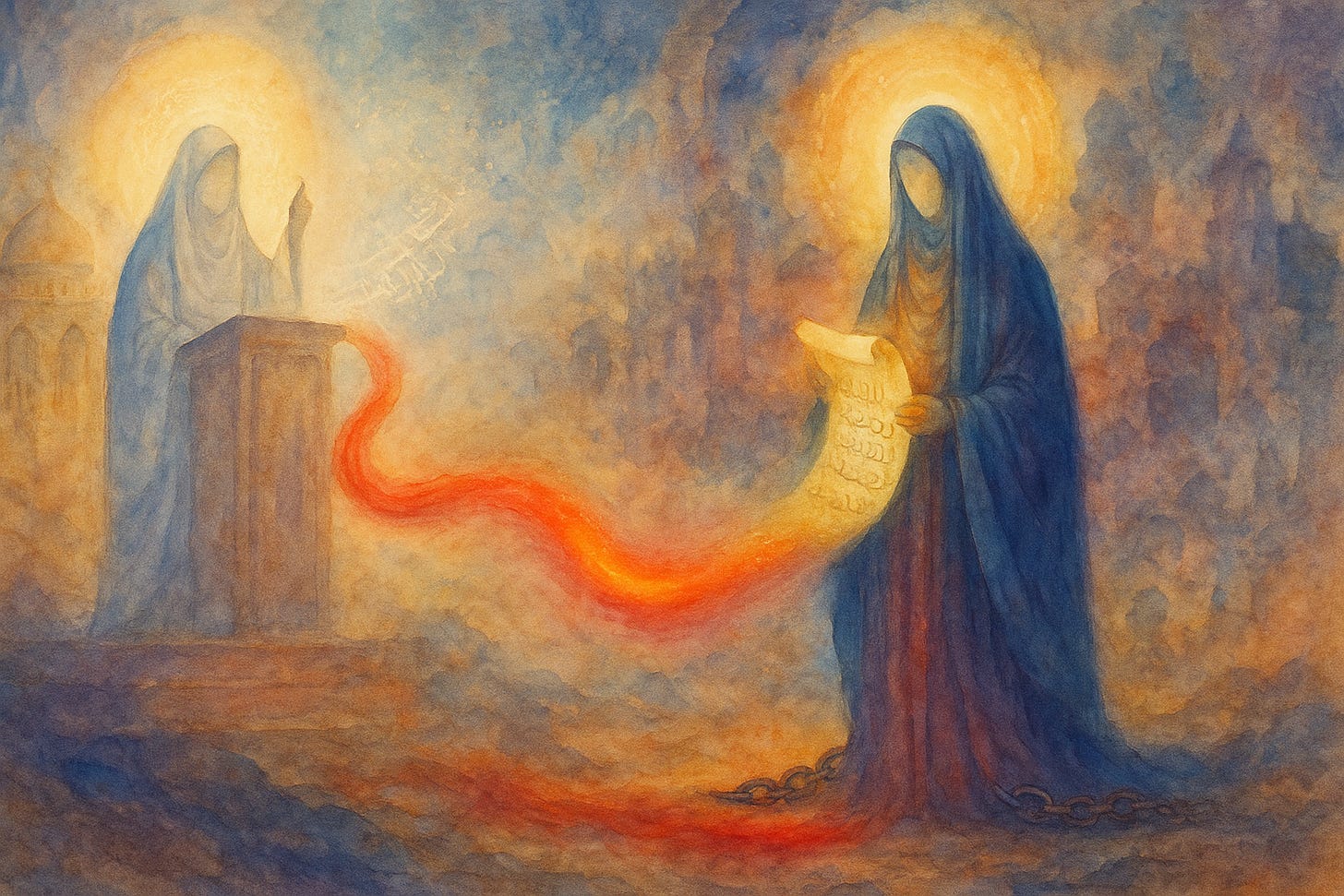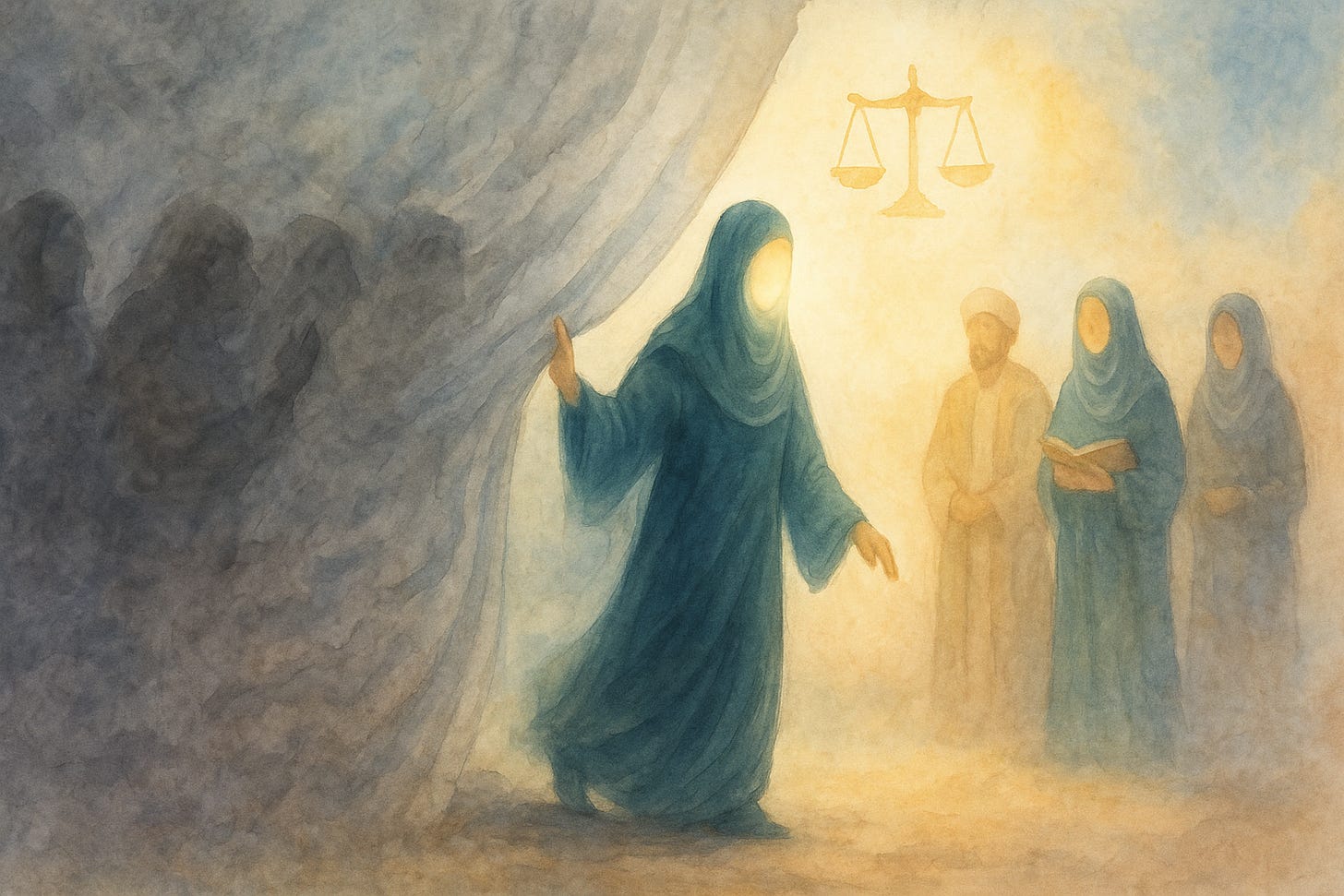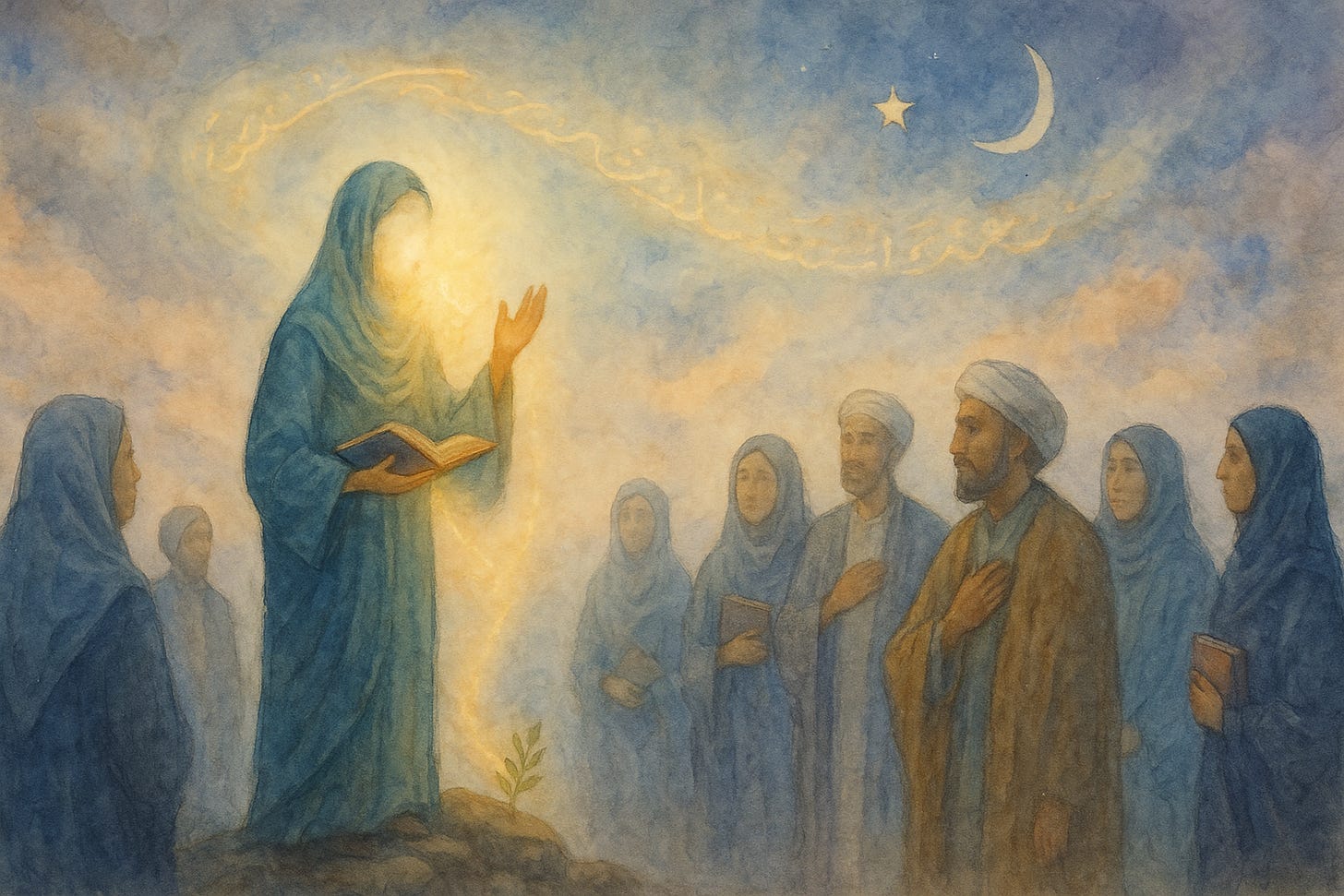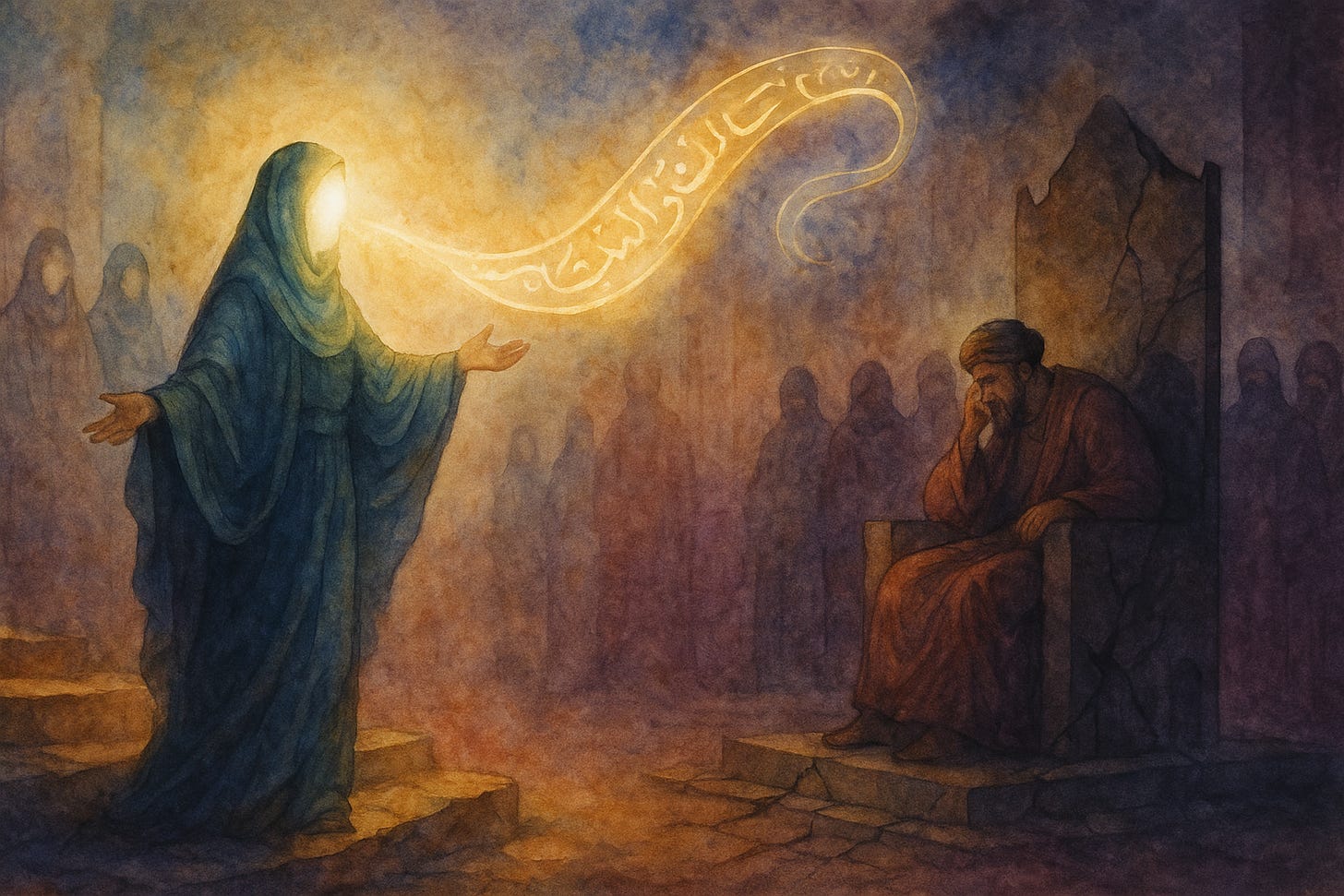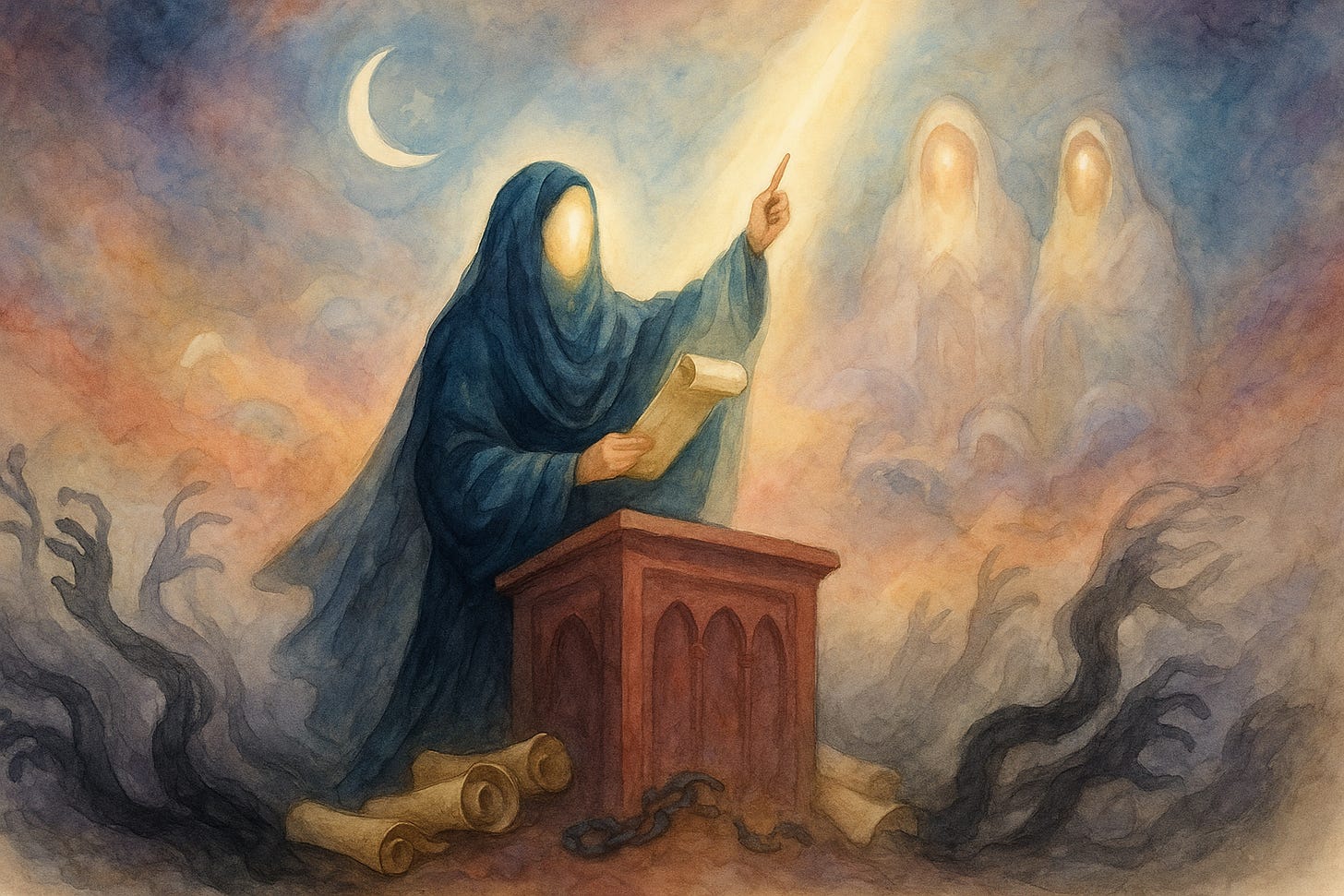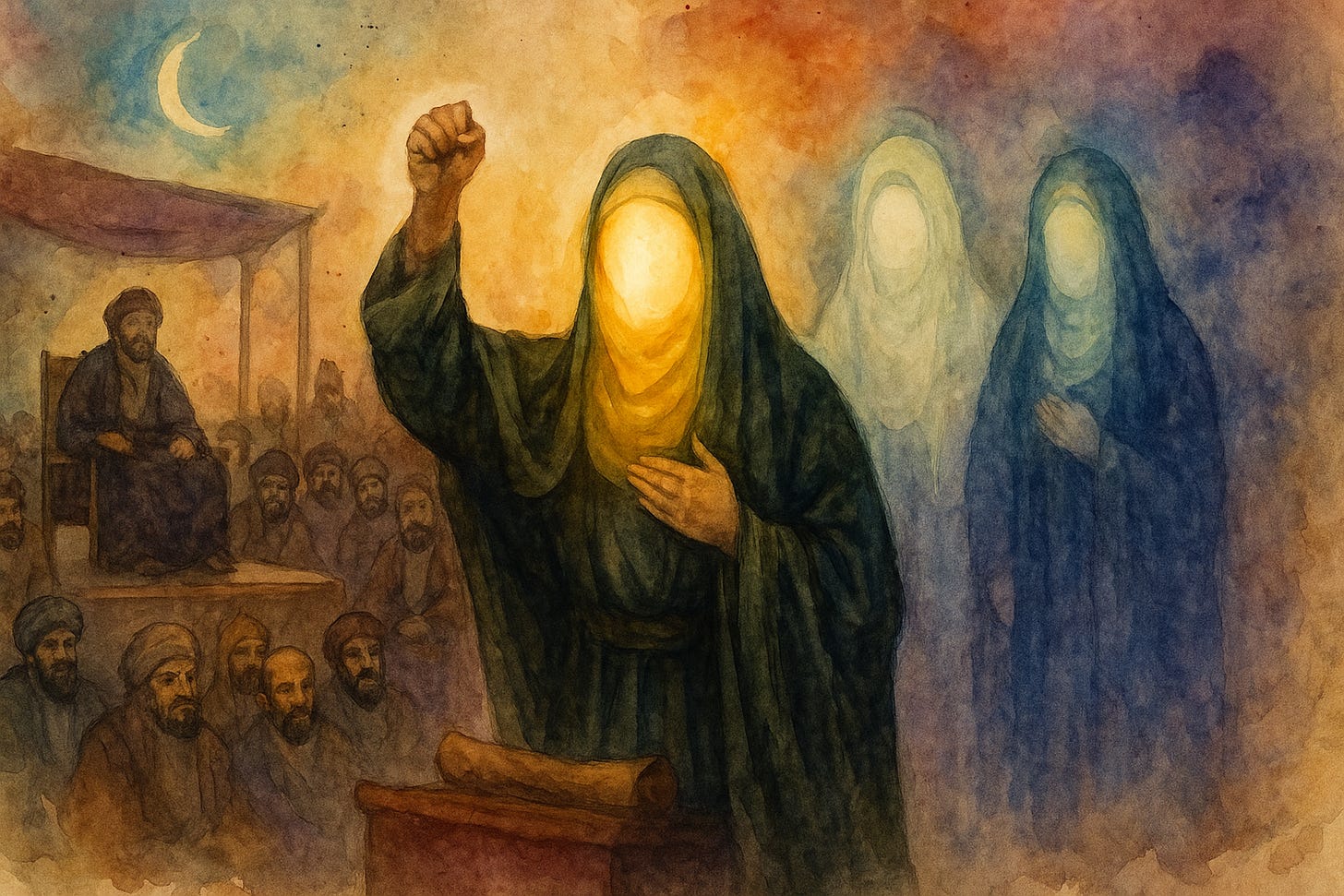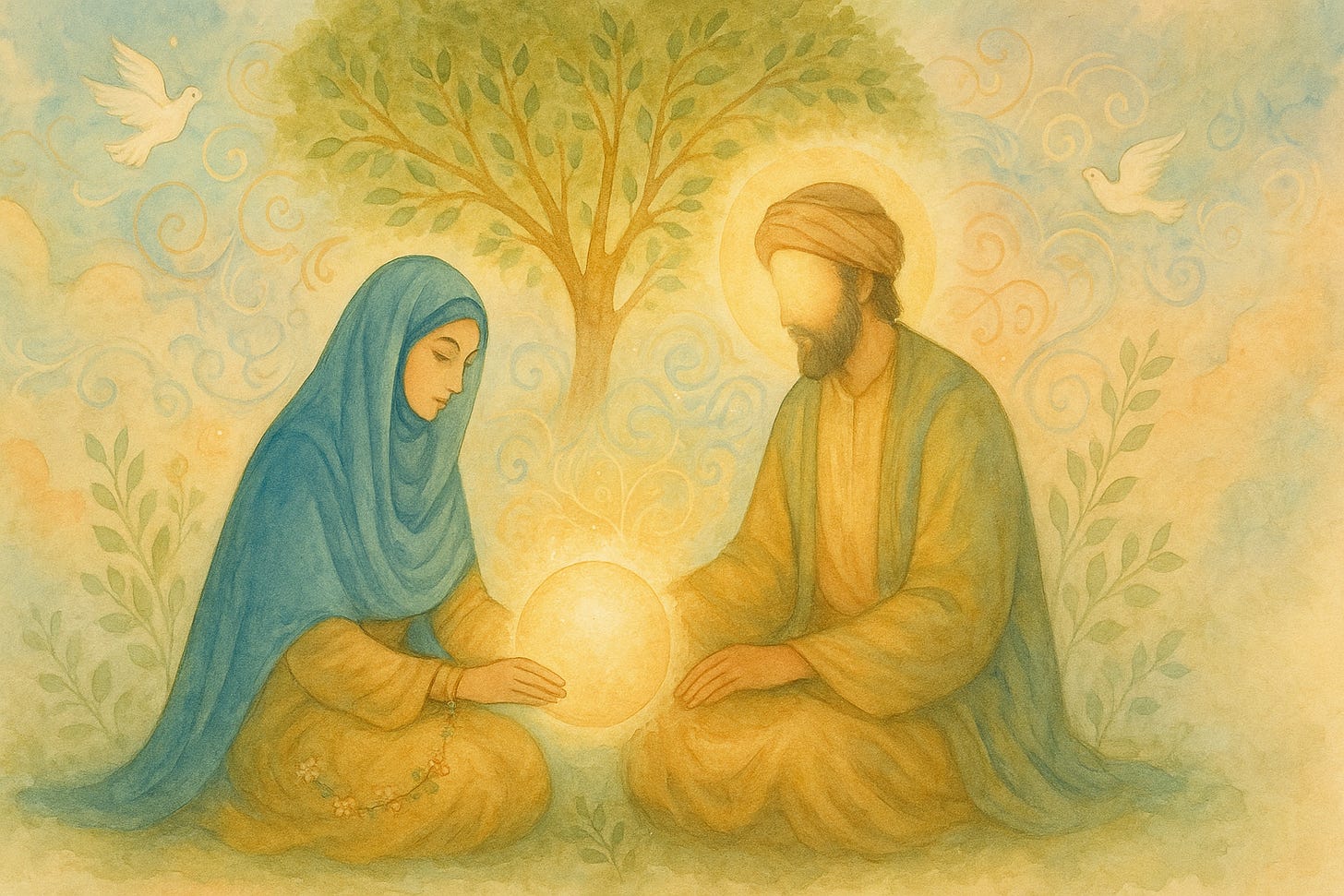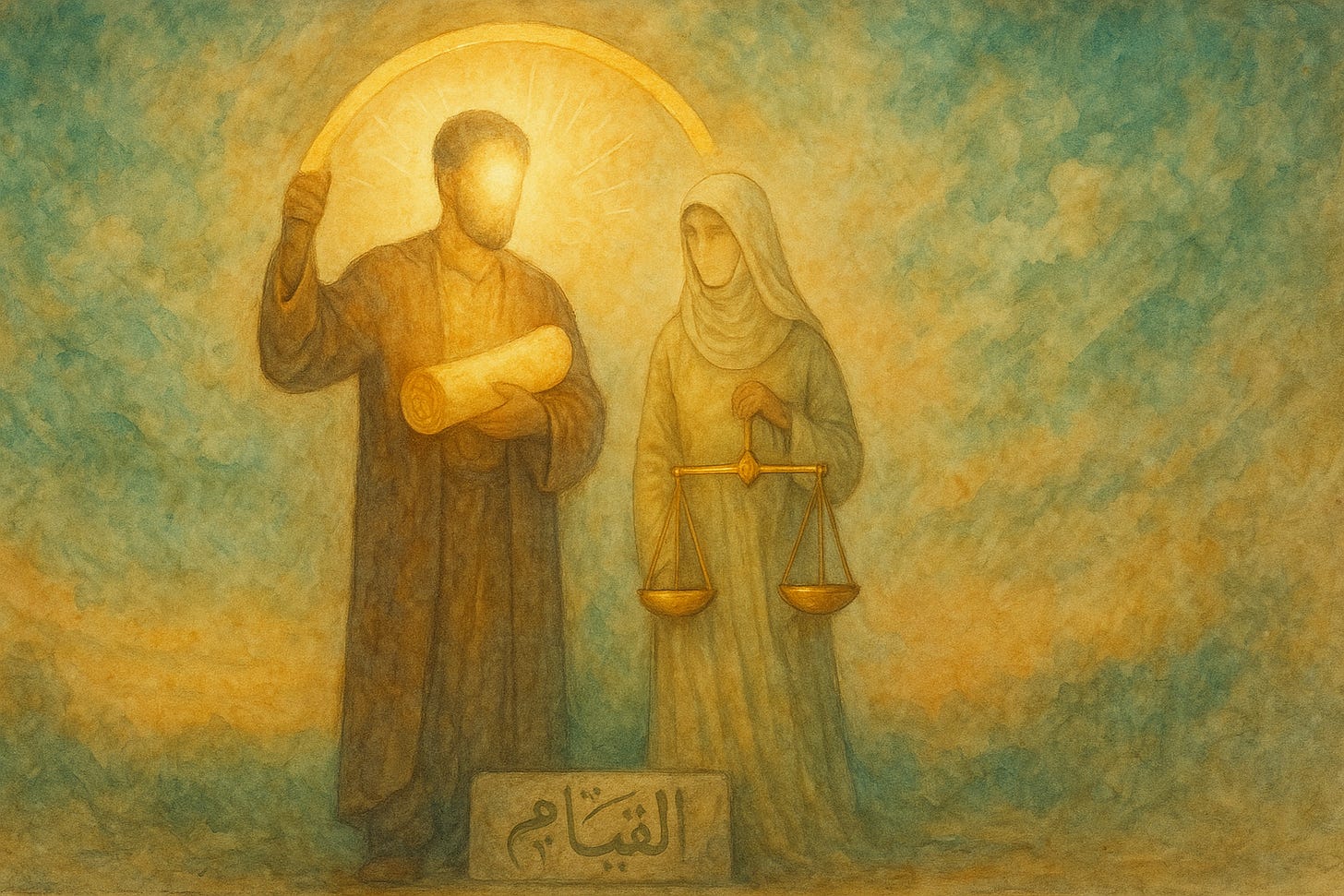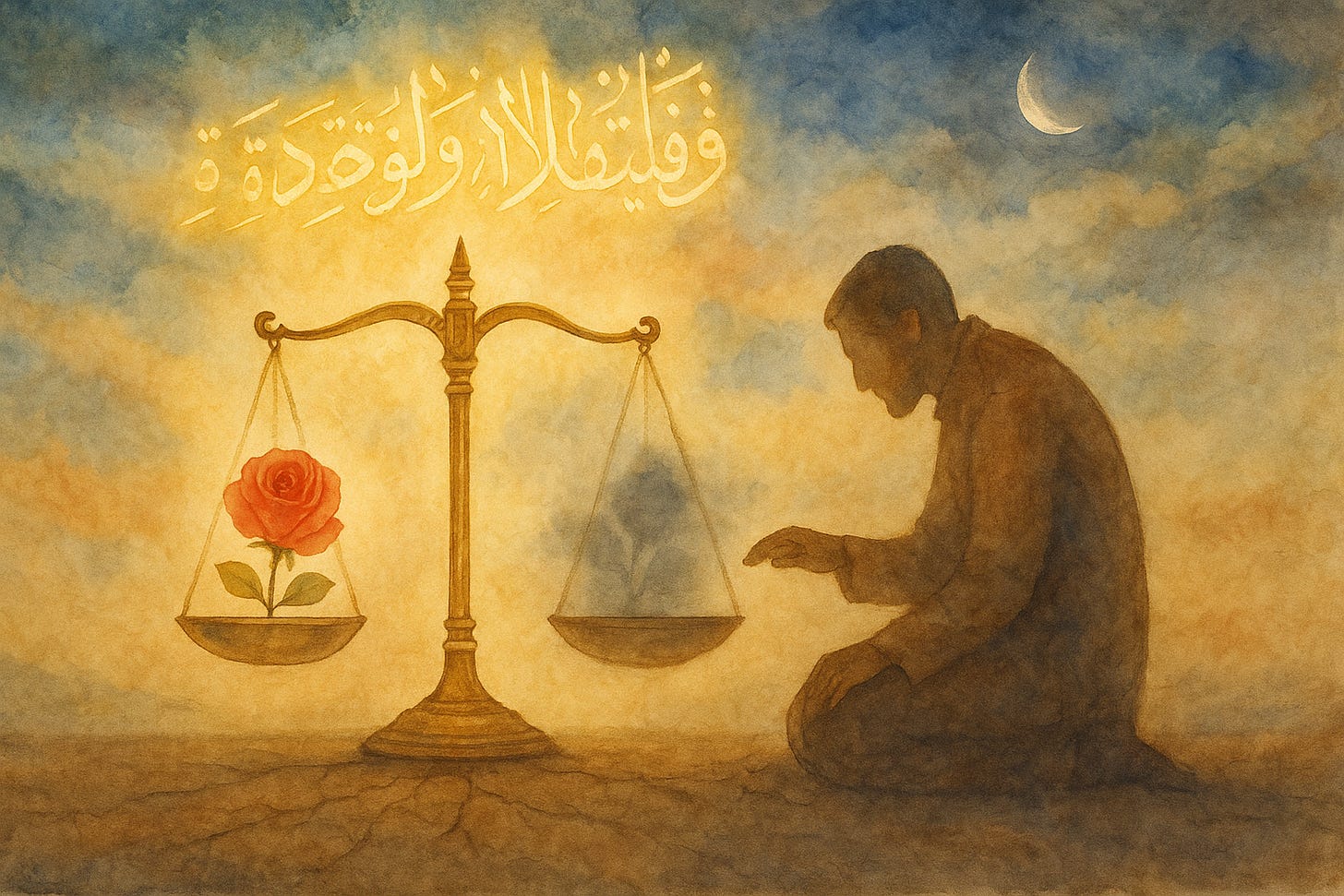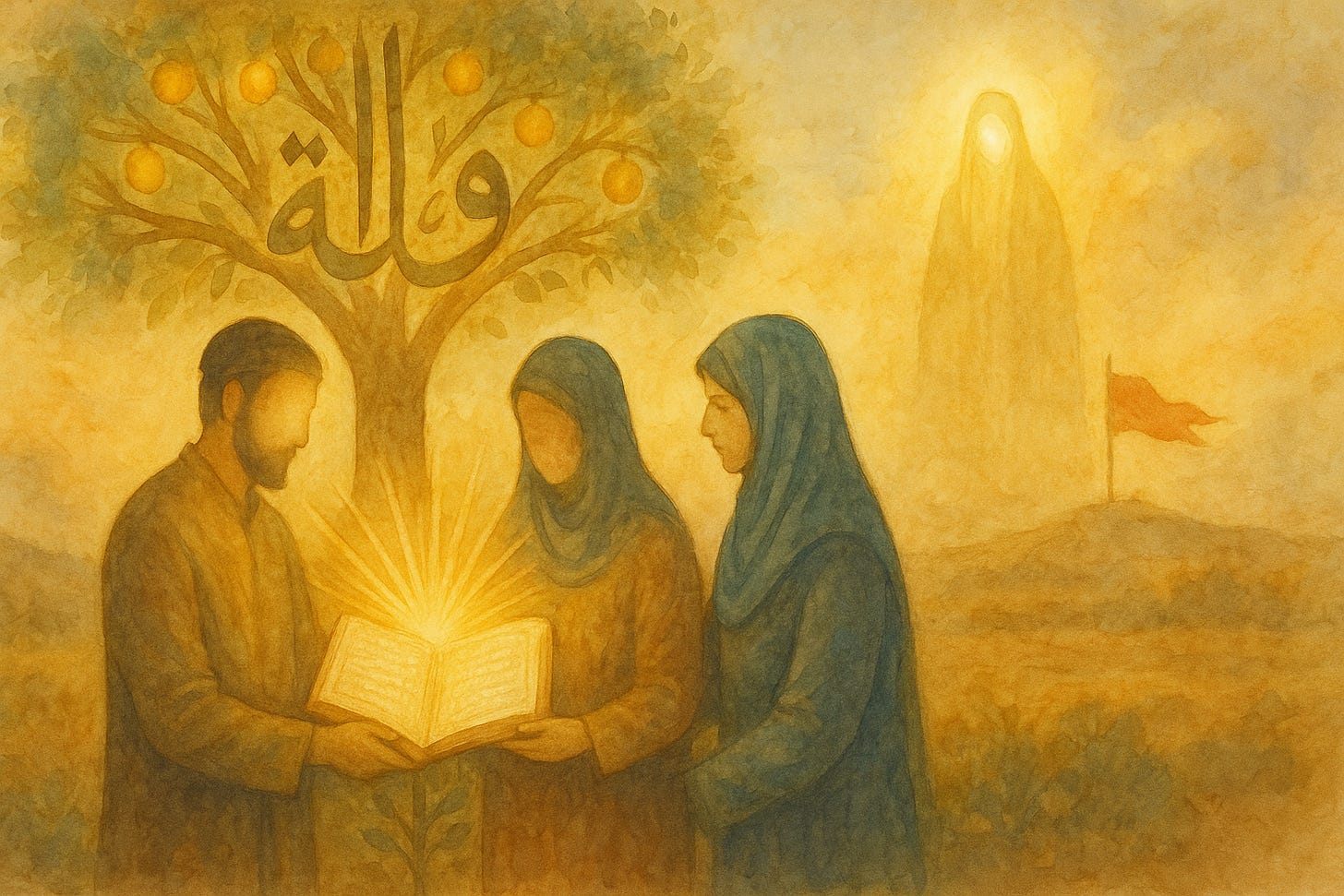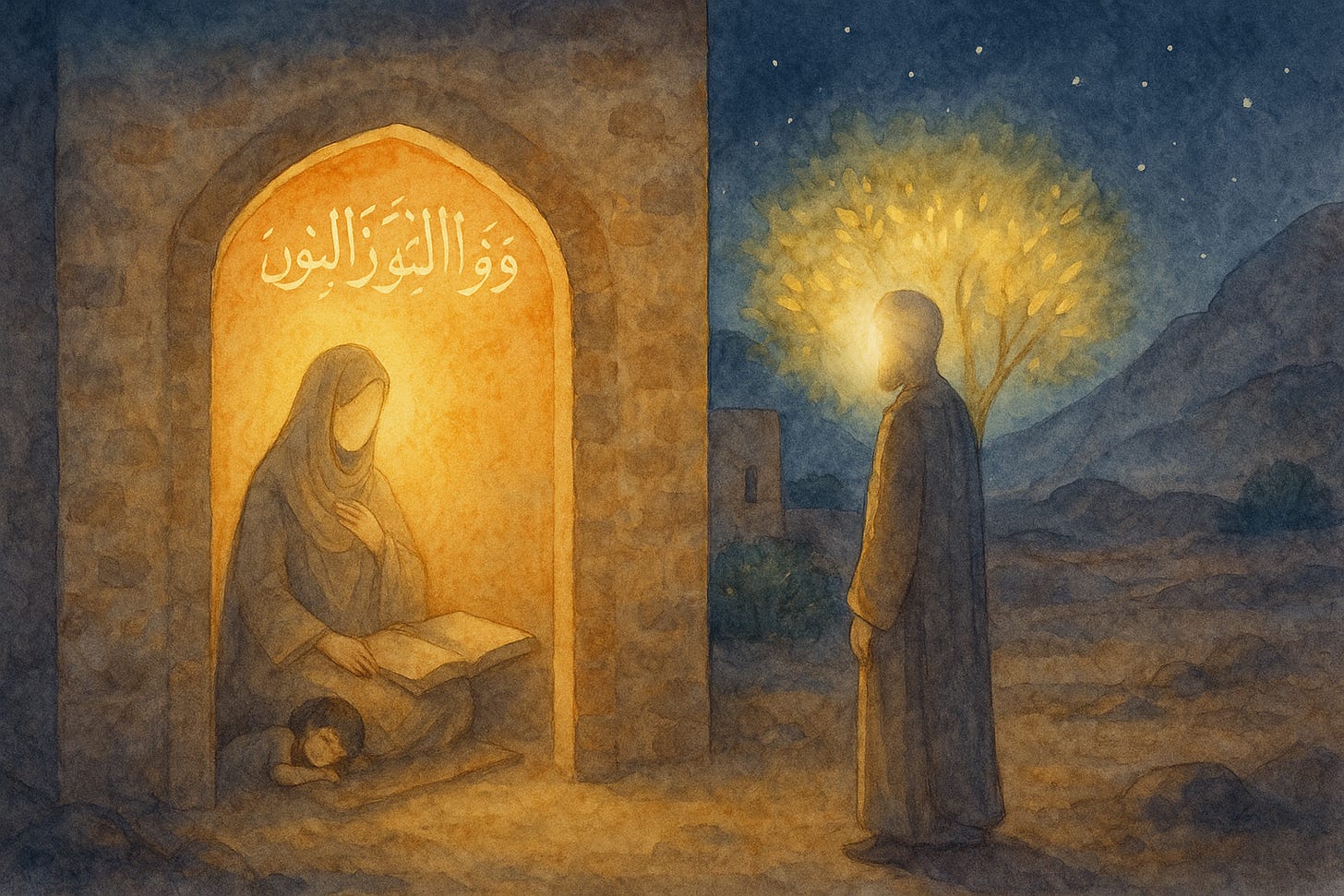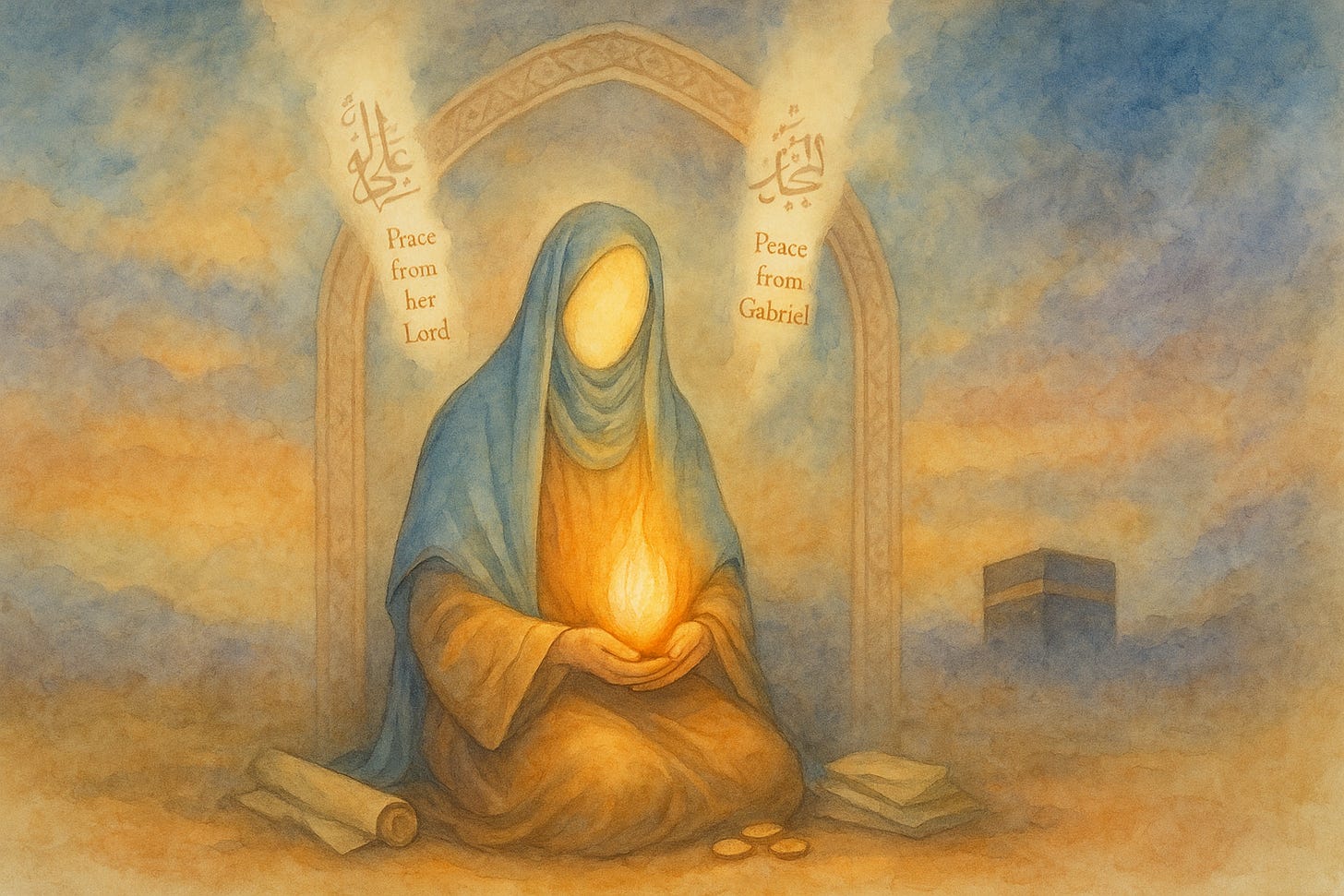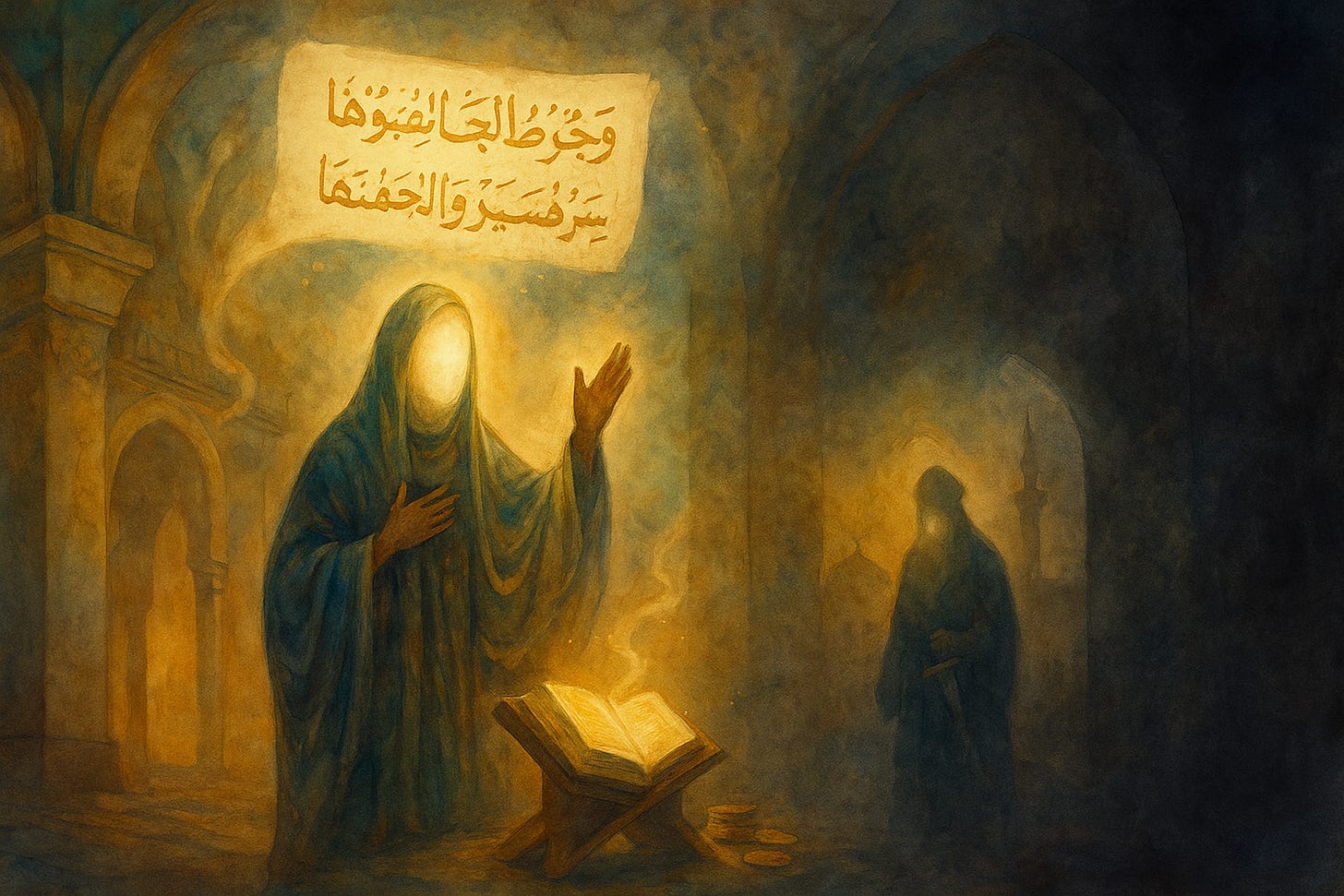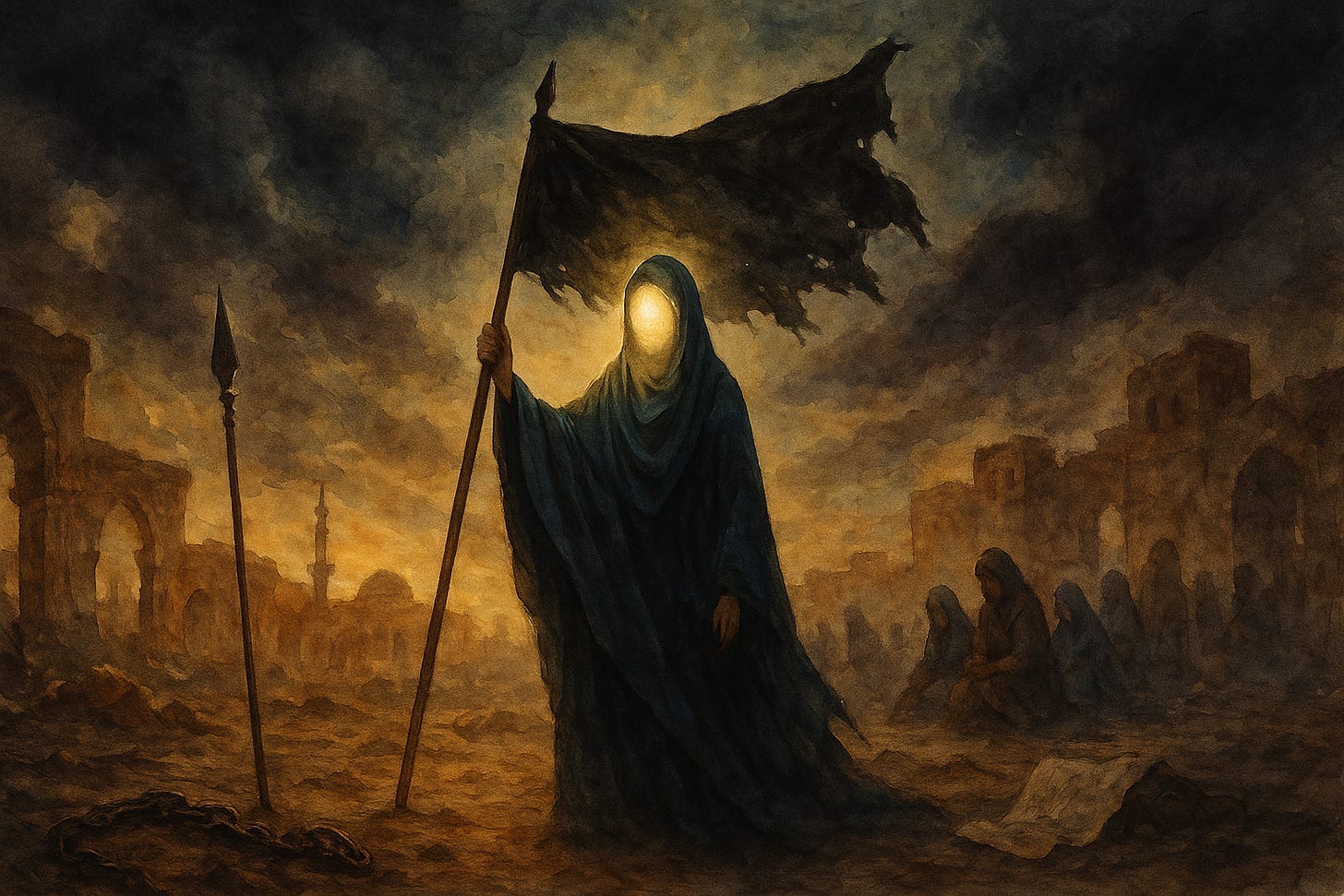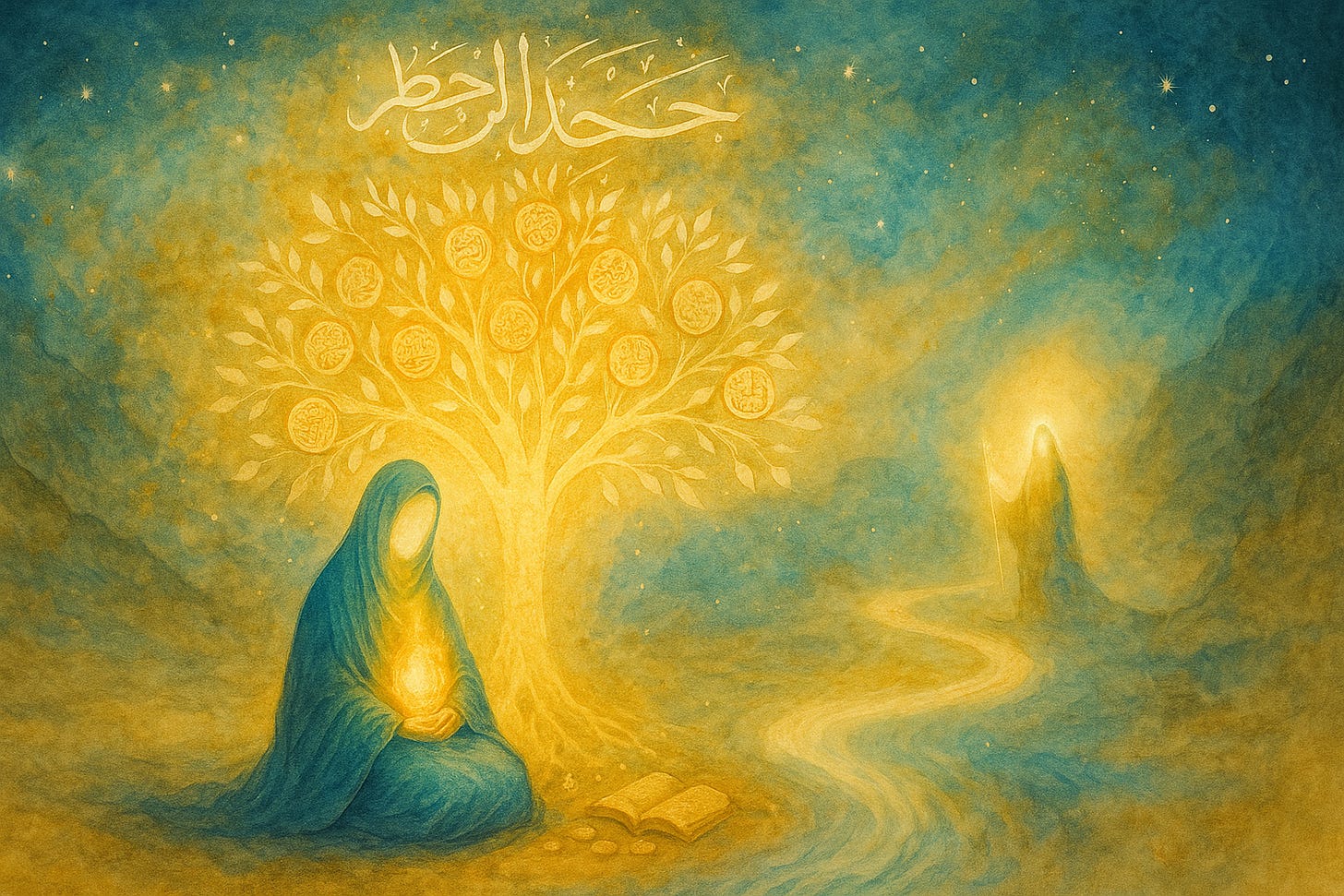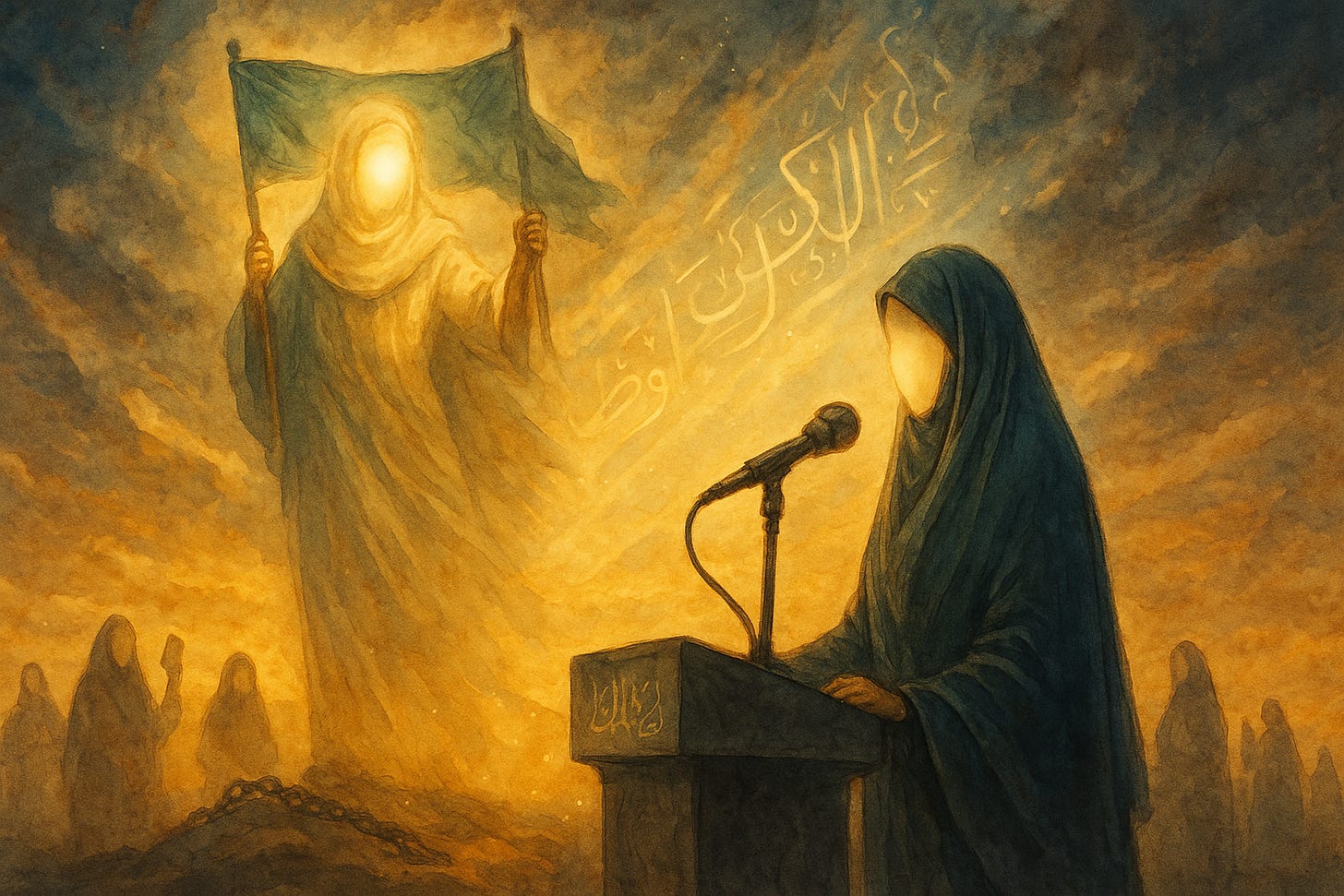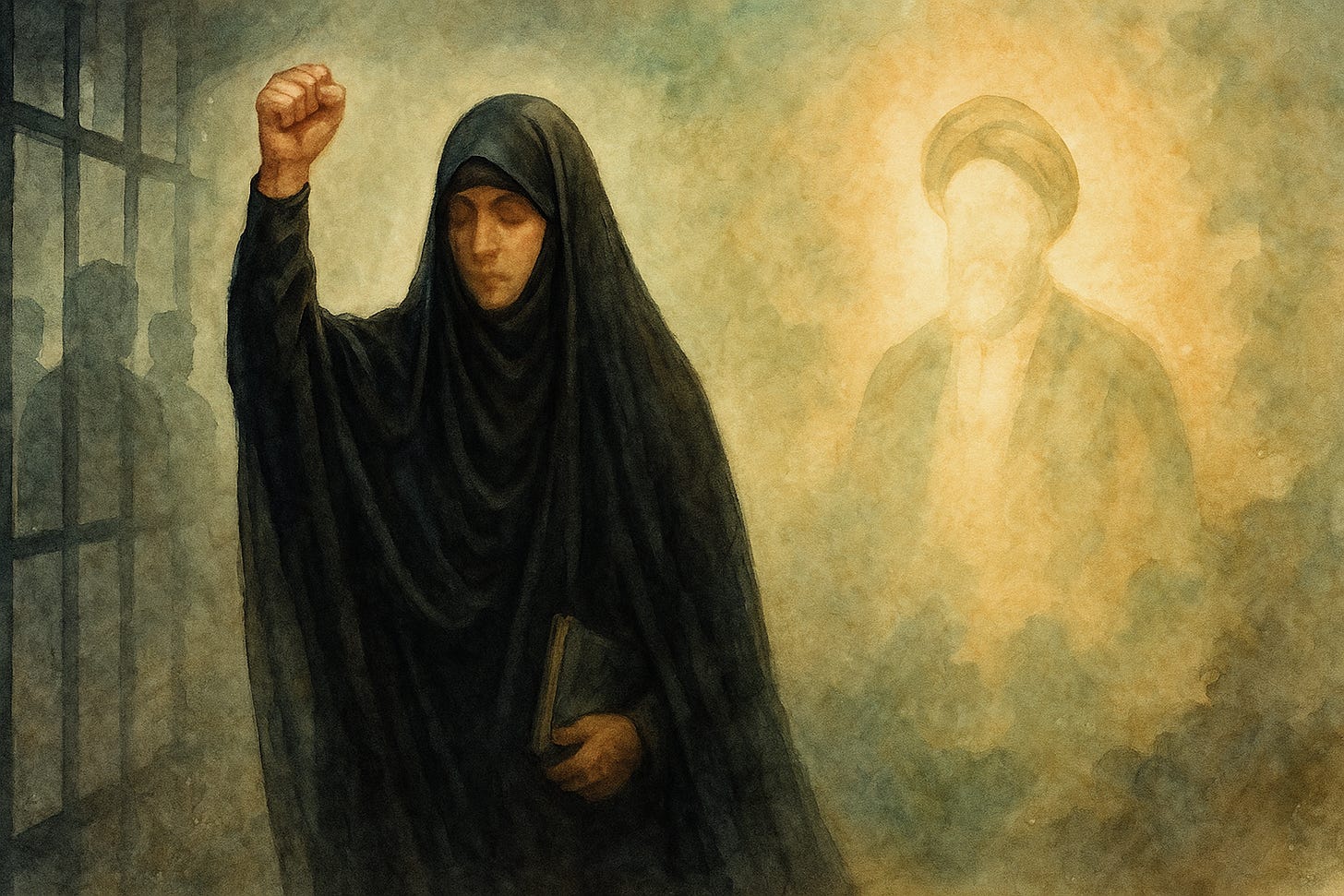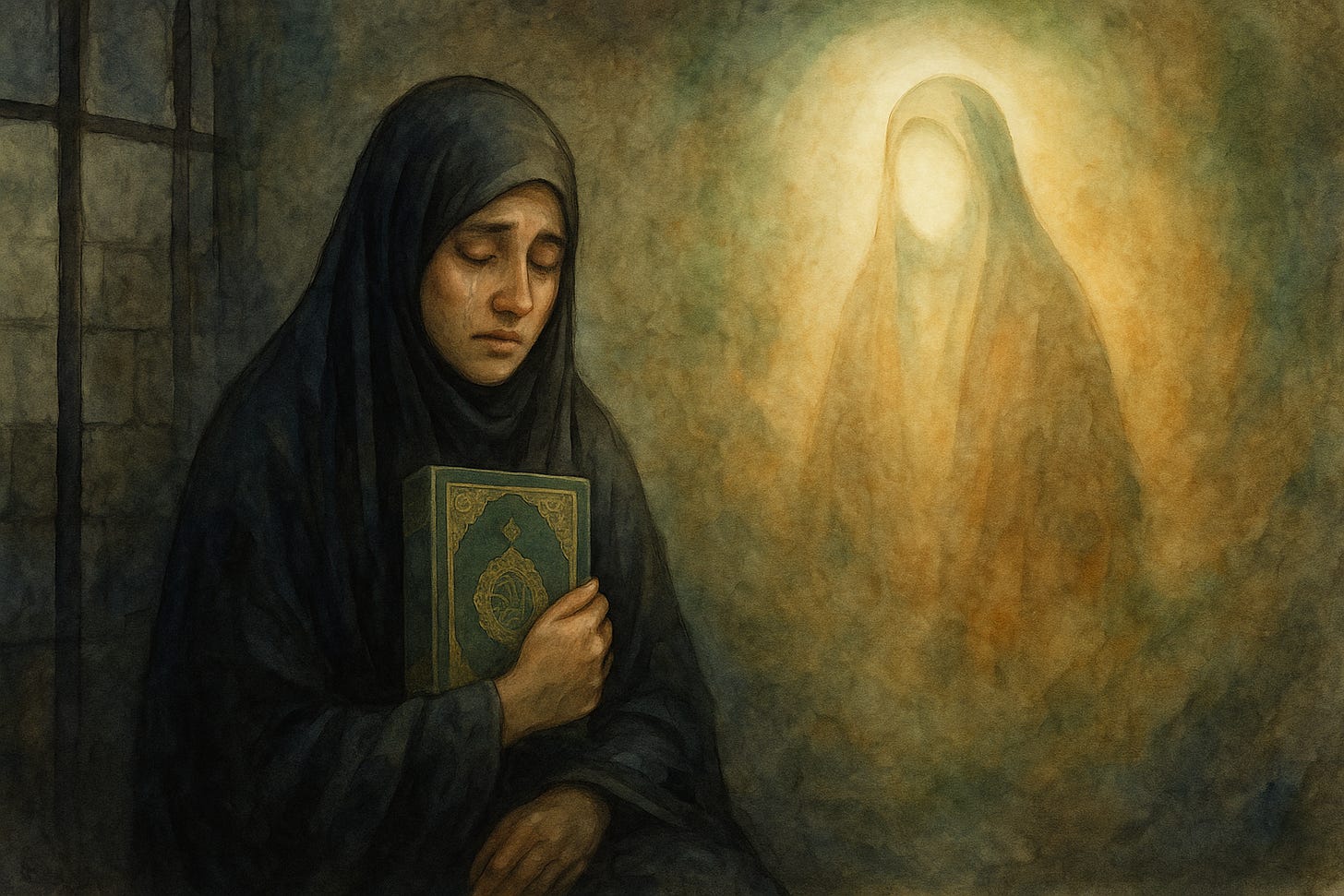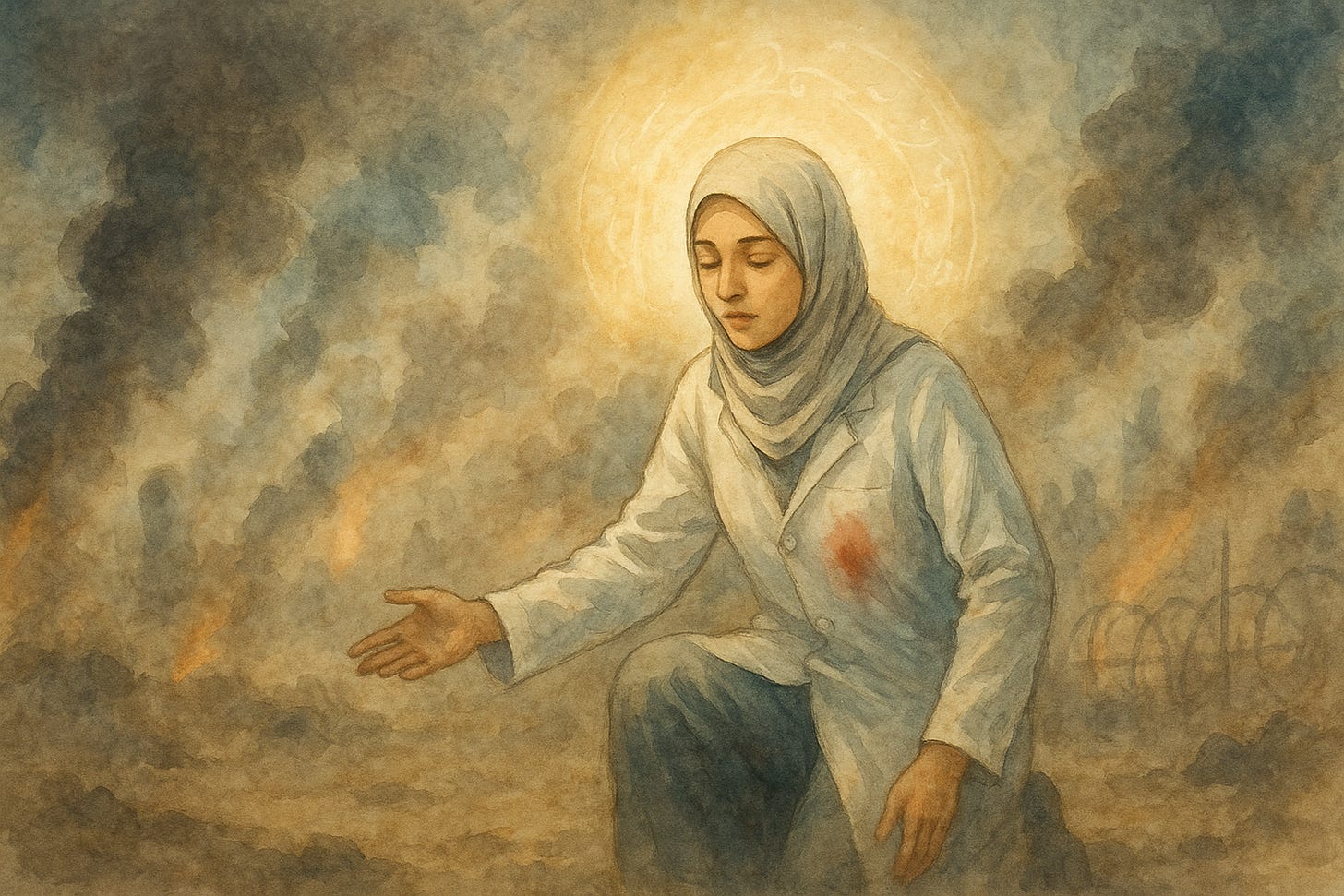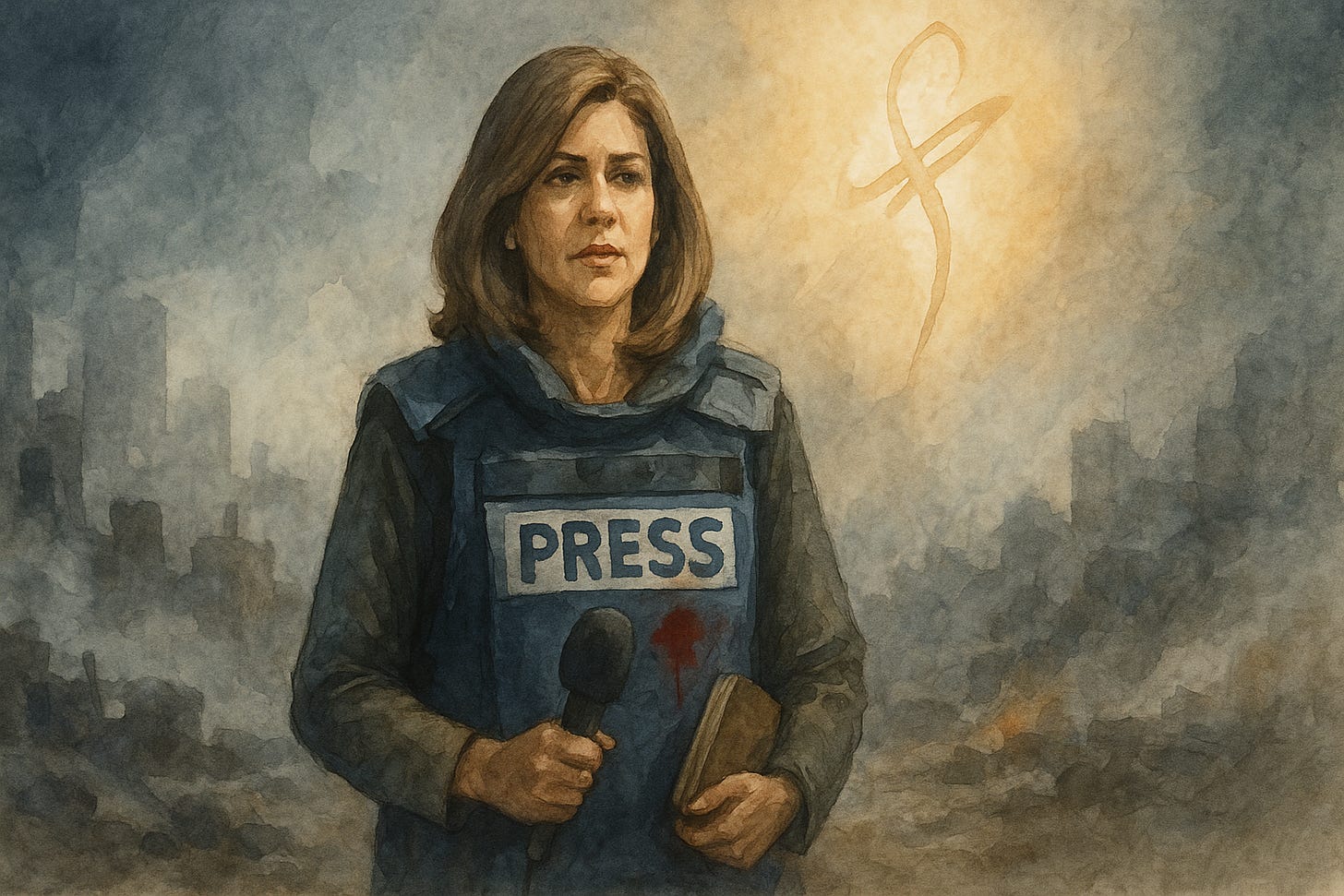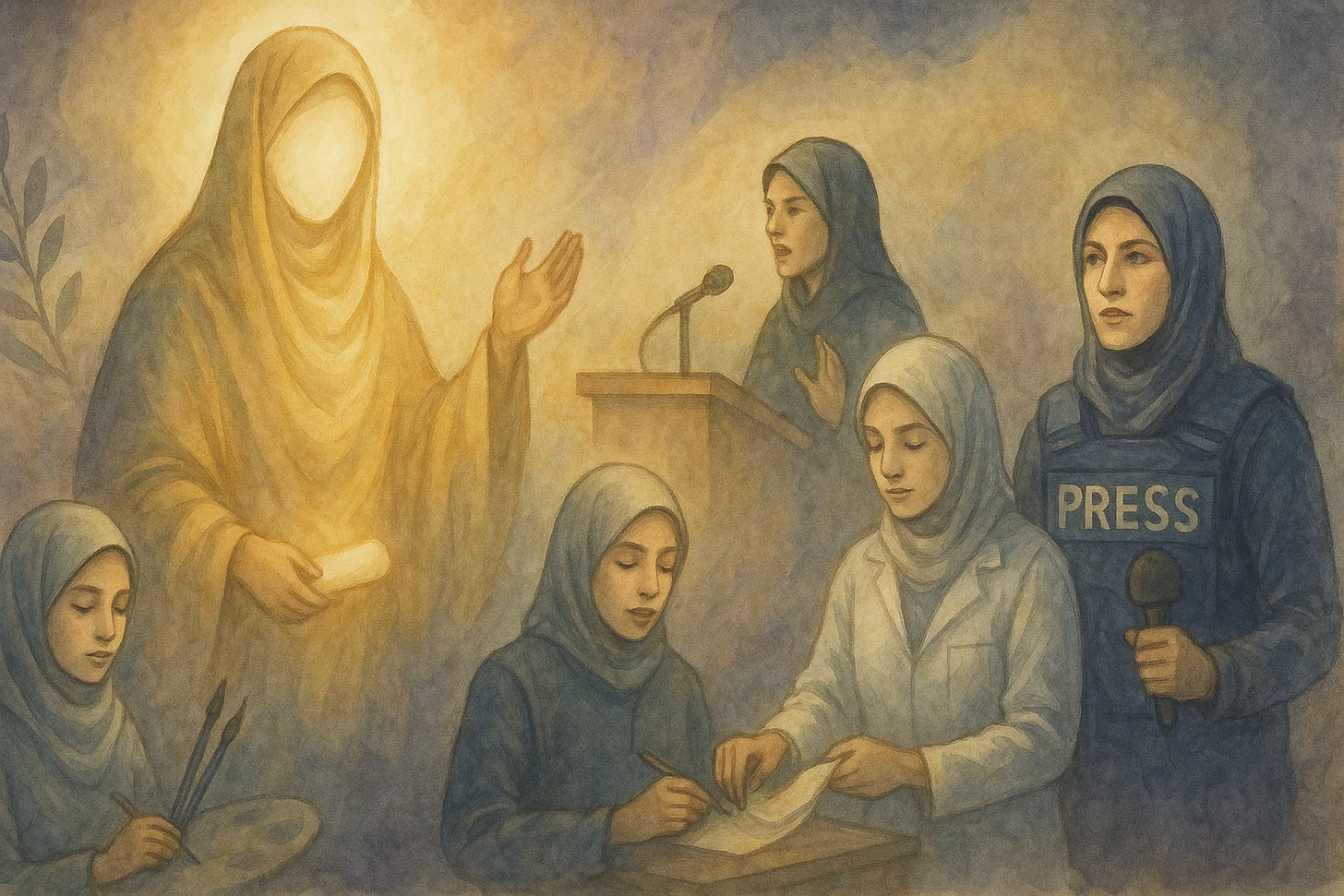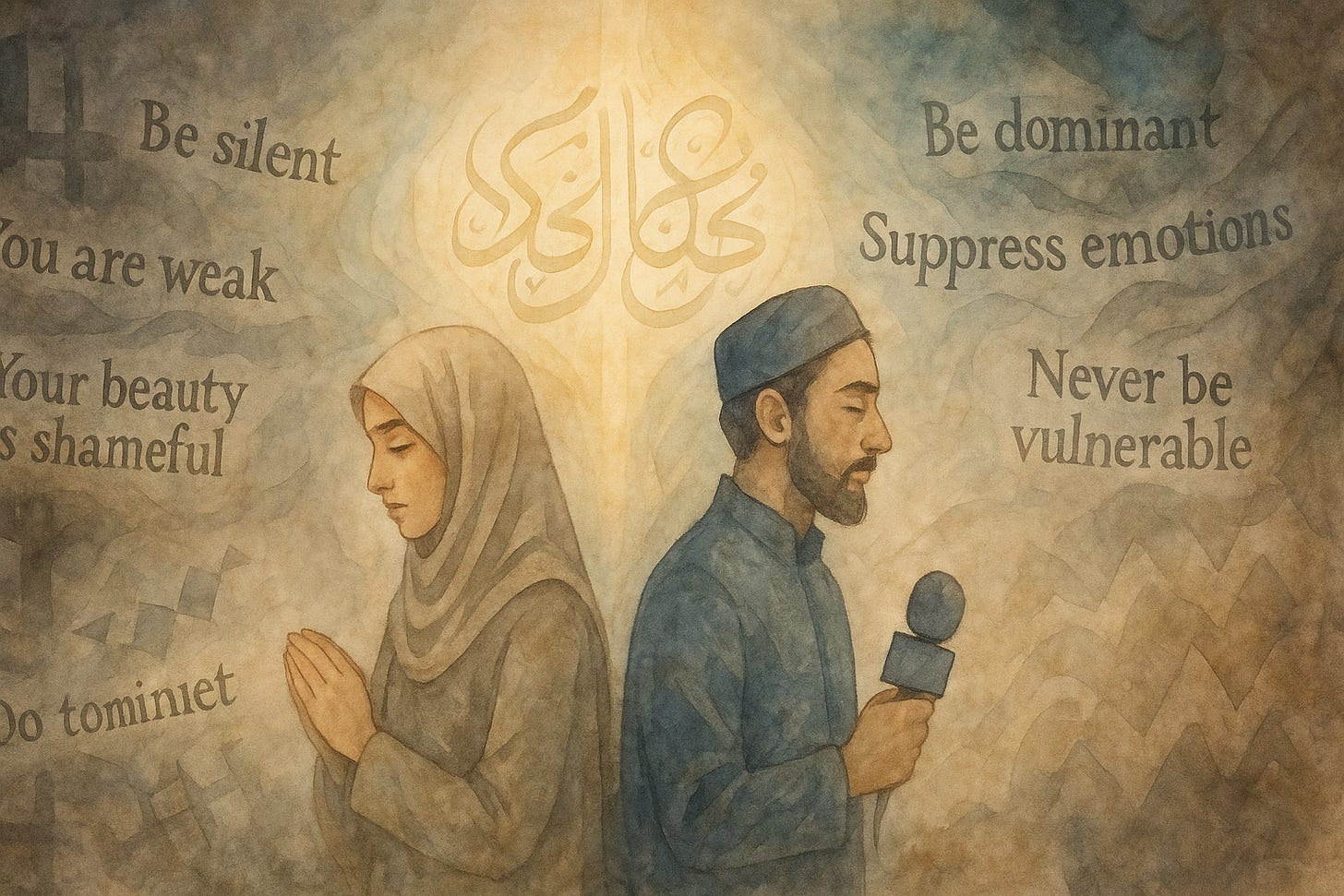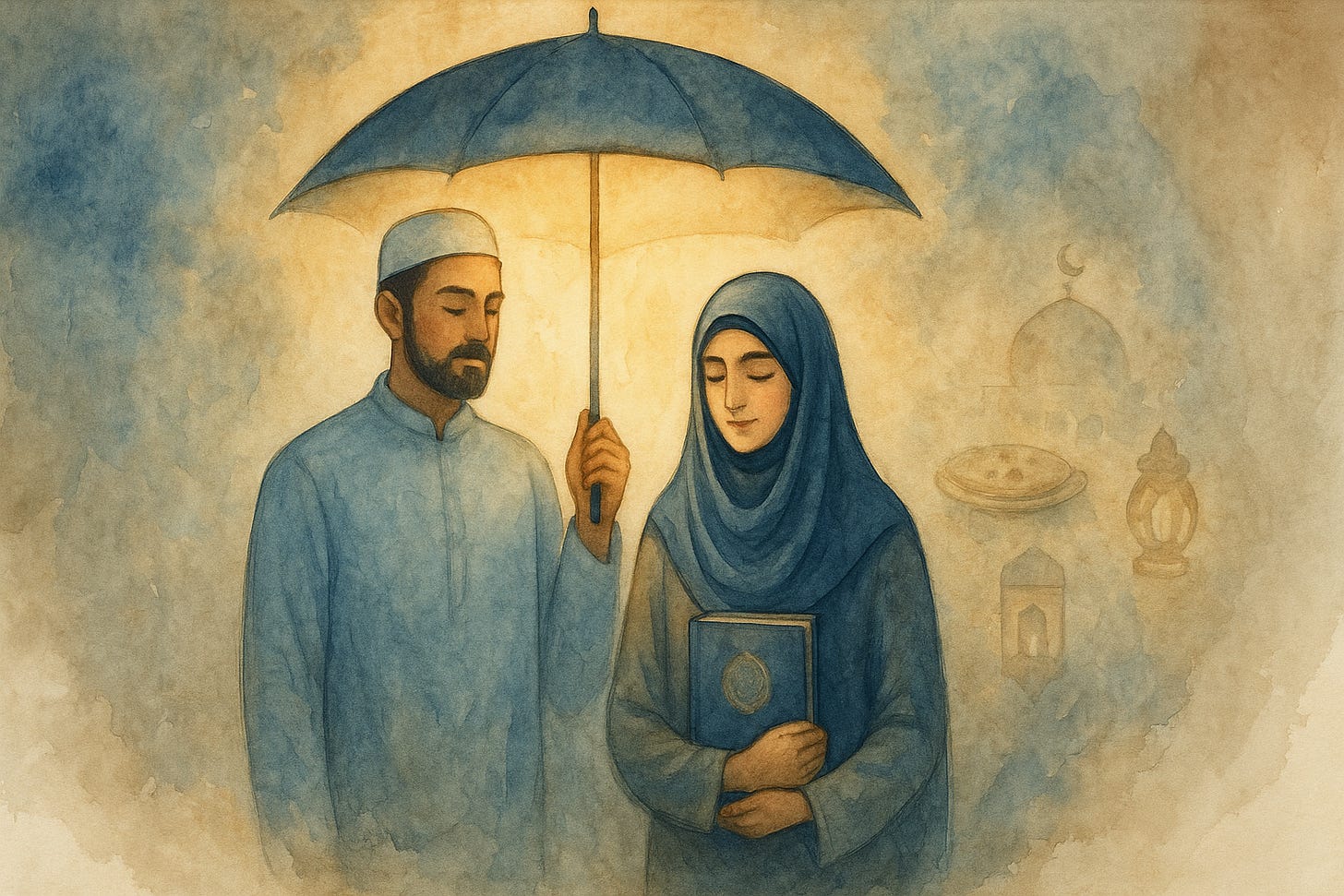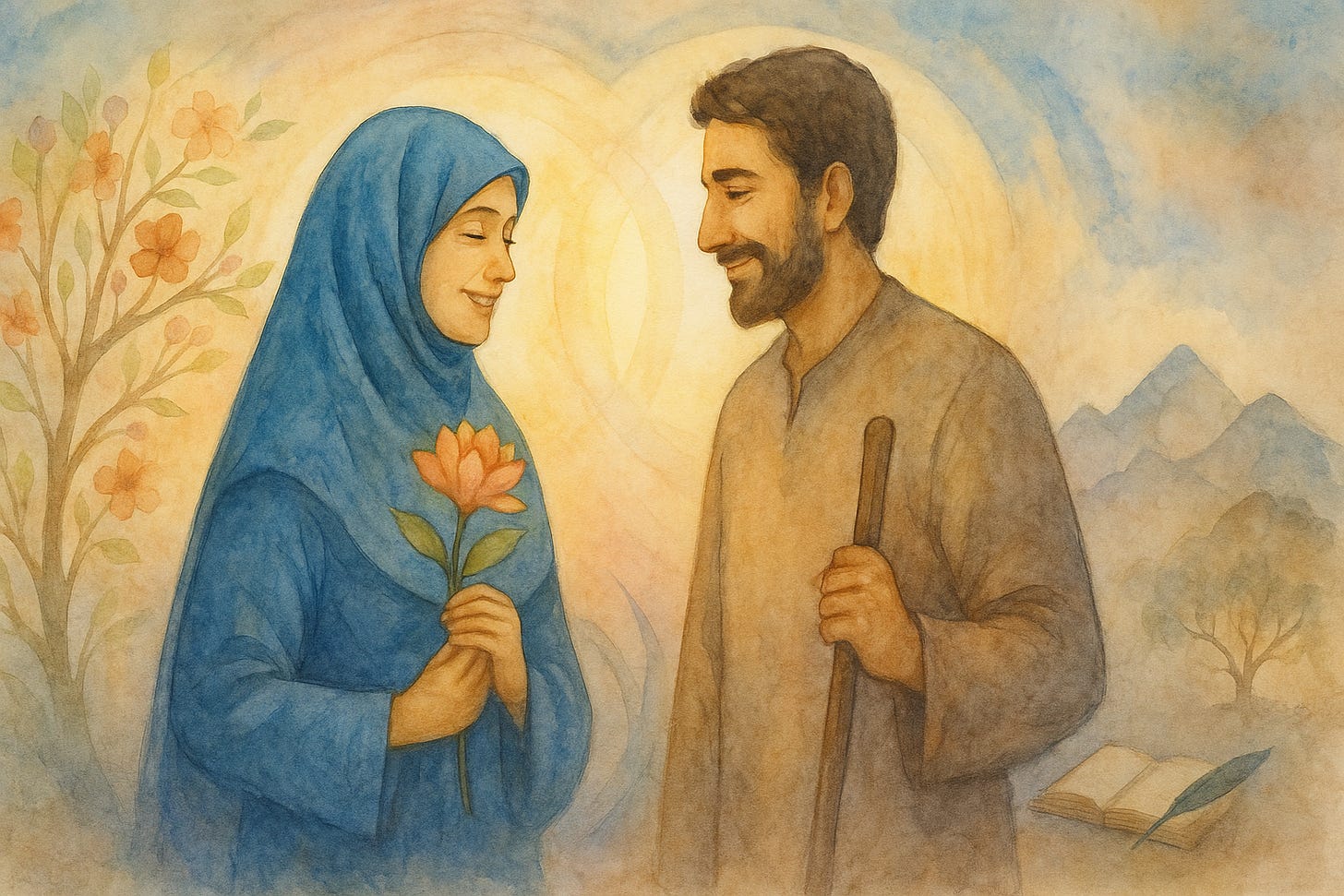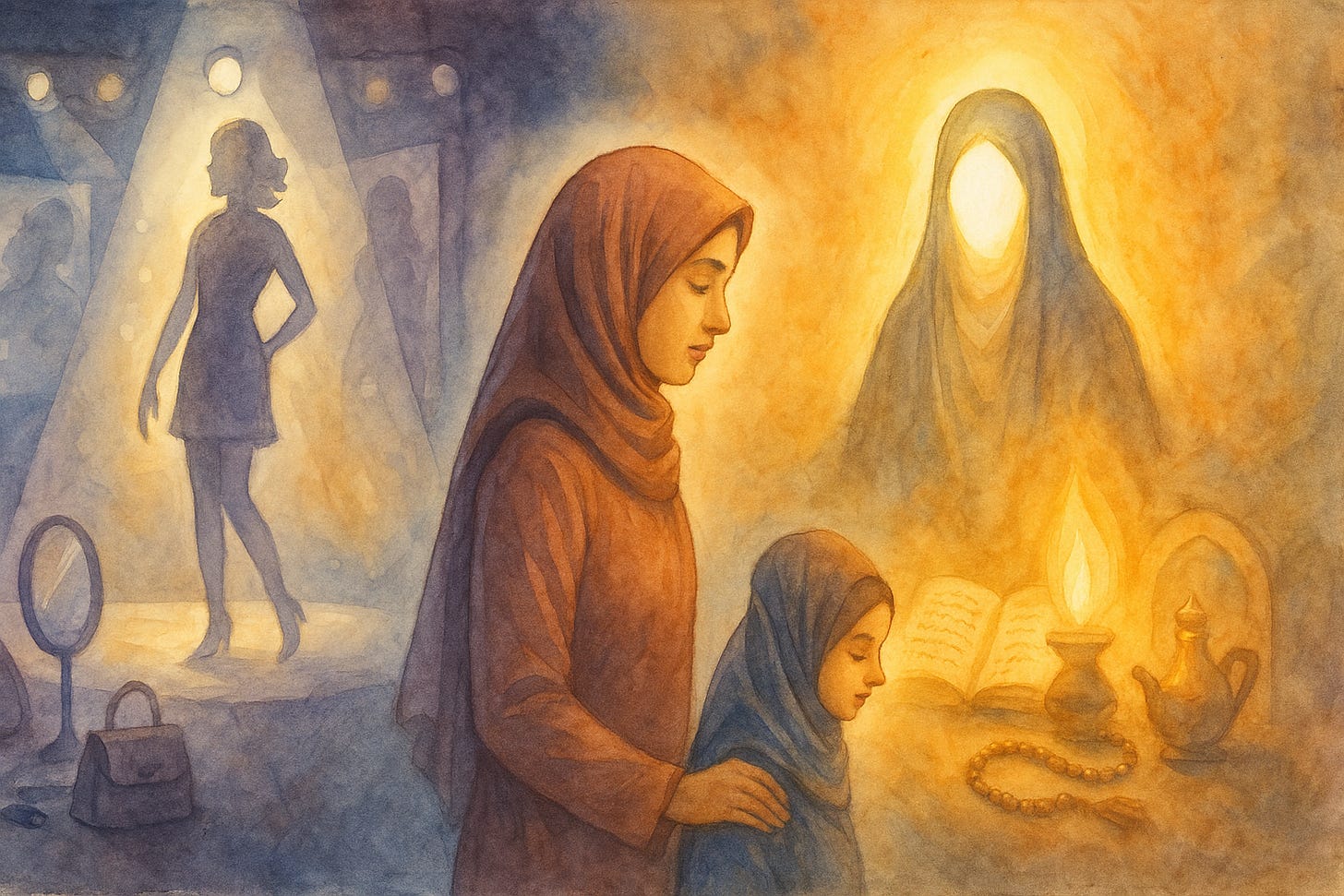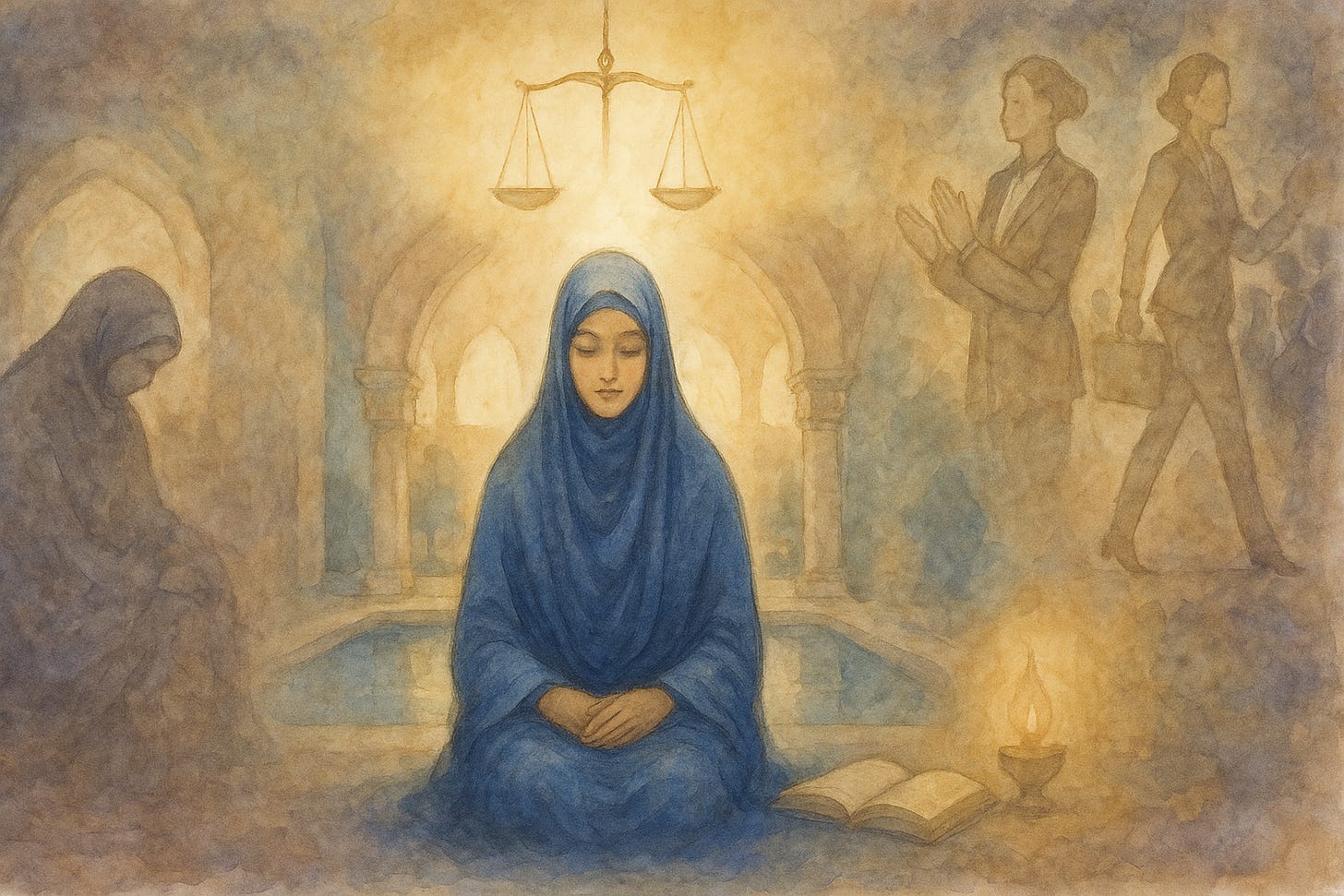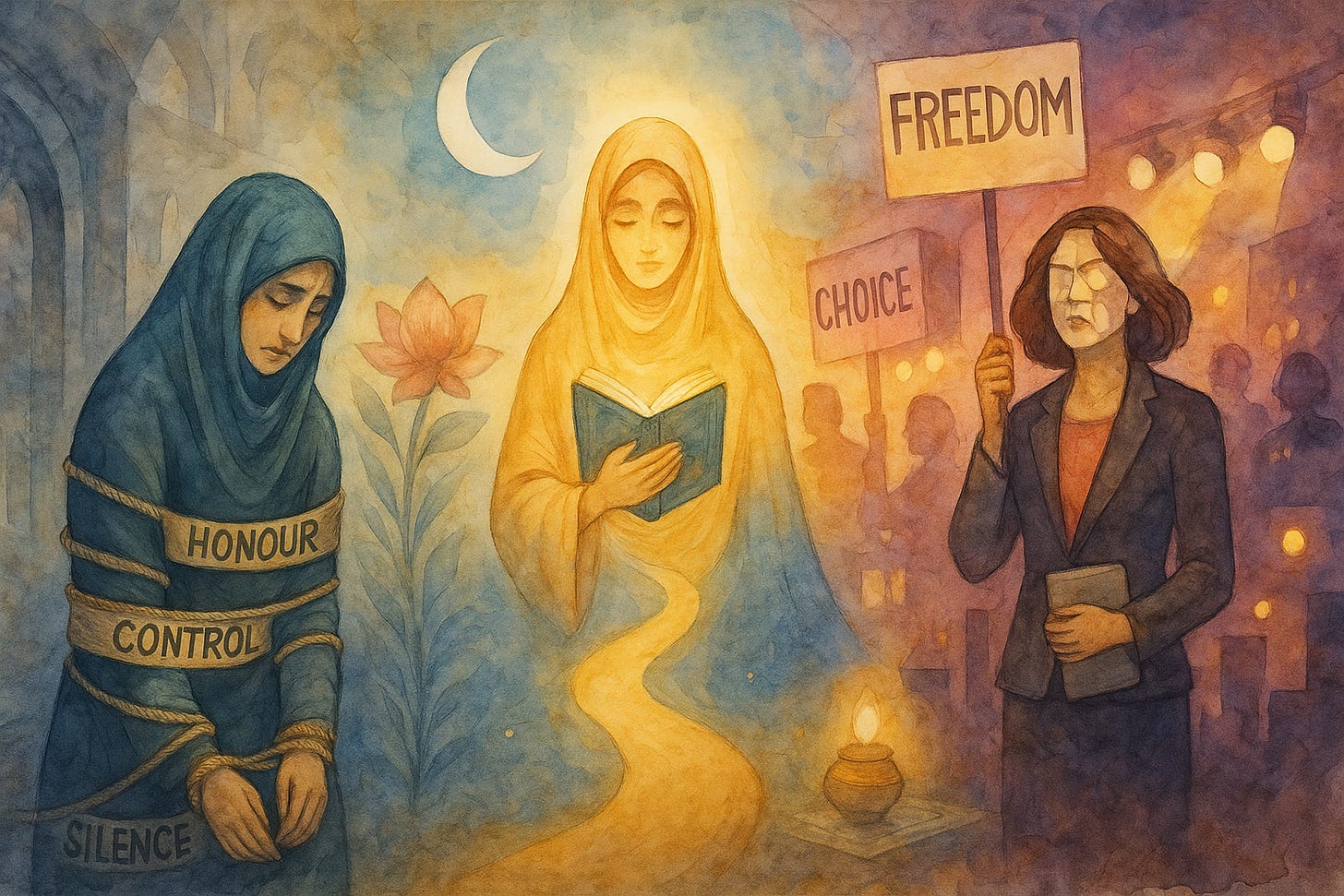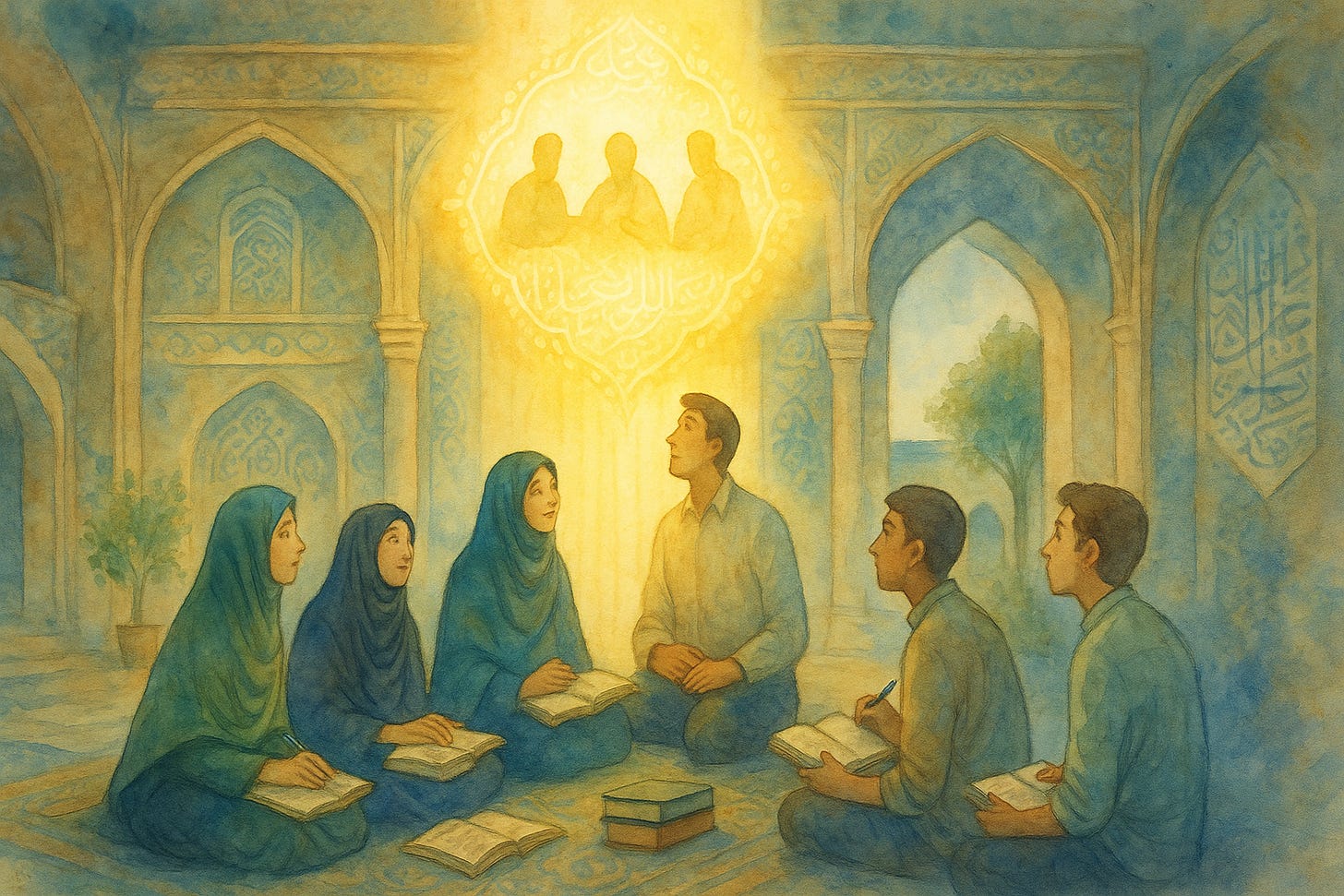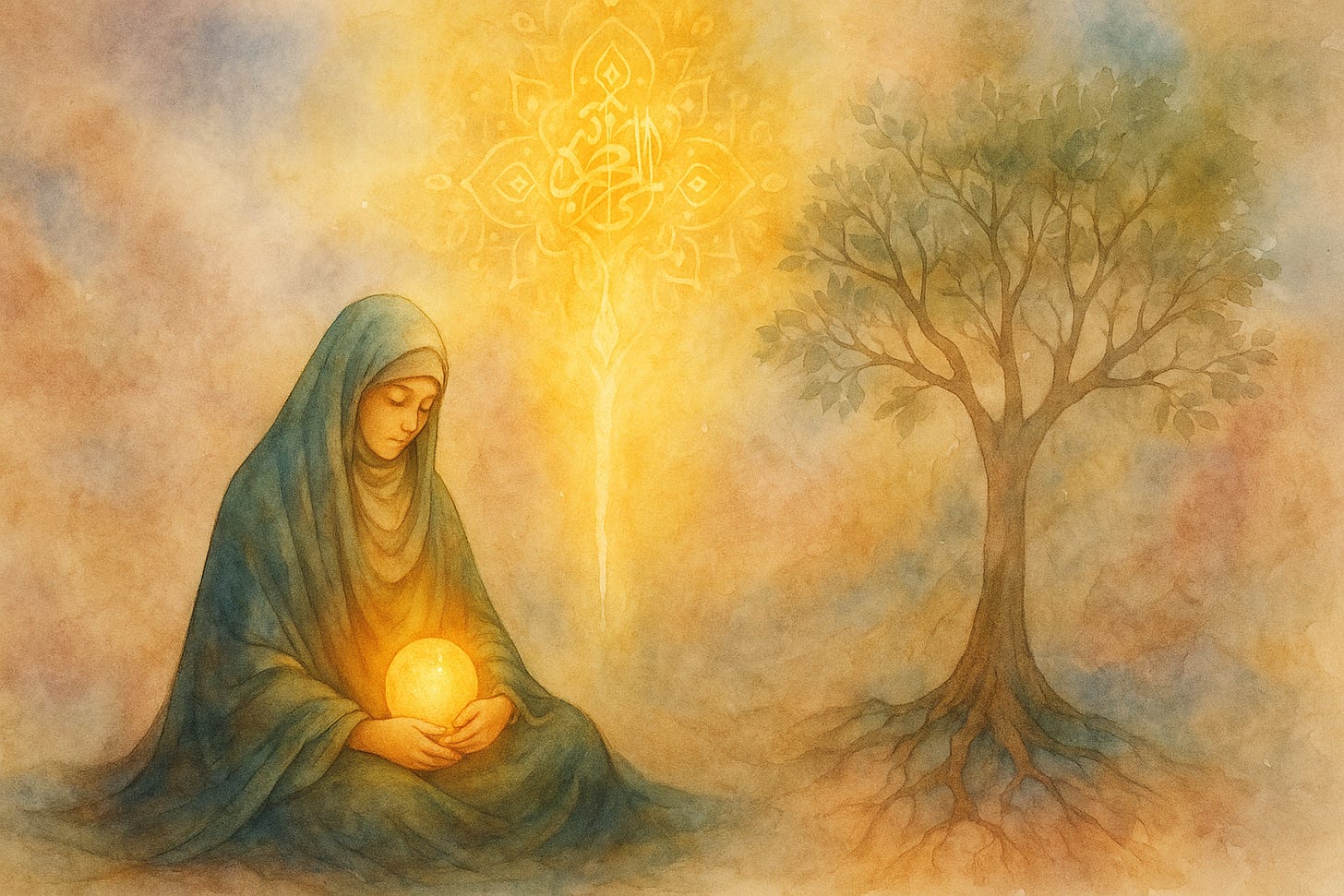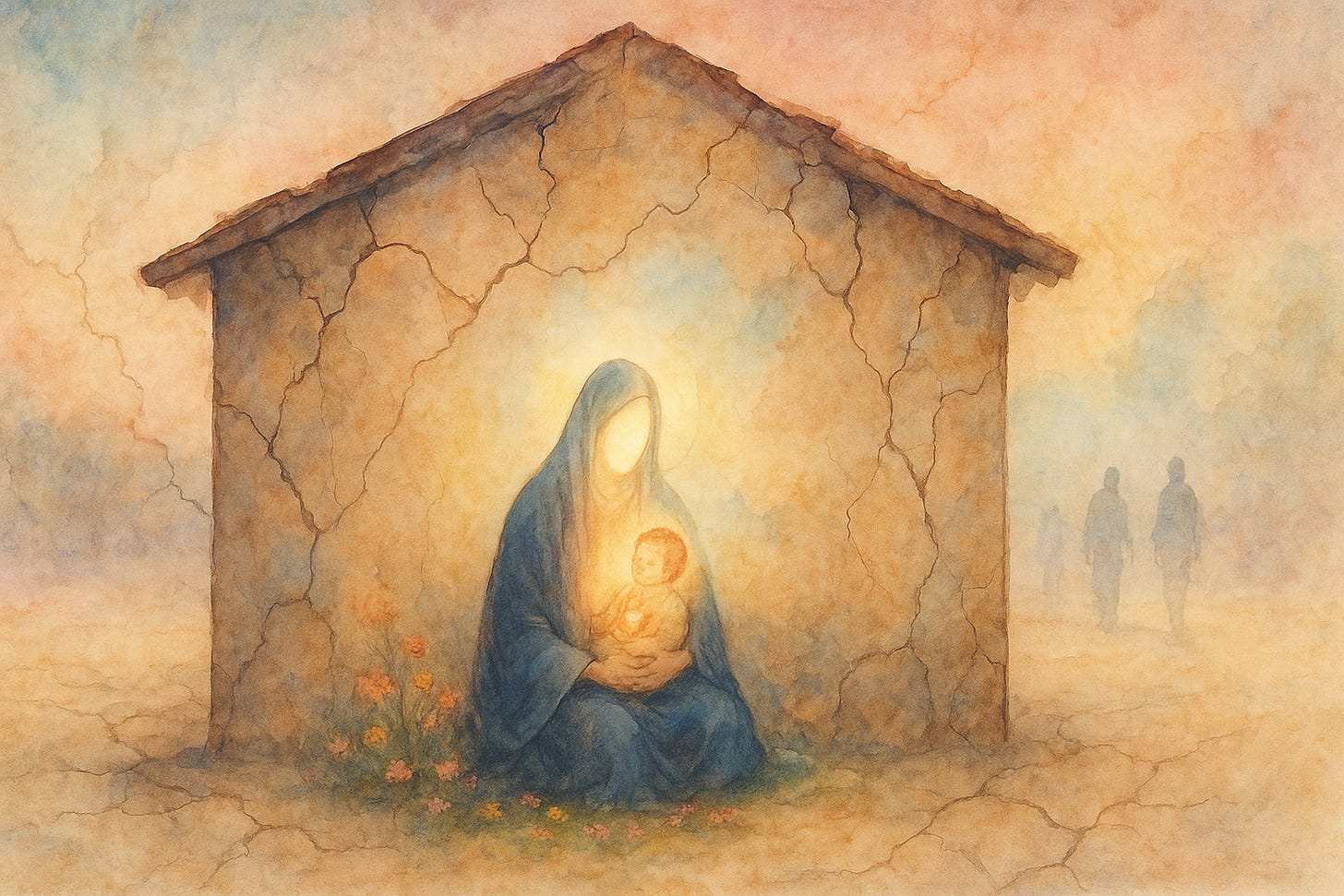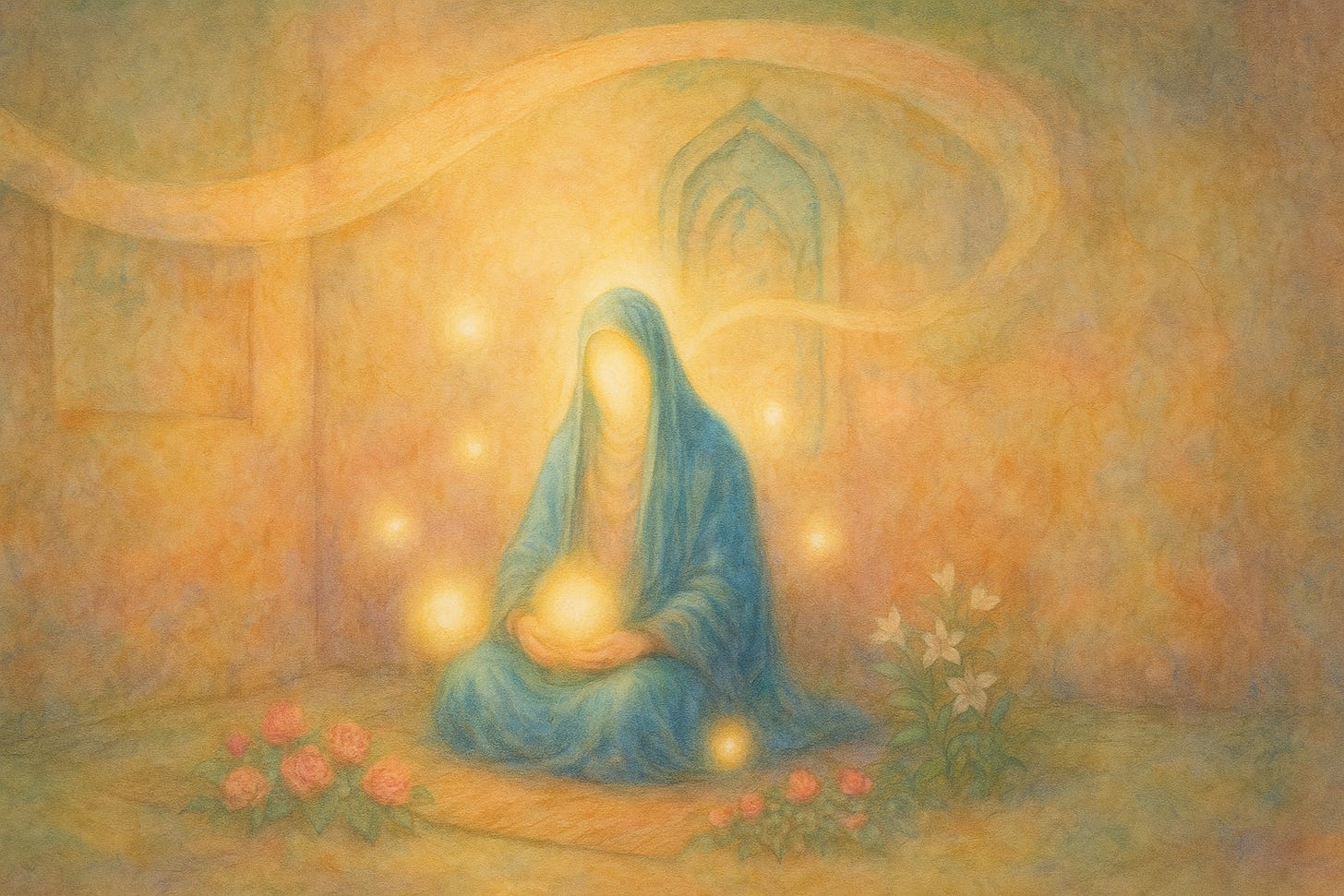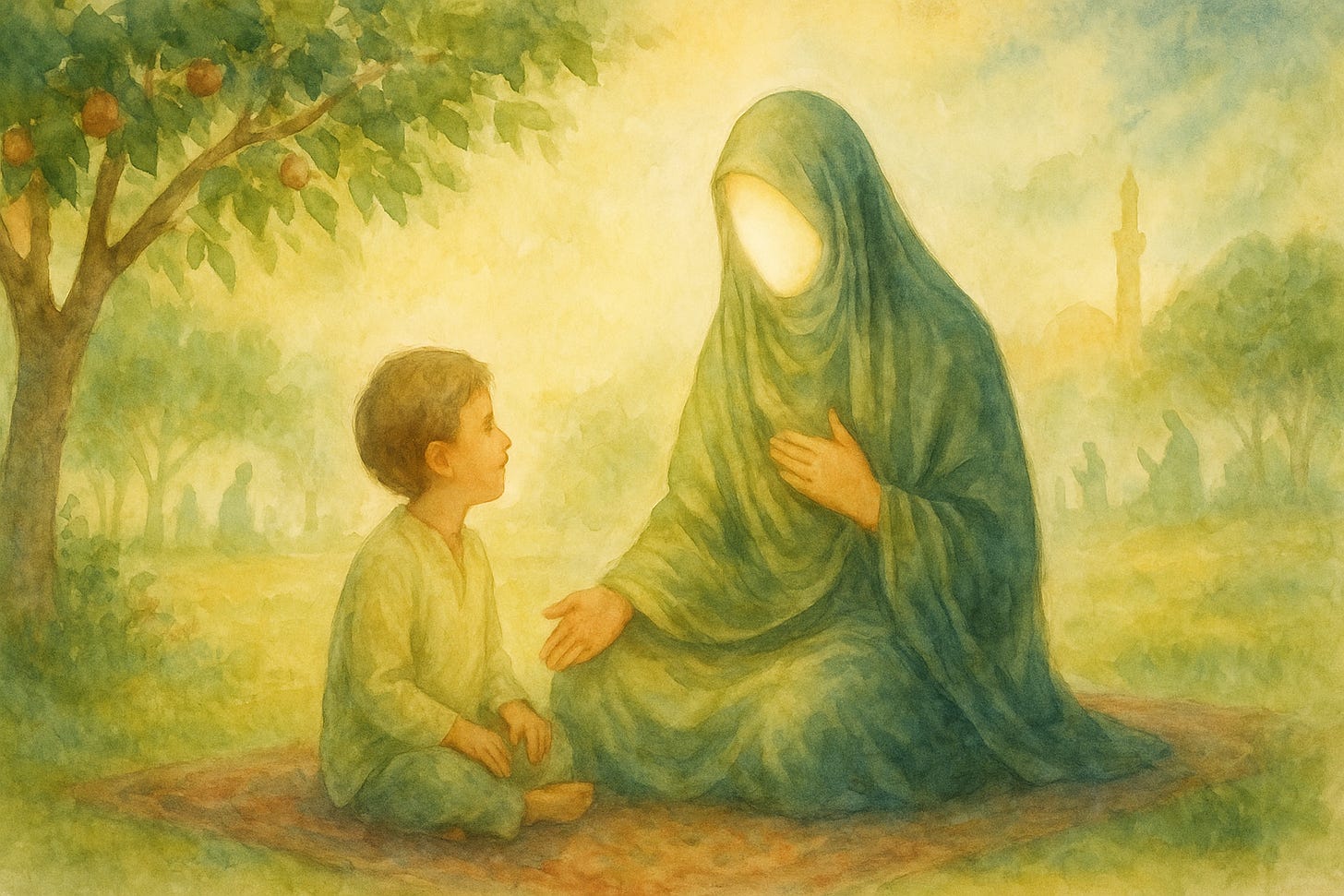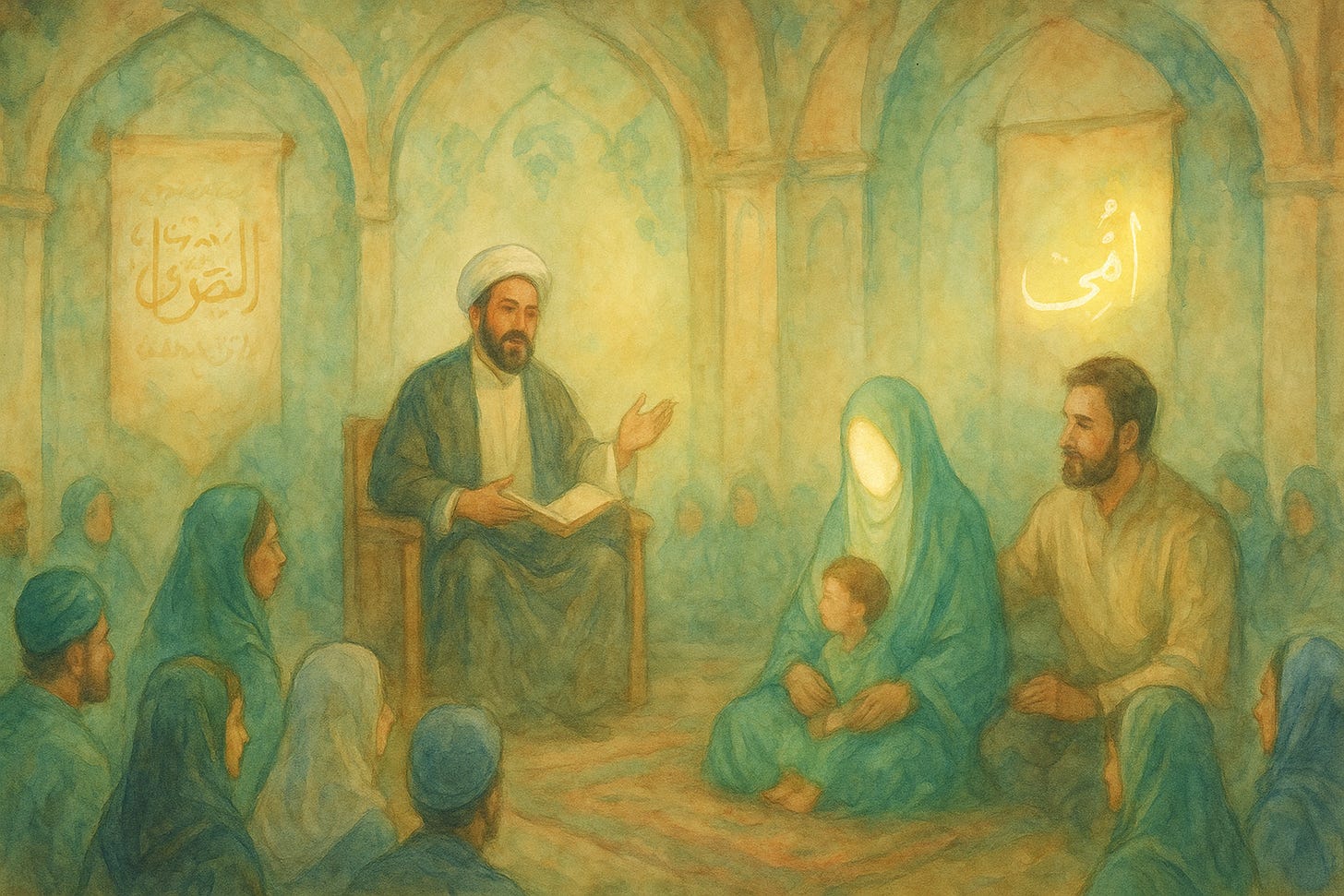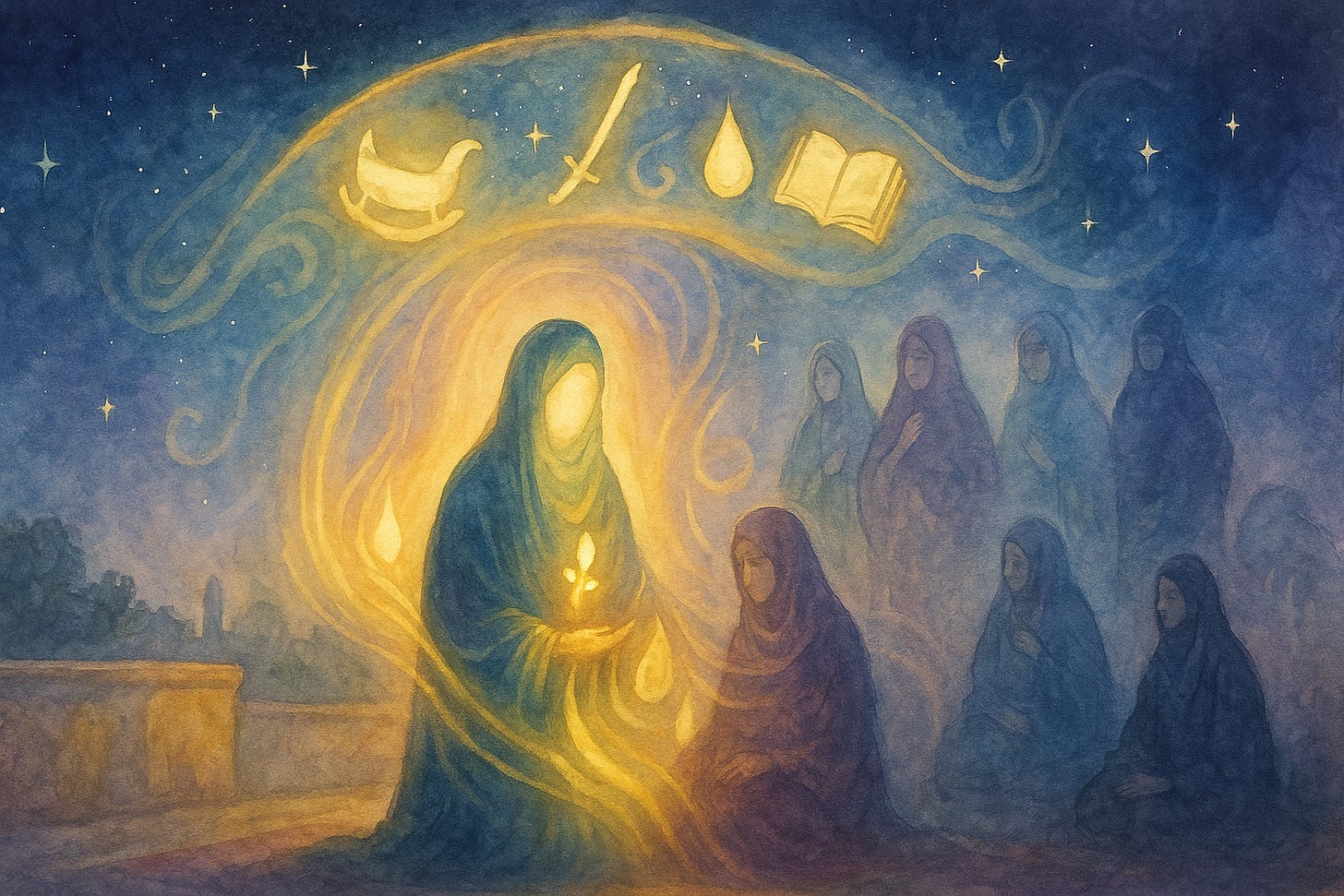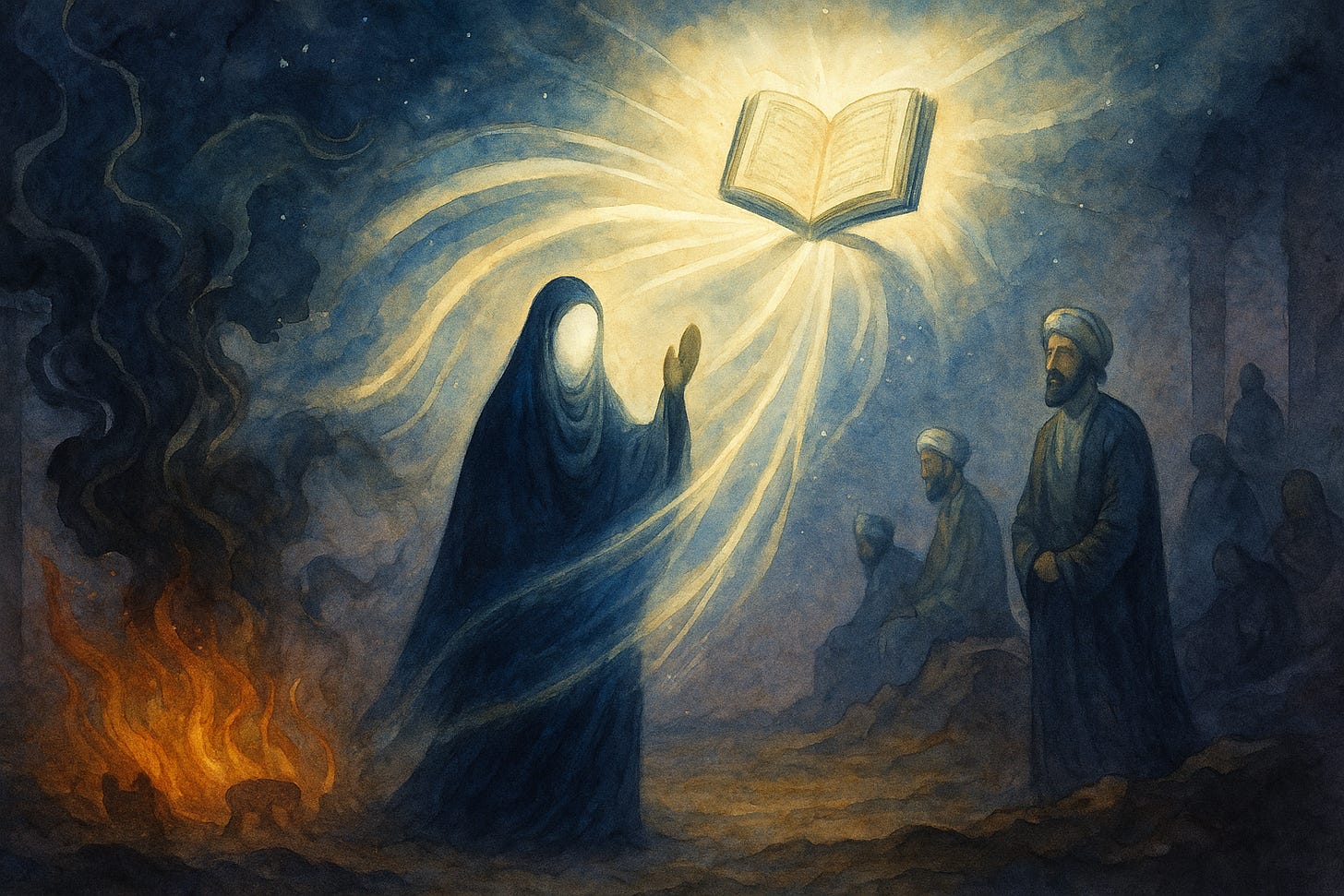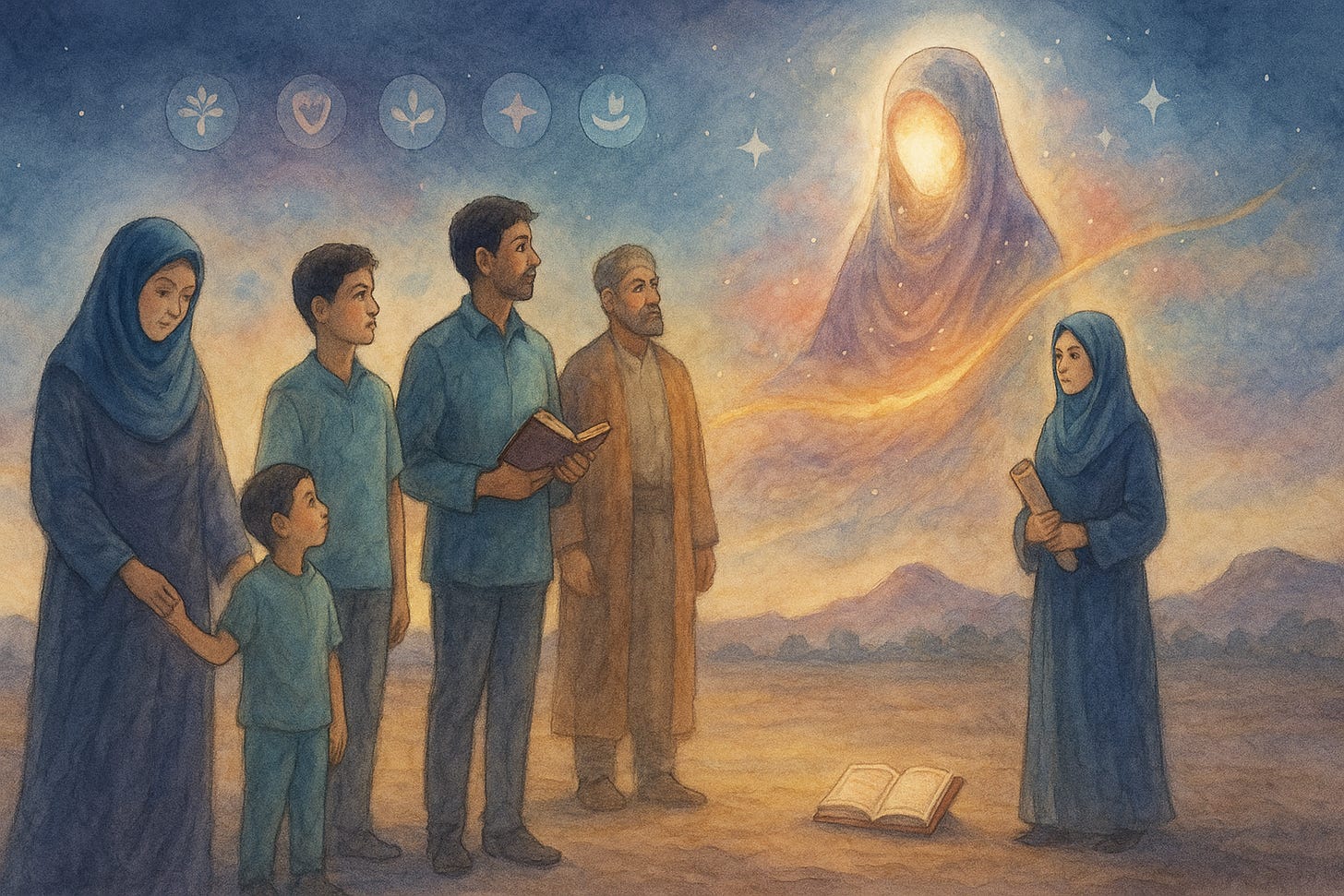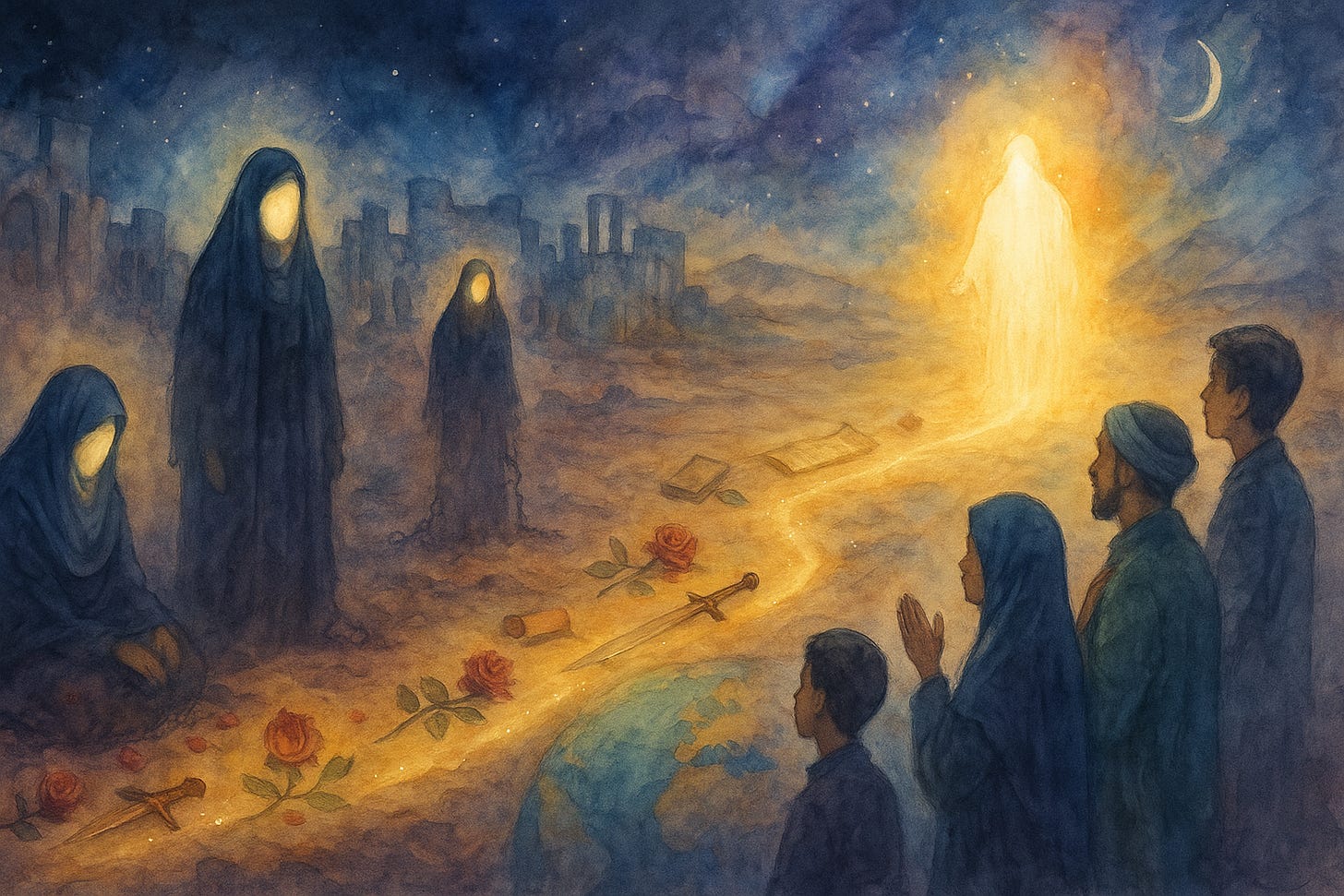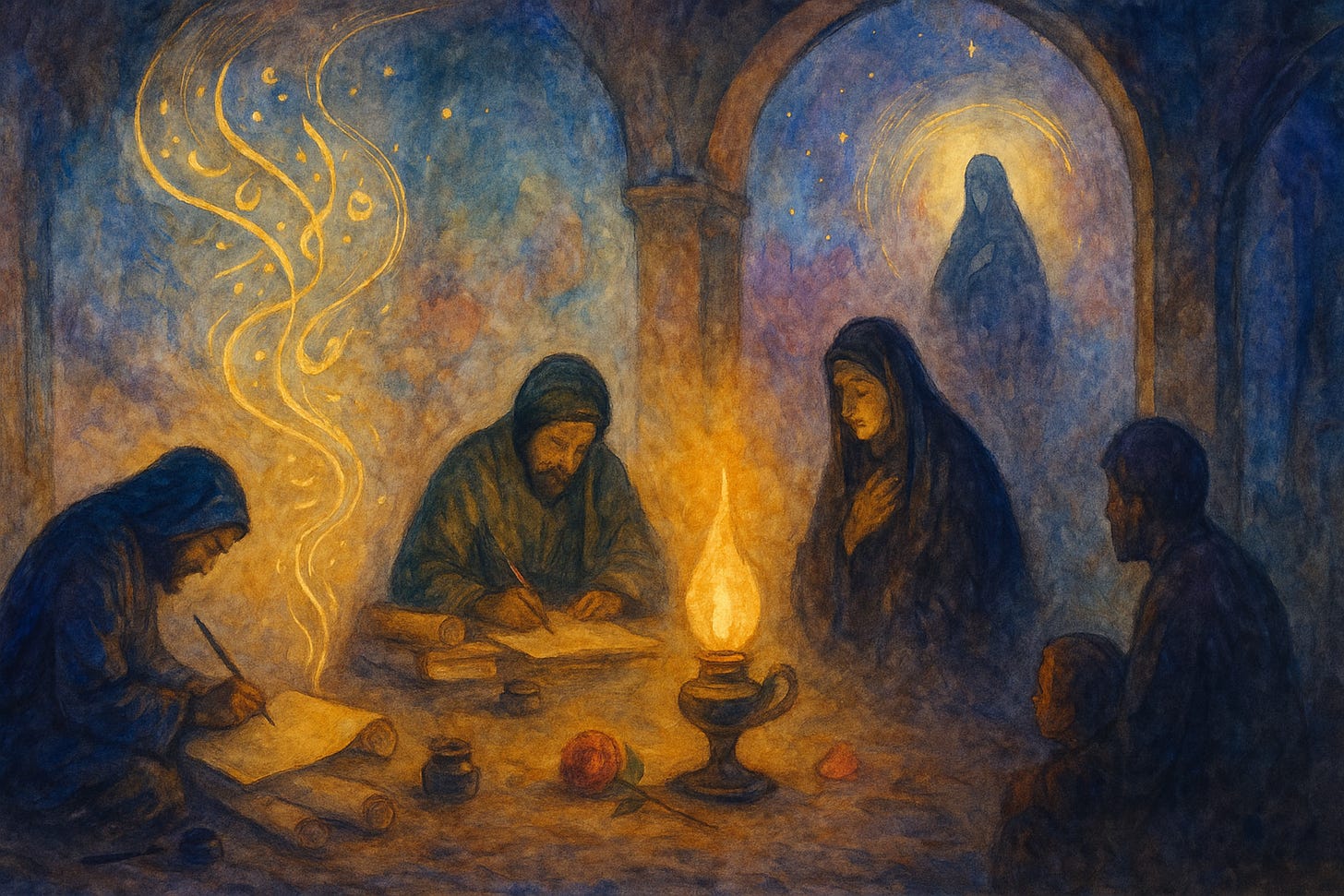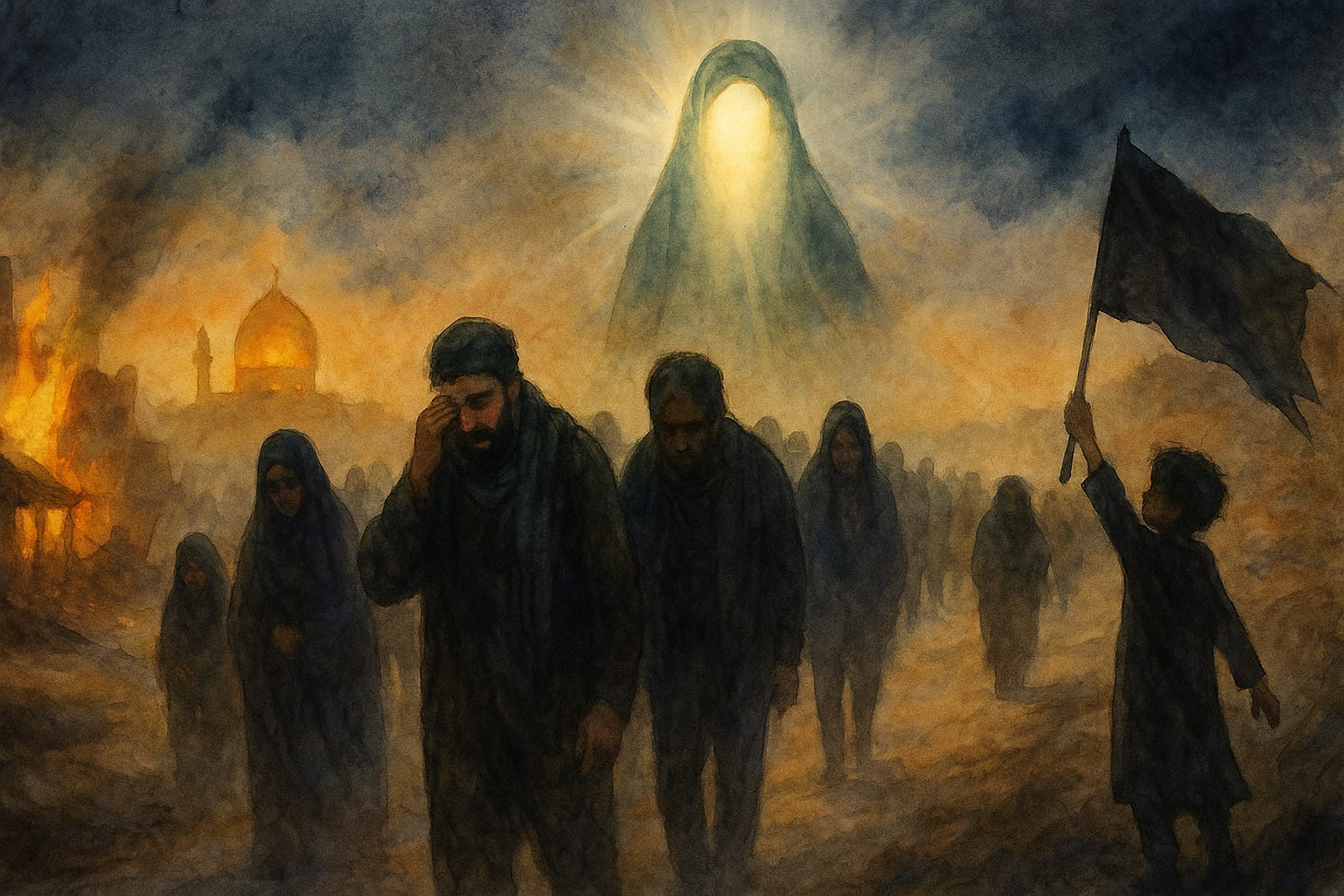[14] Tabyeen (Clarification) - In the Footsteps of Sayyedah Zaynab
A series of discussions on the notion of tabyeen; critical within Islam and Islamic thought. This series is based on lectures delivered by Imam Khamenei. These sessions are for Arbaeen 2025/1447
In His Name, the Most High
اَلسَّلَامُ عَلَيْكَ يَا بْنَ رَسُولِ اللَّهِ
اَلسَّلَامُ عَلَيْكَ يَا بْنَ سَيِّدِ الْأَوْصِيَاءِ
نَشْهَدُ أَنَّكَ أَمِينُ اللَّهِ وَابْنُ أَمِينِهِ
عِشْتَ سَعِيداً وَمَضَيْتَ حَمِيداً وَمُتَّ فَقِيداً مَظْلُوماً شَهِيداً
وَنَشْهَدُ أَنَّ اللَّهَ مُنْجِزٌ مَا وَعَدَكَ
وَمُهْلِكٌ مَنْ خَذَلَكَ وَمُعَذِّبٌ مَنْ قَتَلَكَ
وَنَشْهَدُ أَنَّكَ وَفَيْتَ بِعَهْدِ اللَّهِ
وَجَاهَدْتَ فِي سَبِيلِهِ حَتَّى أَتَاكَ الْيَقِينُ
فَلَعَنَ اللَّهُ مَنْ قَتَلَكَ وَظَلَمَكَ
وَلَعَنَ اللَّهُ أُمَّةً سَمِعَتْ بِذَلِكَ فَرَضِيَتْ بِهِ
اللَّهُمَّ إِنَّا نُشْهِدُكَ أَنَّا أَوْلِيَاءُ لِمَنْ وَلاَكَ
وَأَعْدَاءُ لِمَنْ عَادَاكَ
بِآبَائِنَا وَأُمَّهَاتِنَا يَا بْنَ رَسُولِ اللَّهِPeace be upon you, O son of the Messenger of God.
Peace be upon you, O son of the Master of the Successors.We bear witness that you are the trustee of God and the son of His trustee.
You lived a blessed life, departed praiseworthy, and died a martyr, deprived and wronged.
And we bear witness that God will fulfil what He promised you,
and will destroy those who abandoned you, and punish those who killed you.
And we bear witness that you fulfilled the covenant of God,
and strove in His way until certainty came to you.So may God’s mercy be away from those who killed you and wronged you,
and may God’s mercy be away from the people that heard of this and was pleased with it.O God, we make You our witness that we are friends to those who befriend you,
and enemies to those who are hostile to you.
May our fathers and mothers be sacrificed for you, O son of the Messenger of God.— Adapted from Ziyarat Arbaeen1
Introduction
This is the fourteenth in our series of sessions, for the nights of Ashura and now continuing in these blessed nights of Arbaeen, on the subject of Tabyeen (or clarification).
This is the fourth - and penultimate - part of the second series on Tabyeen, we will be continuing this series during the remaining nights of Arbaeen, God willing.
As with our other sessions - such as those on Patience, the Lantern of the Path or on the Art of Supplication - it is strongly recommended that the reader, at the very least review the previous sessions prior to consuming this one.
This is because of the nature of the discussion, and the manner of discourse requires that each part build upon the ones that came before; so as to avoid confusion, misunderstanding and any invalid assumptions; that can lead to what would be the antithesis of tabyeen (clarification).
While we do have a recap for each session, the recap is highly summarised, and to get the full nuance, the previous sessions will need to be consumed, studied and reflected upon.
The previous sessions can be found here:
Video of the Majlis (Sermon/Lecture)
Audio of the Majlis (Sermon/Lecture)
Recap
Youth at the Edge of Tomorrow
In our thirteenth session, we turned our gaze to the frontlines of the ummah — the youth.
No longer a distant demographic or a sentimental concern, the youth were revealed as the battleground of our time: assaulted by ideological confusion, targeted by algorithmic seduction, and left vulnerable by a silence too long maintained by the elders.
Drawing from the Quran, the sayings of the Ahl al-Bayt (peace be upon them), and the teachings of Imam Khamenei — especially his Letter4U campaign and his warnings on the soft war — we explored the divine station of youth in history and their central role in the jihad of tabyeen. The companions of the Cave, Prophet Ibrahim, Prophet Yusuf, Sayyedah Maryam — all exemplars of youthful sincerity in the face of empire and temptation.
We diagnosed the modern crisis: not merely of disbelief, but of disinterest; not a rebellion against faith, but a numbing of the desire to even seek it. And so the call was made — to rekindle longing before demanding knowledge, to soften hearts before instructing minds.
We then outlined the enemy’s methods: identity fragmentation, overstimulation, moral inversion, and spiritual despair. And in response, we offered a strategy grounded in the guidance of the Quran and the Ahl al-Bayt:
To revive the identity of wilayah
To restore reverence and silence
To rebuild broken trust in families
To cultivate companionship-based mentorship
To embed sincerity in every gathering
And to prepare the youth for the jihad of clarification — not only by protecting them, but by empowering them as torchbearers of truth.
From Karbala to Qom, from Qasim to Hojaji, from Ali al-Akbar to the seminarian poets of the Revolution — the path was clear: youth are not ornaments of the ummah. They are its heartbeat.
But the question remains:
What happens when those who walked the path before — the mothers of Karbala, the women of resistance — become the teachers of clarity?
When the voice that rose in Kufa, shackled but unshaken, becomes the standard of truth in an age of compromise?
That is the mission of our next session.
We now follow the footsteps… of Sayyedah Zaynab.
Tabyeen (Clarification) - In the Footsteps of Sayyedah Zaynab
The Veiled Vanguard of Karbala
In every age, tyrants believe that by spilling blood they can silence a movement. They believe that by killing the leader, the mission dies. But Karbala proved otherwise. For the revolution of Imam al-Husayn (peace be upon him) did not end at his martyrdom — it began anew in the voice of his sister.
Sayyedah Zaynab (peace be upon her) did not rise to claim authority. She rose because no voice remained but hers. She stood in the court of Yazid not as a prisoner, but as a clarifier of divine truth (mubayyinat al-haqq). Her sermon did not merely describe a tragedy — it shattered the narrative of the oppressor, exposed the false claims of victory, and preserved the moral clarity of Ashura for generations to come.
وَنُرِيدُ أَن نَّمُنَّ عَلَى الَّذِينَ اسْتُضْعِفُوا فِي الْأَرْضِ وَنَجْعَلَهُمْ أَئِمَّةً وَنَجْعَلَهُمُ الْوَارِثِينَ
“We desire to show favour to those who are oppressed in the land, and to make them leaders and inheritors.”
—Quran, Surah al-Qasas (the Chapter of the Narratives) #28, Verse 5
Her chains were not a symbol of defeat, but a refutation of worldly power. Her hijab was not an obstacle to resistance, but the very banner of her dignity and defiance. She stood veiled, yet unveiled the truths Yazid sought to bury. She stood shackled, yet unshackled the conscience of the Ummah.
Her sermon in Damascus echoes to this day:
فَكِدْ كَيْدَكَ، وَاسْعَ سَعْيَكَ، وَنَاصِبْ جُهْدَكَ، فَوَاللهِ لَا تَمْحُو ذِكْرَنَا، وَلَا تُميتُ وَحْيَنَا، وَلَا يُدْرِكُ أَمَدَنَا، وَلَا يُرْحَضُ عَنْكَ عَارُهُ
“So plot your schemes, and exert your efforts, and strive with all your power. By God, you will never erase our remembrance, nor extinguish our revelation, nor reach our end, nor wash away your shame.”
— Ibn Tawus2, Luhuf3, Section: Majlis of Yazid
— Al-Tabarsi4, Al-Ihtijaaj5, Volume 2, p. 307
Her words were not those of a victim, but of a witness to divine justice — a woman who had seen slaughter and captivity, and still refused to submit to the throne of falsehood.
This moment must be understood not just as an act of grief, but as an act of divine clarification — tabyeen. Imam Husayn (peace be upon him) embodied the truth in blood; Sayyedah Zaynab articulated it in speech. Without her, the revolution of Ashura could have been drowned by propaganda and forgotten by fear. With her, it became an eternal beacon for the oppressed.
وَمَنْ أَحْسَنُ قَوْلًا مِّمَّن دَعَا إِلَى اللَّهِ وَعَمِلَ صَالِحًا وَقَالَ إِنَّنِي مِنَ الْمُسْلِمِينَ
“And who speaks better than one who calls to God, and acts righteously, and says, ‘Indeed, I am of the Muslims’?”
— Quran, Surah al-Fussilat (the Chapter of Expounded Signs) #41, Verse 33
Her role must also be seen in harmony with Imam Ali ibn al-Husayn (peace be upon him) — the Imam of the time. Sayyedah Zaynab did not rise out of rebellion, nor out of personal ambition. She acted in coordination with the Imam, with his permission, and always deferred to his spiritual authority. Her leadership was not independent of Imamah — it was a clarifying extension of it.
زینب کبری (سلاماللهعلیها) زبان رسای حسین بن علی (علیهالسلام) بود و امام سجاد (علیهالسلام) حجت خاموش و استوار کربلا. این دو شخصیت عظیم، با ایستادگی و مجاهدت خود، پرچم ولایت الهی را در دنیایی که میخواست آن را دفن کند، برافراشته نگه داشتند و حقیقت عاشورا را جاودانه ساختند.
“(Sayyedah) Zaynab was the tongue of (Imam) Husayn, and (Imam) Sajjad was the silent proof. Together, they preserved the Wilayah of God in a world that wished to bury it.”
— Paraphrased from Speeches of Imam Khamenei on Sayyedah Zaynab6
In her courage, we find not rebellion — but submission.
In her speech, not chaos — but order.
In her stance, not defiance of religion — but its highest defence.
She did not become the voice of Ashura because she was a woman.
Nor despite being a woman.
She became it because she was prepared, because she believed, and because she spoke only when the silence of others threatened the truth.
Sayyedah Zaynab is the mother of tabyeen — and we, who claim to love Imam Husayn, must walk in her footsteps.
Women in the Quran – Agents of Revelation and Resistance
Our focus now shifts to reframing the narrative surrounding women in Islamic revelation, moving beyond the perception of women as mere symbolic accessories to male leadership and instead highlighting their roles as active participants in tabyeen (clarification), resistance, and the transmission of the divine message.
We will demonstrate that the Quran itself affirms the spiritual and political agency of women—not as a product of modern reinterpretation, but as a truth rooted in the very text of revelation.
By tracing a Quran lineage of women who clarified divine truths through obedience, confrontation, narration, and sacrifice, this exploration ultimately culminates in the enduring legacy of Sayyedah Zaynab (peace be upon her), whose life stands as a testament to the profound agency and authority granted to women within the Islamic tradition.
The Mother of Musa (Moses) – Revelation in the Hands of a Woman
The Quran begins the story of Prophet Musa (Moses) (peace be upon him) not with miracles, but with a woman, and not just any woman — but one who received direct divine revelation:
وَأَوْحَيْنَا إِلَىٰ أُمِّ مُوسَىٰ أَنْ أَرْضِعِيهِ ۖ فَإِذَا خِفْتِ عَلَيْهِ فَأَلْقِيهِ فِي ٱلْيَمِّ وَلَا تَخَافِي وَلَا تَحْزَنِي ۖ إِنَّا رَآدُّوهُ إِلَيْكِ وَجَاعِلُوهُ مِنَ ٱلْمُرْسَلِينَ
“We revealed to the mother of Moses: ‘Nurse him. Then, when you fear for him, cast him into the river, and do not fear nor grieve. Indeed, We shall restore him to you and make him one of the messengers.’”
— Quran, Surah al-Qasas (The Chapter of the Narratives) #28, Verse 7
This was wahy (revelation) — not legislative, but revelatory nonetheless. In the most vulnerable moment of her life, God trusted her with a command that would shape prophetic history.
She did not argue. She obeyed — and her obedience was itself an act of tabyeen: a woman confronting tyranny not with sword or speech, but with trust that exposed Pharaoh’s fear and laid the groundwork for Musa’s mission.
Sayyedah Asiyah – The Believer in the Palace of Oppression
The Quran introduces Sayyedah Asiyah, the wife of Pharaoh, not merely as a compassionate woman, but as a paragon of resistance within the heart of tyranny:
وَقَالَتِ امْرَأَتُ فِرْعَوْنَ قُرَّتُ عَيْنٍ لِّي وَلَكَ ۖ لَا تَقْتُلُوهُ عَسَىٰ أَن يَنفَعَنَا أَوْ نَتَّخِذَهُ وَلَدًا وَهُمْ لَا يَشْعُرُونَ
“The wife of Pharaoh said, ‘[He will be] a comfort to my eyes and to yours. Do not kill him. Maybe he will benefit us, or we may adopt him as a son.’ Yet they did not perceive [what was to come].”
— Quran, Surah al-Qasas (The Chapter of the Narratives) #28, Verse 9
And she is immortalised as a model believer:
وَضَرَبَ اللَّهُ مَثَلًا لِّلَّذِينَ آمَنُوا امْرَأَتَ فِرْعَوْنَ إِذْ قَالَتْ رَبِّ ابْنِ لِي عِندَكَ بَيْتًا فِي الْجَنَّةِ وَنَجِّنِي مِن فِرْعَوْنَ وَعَمَلِهِ وَنَجِّنِي مِنَ الْقَوْمِ الظَّالِمِينَ
“God has drawn a parable for those who have faith: the wife of Pharaoh, when she said, ‘My Lord, build for me a home with You in Paradise, and deliver me from Pharaoh and his conduct, and deliver me from the wrongdoing people.’”
— Quran, Surah al-Tahrim (the Chapter of the Prohibition) #66, Verse 11
She did not just save Moses from death — she rejected Pharaoh’s ideology, lived under his tyranny yet defied him spiritually, and became a model of loyalty to God.
This is tabyeen: standing for truth while surrounded by falsehood.
Sayyedah Maryam (Saint Mary) – Silence, Shame, and Divine Defence
Sayyedah Maryam’s tabyeen came through bearing the divine Word. She was accused, shamed, and isolated, yet never wavered. The Quran captures the moment she was confronted:
فَأَتَتْ بِهِ قَوْمَهَا تَحْمِلُهُ ۖ قَالُوا يَا مَرْيَمُ لَقَدْ جِئْتِ شَيْئًا فَرِيًّا
يَا أُخْتَ هَارُونَ مَا كَانَ أَبُوكِ امْرَأَ سَوْءٍ وَمَا كَانَتْ أُمُّكِ بَغِيًّا“She brought him to her people, carrying him. They said, ‘O Maryam! You have certainly done a shocking thing! O sister of Aaron! Your father was not a wicked man, nor was your mother unchaste!’”
— Quran, Surah Maryam (the Chapter of Saint Mary) #19, Verses 27–28
And then, the infant Jesus (Isa) spoke:
قَالَ إِنِّي عَبْدُ اللَّهِ آتَانِيَ الْكِتَابَ وَجَعَلَنِي نَبِيًّا
وَجَعَلَنِي مُبَارَكًا أَيْنَ مَا كُنتُ وَأَوْصَانِي بِالصَّلَاةِ وَالزَّكَاةِ مَا دُمْتُ حَيًّا
وَبَرًّا بِوَالِدَتِي وَلَمْ يَجْعَلْنِي جَبَّارًا شَقِيًّا“[Jesus] said, ‘Indeed I am a servant of God! He has given me the Book and made me a prophet. And He has made me blessed wherever I may be, and has enjoined on me prayer and zakat as long as I live, and to be good to my mother and has not made selfish and wretched.’”
— Quran, Surah Maryam (the Chapter of Saint Mary) #19, Verses 30–31
She did not respond to slander. Her silence was not weakness — it was a stage upon which divine truth would speak.
This is tabyeen — allowing truth to unveil itself when the world rushes to judgment.
Sayyedah Hajar – The Woman Whose Footsteps Became Ritual
Sayyedah Hajar, mother of Prophet Ismail, was left in the desert, yet her running became revelation.
Prophet Ibrahim (Abraham) (peace be upon him) prayed:
رَّبَّنَا إِنِّي أَسْكَنتُ مِن ذُرِّيَّتِي بِوَادٍ غَيْرِ ذِي زَرْعٍ عِندَ بَيْتِكَ الْمُحَرَّمِ رَبَّنَا لِيُقِيمُوا الصَّلَاةَ فَاجْعَلْ أَفْئِدَةً مِّنَ النَّاسِ تَهْوِي إِلَيْهِمْ وَارْزُقْهُم مِّنَ الثَّمَرَاتِ لَعَلَّهُمْ يَشْكُرُونَ
“Our Lord! I have settled part of my descendants in a barren valley, by Your sacred House, our Lord, that they may maintain the prayer. So make the hearts of a part of the people fond of them, and provide them with fruits, so that they may give thanks.”
— Quran, Surah Ibrahim (the Chapter of Abraham) #14, Verse 37
Her search for water became the saee7 between Safa and Marwa — preserved in the Hajj. Her footsteps echo forever.
Tabyeen is sometimes loud — and sometimes, it is silent effort in the desert that God immortalises.
The Women of Allegiance (Bay’ah)– Political Agents of Truth
يَا أَيُّهَا النَّبِيُّ إِذَا جَاءَكَ الْمُؤْمِنَاتُ يُبَايِعْنَكَ عَلَىٰ أَن لَّا يُشْرِكْنَ بِاللَّهِ شَيْئًا وَلَا يَسْرِقْنَ وَلَا يَزْنِينَ وَلَا يَقْتُلْنَ أَوْلَادَهُنَّ وَلَا يَأْتِينَ بِبُهْتَانٍ يَفْتَرِينَهُ بَيْنَ أَيْدِيهِنَّ وَأَرْجُلِهِنَّ وَلَا يَعْصِينَكَ فِي مَعْرُوفٍ ۙ فَبَايِعْهُنَّ وَاسْتَغْفِرْ لَهُنَّ اللَّهَ ۖ إِنَّ اللَّهَ غَفُورٌ رَّحِيمٌ
“O Prophet! When faithful women come to you, to take the oath of allegiance to you, [pledging] that they shall not ascribe any partners to God, that they shall not steal, nor commit adultery, nor kill their children, nor utter any slander that they may have intentionally fabricated, nor disobey you in what is right, then accept their allegiance, and plead for them to God for forgiveness. Indeed God is all-forgiving, all-merciful.”
— Quran, Surah al-Mumtahinah (the Chapter of the Woman to be Examined) #60, Verse 12
The women of Madinah were not sidelined. They pledged, they promised truth, they entered into contract with the Prophet.
Tabyeen includes the realm of bay’ah (allegiance) — politics, public allegiance, collective accountability.
Umm Salamah – Narrator of Prophetic Grief
When the Prophet (peace and blessings be upon him and his family) informed Umm Salamah of Imam Husayn’s martyrdom, he gave her a flask of Karbala soil, saying it would turn to blood on that day.
رَسُولُ اللهِ صَلَّى اللَّهُ عَلَيْهِ وَآلِهِ قَالَ: “هَذَا تُرَابٌ أَتَانِي بِهِ جَبْرَائِيلُ، أَخَذْتُهُ مِنَ الْمَوْضِعِ الَّذِي يُقْتَلُ فِيهِ الْحُسَيْنُ، وَسَيَكُونُ إِذَا قُتِلَ حُسَيْنٌ تَحَوَّلَ دَمًا.”
The Messenger of God (peace and blessings be upon him and his family) said: “This is soil that Gabriel brought me. I took it from the place where Husayn will be killed, and when he is martyred, it will turn to blood.”
— Al-Qummi8, Nafas al-Mahmoum9, Volume 1, Section: The Signs Before the Martyrdom of Husayn, Page 159, Hadeeth #23
Her preservation of this hadeeth is an act of tabyeen: protecting sacred memory against erasure.
Sayyedah Zaynab – The Living Tafsir (Exegesis) of Tabyeen
When Ibn Ziyad mocked her and asked:
“كَيْفَ رَأَيْتِ صُنْعَ اللهِ بِأَخِيكِ؟”
“How did you find the way God treated your brother?”
She replied:
“مَا رَأَيْتُ إِلَّا جَمِيلًا”
“I saw nothing but beauty.”
— Ibn Tawus10, Luhuf11, Volume 1
— Al-Khwarazmi12, Maqtal al-Husayn13, Volume 2
In Yazid’s court, she declared:
“فَوَاللهِ لَا تَمْحُو ذِكْرَنَا، وَلَا تُمِيتُ وَحْيَنَا”
“By God, you will never erase our remembrance, nor will you ever cause our revelation to die.”
She is not an exception — she is the continuation of Quranic womanhood. Her tabyeen was both an act of resistance and a revival of the Quran’s truest spirit.
The Quran does not restrict tabyeen to men, nor does it confine revelation to prophets.
The women of divine history stood with dignity, patience, and courage — and Sayyedah Zaynab stood in their footsteps, and ahead of them, as the final voice of Karbala.
Sayyedah Zaynab and the Weaponisation of Shame
Shackled, but not Silenced
In the aftermath of Karbala, Sayyedah Zaynab (peace be upon her) was spared by the sword — but she was targeted by something more insidious: the weapon of humiliation. In the palace of Yazid, surrounded by the heads of the martyrs and the laughter of courtiers, her captor did not merely aim to dominate her physically — he sought to crush her dignity.
This tactic — stripping a woman of her sanctity and reducing her to a figure of shame — has long been a method of tyrants. The goal is not simply to imprison the body, but to make the soul question its worth, to silence truth by tarnishing honour.
But Sayyedah Zaynab rose.
In chains, surrounded by orphans, veils torn, and grief immeasurable — she spoke not with vengeance, but with divine lucidity. Her pulpit was not of wood — it was her stance. Her sermon did not echo from marble halls — it thundered through time.
Yazid’s Attempt at Humiliation – and Her Divine Rebuttal
In Damascus, Yazid mocked the family of the Prophet and recited poetry linking his supposed victory to vengeance for Badr. When Sayyedah Zaynab was brought before him, he attempted to gloat over the martyrdom of her brother.
She responded not as a grieving sister, but as a hujjah, a proof of God against the tyrant. Her words, as recorded in al-Ihtijaaj16, carry the same tone as Quranic prophets before oppressors:
“فَكِدْ كَيْدَكَ، وَاسْعَ سَعْيَكَ، وَنَاصِبْ جَهْدَكَ، فَوَاللهِ لَا تَمْحُو ذِكْرَنَا، وَلَا تُميتُ وَحْيَنَا، وَلَا تُدْرِكُ أَمَدَنَا، وَلَا تَرْحَضُ عَنْكَ عَارَهَا.”
“So scheme your schemes, strive your utmost, and exert your efforts. By God, you will never erase our remembrance, nor will you cause our revelation to die, nor reach our legacy, nor wash away your shame.”
This was tabyeen in its purest form — speaking the truth to power with fearless clarity. It echoed the Quranic imperative:
وَإِذَا قُلْتُمْ فَاعْدِلُوا۟ وَلَوْ كَانَ ذَا قُرْبَىٰۖ
“And when you speak, speak with justice — even if against your own kin.”
— Quran, Surah al-An’aam (the Chapter of the Cattle) #6, Verse 152
And again:
ٱلَّذِينَ يُبَلِّغُونَ رِسَـٰلَـٰتِ ٱللَّهِ وَيَخْشَوْنَهُ وَلَا يَخْشَوْنَ أَحَدًا إِلَّا ٱللَّهَ
“Those who deliver the messages of God and fear Him, and fear none but God…”
— Quran, Surah al-Ahzaab (the Chapter of the Confederates) #33, Verse 39
Shame as a Tool of Tyranny
The attempt to reduce a woman’s power by attacking her dignity is not unique to Yazid — it is a tactic that has persisted across history.
Imam Ali (peace be upon him), in his letter to Malik al-Ashtar, warned:
“وَإِيَّاكَ وَالْعَجَلَةَ بِالْوَقِيعَةِ فِي النَّاسِ، فَإِنَّهُ مِنْ أَعْظَمِ الظُّلْمِ.”
“Beware of rushing to defame people, for that is among the greatest forms of injustice.”
— Nahjul Balagha19, Letter 53
Shaheed Mutahhari explains in The Rights of Women in Islam that Islam was revolutionary in preserving the dignity of women in a society that used shame as a form of control:
در دوره جاهلیت، زن نه تنها از حقوق انسانی محروم بود، بلکه شخصیت و احترام او در گرو سکوت و خانهنشینی و دوری از اجتماع بود. اسلام با اعطای حقوق انسانی به زن، او را از این وضعیت خارج ساخت و شخصیت و احترام او را بر پایه ایمان، عقل و شرافت انسانی قرار داد.
"In the era of ignorance (jahiliyyah), a woman was not only deprived of human rights, but her dignity and respect depended on her silence, seclusion, and distance from society. Islam, by granting human rights to women, removed her from this condition and established her dignity and respect on the basis of faith, intellect, and human nobility."
— Mutahhari20, Huquq-e Zan dar Islam (The Rights of Women in Islam)21, Page 22
Quranic Principle: Human Dignity Is Inviolable
The Quran repeatedly insists that human dignity is not conditional — it is inherent:
وَلَقَدْ كَرَّمْنَا بَنِيٓ آدَمَ
“Indeed, We have honoured the children of Adam…”
— Quran, Surah al-Isra (the Chapter of the Night Journey) #17, Verse 70
Allamah Tabatabai, in al-Mizan22, notes that this karamah is not just honour of creation, but a responsibility to uphold truth and resist degradation — even when one is under oppression.
And the Quran warns against shaming others:
يَـٰٓأَيُّهَا ٱلَّذِينَ ءَامَنُوا۟ لَا يَسْخَرْ قَوْمٌۭ مِّن قَوْمٍ عَسَىٰٓ أَن يَكُونُوا۟ خَيْرًۭا مِّنْهُمْ…
“O you who believe! Let not some people ridicule others — they may be better than them…”
— Quran, Surah al-Hujuraat (the Chapter of the Chambers) #49, Verse 11
Imam Khamenei, in his lectures on Islamic identity, reminds us:
جامعهای که زنان در آن بر اساس تقوا و نه بر اساس ظاهر یا سکوت مورد تکریم قرار میگیرند، جامعهای است که حقیقت اسلام را منعکس میکند.
“A society in which women are honoured based on piety, not appearance or silence, is a society that truly reflects Islam.”
— Imam Khamenei, Speech to the Women’s Congress, March 1997
Modern Parallels: Gaslighting and Emotional Undermining
The tactic used by Yazid is echoed today:
Women are made to feel “too emotional” to teach or lead.
Wives are told “obedience means silence”, even when they witness wrongdoing.
Activist women are shamed with labels: radical, immodest, disobedient — to keep them away from the frontlines of moral discourse.
But the Ahl al-Bayt rejected such tactics. Imam al-Sadiq (peace be upon him) said:
عَنْ أَبِي عَبْدِ اللَّهِ (ع) قَالَ:
الْمُؤْمِنُ أَعَزُّ مِنَ الْجَبَلِ، الْجَبَلُ يُسْتَقَلُّ مِنْهُ بِالْمَعَاوِلِ، وَالْمُؤْمِنُ لَا يُسْتَقَلُّ مِنْ دِينِهِ بِشَيْءٍ أَبَداً.The believer is more unyielding than the mountain. The mountain can be chipped away with picks, but nothing can chip away the faith of the believer.
Sayyedah Zaynab is the proof of this hadeeth — a believer who could not be moved, even when shackled before the oppressor of her time.
Restoring the Psychology of Dignity
To follow Sayyedah Zaynab (peace be upon her) is not to simply weep for her — it is to learn from her refusal to be diminished. Communities must:
Teach her story not just during the nights of Ashura and Arbaeen, but in marriage courses, youth halaqaat (study circles), and mental health circles.
Incorporate her sermon into Islamic leadership training, especially for women’s programmes.
Frame modesty as presence with dignity — not erasure or enforced silence.
Recognise and confront spiritual and emotional abuse wherever it appears — including in religious spaces.
Imam Khomeini has taught us:
بچه وقتی در دامن مادرش هست میبیند مادر اخلاق خوش دارد، اعمال صحیح دارد، گفتار خوش دارد. این بچه از همانجا اعمالش و گفتارش به تقلید از مادر – که از همه تقلیدها بالاتر است – و به تزریق مادر که از همه تزریقها مؤثرتر است – تربیت میشود.
...سعادت و شقاوت کشورها بسته به وجود زنان است و این زن است که با تربیت صحیح خویش، انسان میسازد و کشور و جامعه را به سوی اصلاح پیش میبرد.
When a child is in his mother’s lap, he sees that his mother has good morals, correct actions, and pleasant speech. The child, from that very place, imitates the actions and words of the mother—which is the highest form of imitation—and is shaped by the mother’s influence, which is the most effective of all influences.
...The happiness and misery of countries depend on the presence of women, and it is the woman who, through her proper upbringing, creates human beings and leads the country and society toward reform.
— Imam Khomeini, Sahifeh-ye Imam25, Volume 7, Page 283, Speech to a Group of Women, April 5, 1979, Qom
Imam Khamenei has also said similar:
اگر زن در یک خانواده، در یک جامعه، درست تربیت شود، آن جامعه و آن خانواده به سعادت خواهد رسید.
If a woman in a family, in a society, is properly educated, that family and that society will attain happiness.
— Imam Khamenei, Speech on Women’s Day, May 3, 2007
And once more Imam Khomeini teaches:
زن، مظهر تحقق آمال بشر است.
زن پرورشده زنان و مردان ارجمند است.
از دامن زن مرد به معراج میرود.
دامن زن محل تربیت بزرگ زنان و بزرگ مردان است.
روز بزرگی است، یک زن در دنیا آمد که مقابل همه مردان است.
یک زن به دنیا آمد که نمونه انسان است.
یک زن به دنیا آمد که تمام هویت انسانی در او جلوهگر است.
پس روز، روز بزرگی است؛ روز شما زنان است.Woman is the manifestation of the realisation of human aspirations.
Woman is the nurturer of noble men and women.
From the lap of the woman, the man ascends to the heavens.
The lap of the woman is the place where great women and great men are raised.
It is a great day; a woman came into the world who stands against all men.
A woman was born who is the exemplar of humanity.
A woman was born in whom all human identity is manifest.
So, this is a great day; it is your day, women.— Imam Khomeini, Sahifeh-ye Imam26, Volume 7, Page 341, Speech on the Birth Anniversary of Sayyedah Fatimah az-Zahra, May 17, 1979, Qom
But that ascent is only possible when the woman is not made to feel ashamed for existing.
Sayyedah Zaynab’s chains were not her weakness — they were her pulpit.
Her sermon was not a response — it was the continuation of Ashura.
She did not defend herself — she defended the truth.
And in doing so, she taught every generation that true shame is not in being oppressed — it is in remaining silent when truth is trampled.
Let us never weaponise shame.
Let us raise Zaynabi daughters — and Husayni sons who honour them.
The Injustice of Silencing – From Fadak to Damascus
The legacy of tabyeen through speech did not begin with Sayyedah Zaynab — it was inherited. Decades before the plains of Karbala, Sayyedah Fatimah az-Zahra, peace and blessings be upon her, stood in the Prophet’s Mosque, delivering a sermon that remains among the most theologically and politically forceful discourses in Islamic history — the Khutbah al-Fadakiyyah27.
Her sermon, which opens with detailed Quran praise and affirmation of divine justice, included this command from the Book of God:
يَا أَيُّهَا الَّذِينَ آمَنُوا كُونُوا قَوَّامِينَ بِالْقِسْطِ شُهَدَاءَ لِلَّهِ وَلَوْ عَلَى أَنفُسِكُمْ
“O you who have faith! Be maintainers of justice and witnesses for God, even if it be against yourselves…”
— Quran, Surah al-Nisa (the Chapter of the Women) #4, Verse 135
She did not speak emotionally — she spoke exegetically, correcting a misreading of divine inheritance law and the right of wilayah.
As Sayyed Hassan Nasrallah stated in a lecture commemorating Sayyedah Zaynab:
زينب لم تتكلّم بعد الحسين، بل أصبحت حسينًا. دمه جرى على لسانها، كما جرى على جسده. خطبة فاطمة أصبحت خطبة زينب
“(Sayyedah) Zaynab did not speak after (Imam) Husayn — she became (Imam) Husayn. His blood flowed on her tongue as it flowed on his body. The Sermon of (Sayyedah) Fatimah became the Sermon of (Sayyedah) Zaynab.”
— Sayyed Hassan Nasrallah, Speech on the Birth of Sayyedah Zaynab (Dahiyeh, 2004)
Silencing in the Name of Modesty: A Corruption of the Prophetic Model
Across generations, women’s public voices have been restricted — not through textual prohibition, but cultural manipulation. The guise of ‘modesty’ has often been used to block even the most Quranic and scholarly voices.
Imam Ali states in Nahjul Balagha:
وَإِنَّمَا النَّاسُ رَجُلَانِ: رَجُلٌ بَارٌّ تَقِيٌّ كَرِيمٌ عَلَى اللَّهِ، وَفَاجِرٌ شَقِيٌّ هَيِّنٌ عَلَى اللَّهِ
“People are of two types: a righteous, God-conscious one who is noble before God; and a wicked, miserable one who is insignificant before God.”
— Nahjul Balagha28, Sermon 86
No distinction is made by gender — honour is through taqwa, as the Quran declares:
إِنَّ أَكْرَمَكُمْ عِندَ اللَّهِ أَتْقَاكُمْ
“Indeed, the most honoured of you in God’s sight is the most God-conscious among you.”
— Quran, Surah al-Hujuraat (the Chapter of the Chambers) #49, Verse 13
The Martyred Ayatullah Beheshti wrote:
اسلام زن را به سکوت وادار نکرده است، بلکه زن و مرد را به مسئوليت دعوت كرده است
“Islam did not command women to be silent; rather, it invited both men and women to responsibility.”
— Ayatullah Beheshti29, Mardom va Inqilab-i Islami30, Page 243
Speech as Religious Duty – Not a Gendered Privilege
The Quran commands speech as a means of justice, not gender. One of the most powerful verses on dawah (inviting to Islam, evangelising) reads:
وَمَنْ أَحْسَنُ قَوْلًا مِمَّن دَعَا إِلَى اللَّهِ وَعَمِلَ صَالِحًا وَقَالَ إِنَّنِي مِنَ الْمُسْلِمِينَ
“And who speaks better than one who invites to God, does righteous deeds, and says: I am of the Muslims?”
— Quran, Surah al-Fussilat (the Chapter of the Explaining in Detail) #41, Verse 33
Allamah Tabatabai writes in al-Mizan:
الآية تدل على أن القول الأحسن ما كان دعوة إلى الله مع العمل الصالح والاعتراف بالإسلام، وهي عامة تشمل كل مؤمن ومؤمنة
“This verse proves that the best speech is that which invites to God, paired with righteous action and identity with Islam — and it includes all believing men and women.”
Shaheed Murtadha Mutahhari confirms this principle in The Rights of Women in Islam:
اسلام، سکوت زن در برابر ظلم را به نام عفّت نمیپذیرد؛ آنچه مقدّس است، حقیقت است، نه سکوت در برابر باطل
“Islam does not accept a woman’s silence in the face of injustice under the name of modesty. What is sacred is truth — not silence before falsehood.”
— Mutahhari33, Huquq-e Zan dar Islam (The Rights of Women in Islam)34, Page 47
Sayyedah Zaynab’s Sermon as Divine Fulfilment
When Sayyedah Zaynab stood before Yazid, she embodied the Quranic imperative:
يَا أَيُّهَا الَّذِينَ آمَنُوا اتَّقُوا اللَّهَ وَقُولُوا قَوْلًا سَدِيدًا
“O you who believe! Be conscious of God, and speak a word that is just.”
— Quran, Surah al-Ahzaab (the Chapter of the Confederates) #33, Verse 70
Imam Khamenei said in a speech:
«خطبه زينب در مجلس يزيد، شمشير نبود، بلکه آيه بود. آيهاى كه طاغوت را رسوا كرد.»
“The sermon of (Sayyedah) Zaynab in Yazid’s court was not a sword — it was a verse. A verse that exposed the tyrant.”
— Imam Khamenei, Speech to Women’s Seminar on Zaynab, 2012, Tehran
Silencing Women Is Bidah (Innovation), Not Islam
The Prophet himself condemned the hiding of truth:
إِذَا ظَهَرَتِ الْبِدَعُ فِي أُمَّتِي، فَلْيُظْهِرِ الْعَالِمُ عِلْمَهُ، فَمَنْ لَمْ يَفْعَلْ فَعَلَيْهِ لَعْنَةُ اللَّهِ
“When innovations appear in my ummah, the scholar must reveal his knowledge. Whoever does not — upon him is the curse of God.”
This includes female scholars and truth-speakers. As Ayatullah Sayyed Muhammad Husayn Fadhlullah wrote:
المرأةُ لا يُنتظر منها أن تصمت حين يُنتهك الإسلام، بل يجب أن تصرخ بالحقيقة، كما فعلت فاطمة وزينب
“The woman is not expected to be silent when Islam is violated. She must cry out for truth — as (Sayyedah) Fatimah and (Sayyedah) Zaynab did.”
— Ayatullah Fadhlullah37, Al-Marah fi Mawkib al-Islam (The Woman in the Procession of Islam)38, Page 211
Zaynabi Platforms Must Be Created
If we honour Sayyedah Zaynab, we must build the platforms she never had:
Hawzat and seminaries must train female preachers with theological rigour.
Khutbahs, halaqahs, and majalis should include the voices of righteous women.
Cultural constructs that equate female presence with impropriety must be confronted.
Sayyed Abbas al-Musawi, speaking to women in Lebanon before his martyrdom, declared:
المرأة التي ترفض الذل وتعلن موقفها هي الشاهدة على استمرارية الدم الحسيني. إن لم تتكلم، سيموت الحسين من جديد.
“The woman who rejects humiliation and declares her stance is the witness to the continuity of Husayni blood. If she does not speak, Husayn will die again.”
— Sayyed Abbas Al-Musawi, Speech to Women of the Resistance, Baalbek, 1991
Risalat al-Huquq and the Marriage of Light
Marriage as a Moral Trust – Not a Power Hierarchy
In the teachings of Islam, marriage is not a transactional contract or a platform for control — it is a spiritual partnership rooted in mutual rights, love, and accountability. No text captures this better than Risalat al-Huquq of Imam Zayn al-Abedeen, where the Imam lists over 50 reciprocal rights between the individual, society, and God.
Among them is the right of the wife (haqq al-zawjah), which he describes in the following words:
وَأَمَّا حَقُّ زَوْجَتِكَ فَأَنْ تَعْلَمَ أَنَّ اللهَ جَعَلَهَا لَكَ سَكَنًا وَأُنْسًا، فَتَعْلَمَ أَنَّ ذَلِكَ نِعْمَةٌ مِنَ اللهِ عَلَيْكَ، فَتُكْرِمَهَا وَتَرْفُقَ بِهَا، وَإِنْ كَانَ حَقُّكَ عَلَيْهَا أَوْجَبَ، فَإِنَّ لَهَا عَلَيْكَ أَنْ تَرْحَمَهَا، لِأَنَّهَا أَسِيرَتُكَ، وَتُطْعِمَهَا وَتَكْسُوهَا، وَإِذَا جَهِلَتْ عَفَوْتَ عَنْهَا
“As for the right of your wife: you should know that God has made her a tranquillity and comfort for you. She is a blessing from God. Therefore, honour her, and treat her with gentleness. Even though your right over her is greater, she still has a right that you should show her mercy, for she is your captive. Feed her and clothe her, and if she is ignorant (at times), forgive her.”
— Risalat al-Huquq39, Right #25
This profound formulation annihilates any reading of Islam that treats marriage as a hierarchy of superiority.
The wife is not a servant — she is a trust from God.
Her mistakes are not occasions for domination — they are moments that demand forgiveness, mercy, and compassion.
The Quranic Vision: Love and Mercy – Not Control
The foundation of this ethic is in the Quran itself:
وَمِنْ ءَايَٰتِهِۦٓ أَنْ خَلَقَ لَكُم مِّنْ أَنفُسِكُمْ أَزْوَٰجًۭا لِّتَسْكُنُوٓا۟ إِلَيْهَا وَجَعَلَ بَيْنَكُم مَّوَدَّةًۭ وَرَحْمَةً
“And among His signs is that He created for you mates from among yourselves so that you may find tranquillity in them, and He placed between you affection and mercy.”
— Quran, Surah al-Rum (The Chapter of Rome) #30, Verse 21
Allamah Tabatabai writes in al-Mizan:
السكنى لا تكون إلا في موضع الأمن، والمودة والرحمة هما الأساسان النفسيان للحياة الزوجية، لا القهر والغلبة
“Tranquillity only exists where there is security. Affection and mercy are the psychological foundations of married life — not dominance or coercion.”
Revisiting Qiwamah (Protection) — Accountability, Not Superiority
The oft-misunderstood verse:
ٱلرِّجَالُ قَوَّٰمُونَ عَلَى ٱلنِّسَآءِ…
“Men are the maintainers [qawwamun] of women…”
— Quran, Surah al-Nisa (the Chapter of the Women) #4, Verse 34
This verse has been weaponised in patriarchal cultures to imply male superiority. But the Quranic term qawwam comes from qiyam — to stand with, to support, to protect — not to dominate.
Imam Khomeini explains:
«قوامیت به معنای مسئولیت است، نه برتری. مرد مسئول است، نه مالک»
“Qiwamah means responsibility, not superiority. The man is accountable — not a master.”
— Imam Khomeini42, Tahrir al-Wasila43, Volume 2, Masa’il an-Nikah, Ruling 24
And Ayatullah Shaheed Beheshti added:
در اسلام، مرد قوام است نه چون برتر است، بلکه چون بار مسئولیت بیشتری بر دوش اوست
“In Islam, the man is qawwam not because he is superior, but because greater responsibility is placed upon him.”
The Problem of Polygyny: Legal, But Often Abused
Islam permits polygyny under strict ethical and social responsibility. Yet in many communities, it is abused by those who use the letter of the law to satisfy their ego, rather than serve justice.
The Quran warns:
فَإِنْ خِفْتُمْ أَلَّا تَعْدِلُوا فَوَاحِدَةً
“But if you fear you will not deal justly, then [marry only] one…”
— Quran, Surah al-Nisa (the Chapter of the Women) #4, Verse 3
Ayatullah Mutahhari strongly condemned the misuse of polygyny:
تعدد زوجات، اگر از مرز عدالت خارج شود، ظلم است؛ نه تنها به زن، بلکه به اسلام
“Polygyny, when it crosses the boundaries of justice, becomes injustice — not just to the woman, but to Islam itself.”
— Mutahhari46, Huquq-e Zan dar Islam (The Rights of Women in Islam)47, Page 121
Even the Prophet (peace and blessings be upon him and his family), despite it being lawful, only married monogamously with Sayyedah Khadijah, the woman who bore the weight of his mission.
Rebuilding Marriage on the Basis of Wilayah
To rebuild the sanctity of marriage, we must return to Risalat al-Huquq and the Quran. The path forward requires:
Pre-marital education grounded in Islamic ethics and emotional intelligence.
Condemning the cultural distortion of qawwam into authoritarianism.
Teaching men that honouring one’s wife is part of religious piety.
Reframing discussions of polygyny — from legal entitlement to moral burden.
As Sayyed Hassan Nasrallah beautifully summarised:
المرأة في الإسلام شريكة الرجل، وليست تابعة له. كما أن زينب كانت شريكة في دم الحسين، يجب أن تكون المرأة شريكة في المسؤولية
“In Islam, the woman is the partner of the man — not his subordinate. Just as (Sayyedah) Zaynab was the partner in (Imam) Husayn’s blood, the woman must be a partner in responsibility.”
— Sayyed Hassan Nasrallah, Speech on Islamic Family Ethics, 2011
Women as Protectors of Wilayah
Wilayah Is Not Sustained by Swords Alone
The concept of wilayah — divine authority and guardianship — lies at the heart of Islam. But this sacred trust did not survive through men alone. Women were the pillars of its preservation, often when men faltered, and always when truth was endangered.
The Quran honours the first believers not by gender, but by conviction:
وَٱلسَّـٰبِقُونَ ٱلْأَوَّلُونَ مِنَ ٱلْمُهَـٰجِرِينَ وَٱلْأَنصَارِ وَٱلَّذِينَ ٱتَّبَعُوهُم بِإِحْسَـٰنٍۢ رَّضِىَ ٱللَّهُ عَنْهُمْ وَرَضُوا۟ عَنْهُ
“And the foremost, the first among the Emigrants and the Helpers, and those who follow them in excellence — God is pleased with them, and they are pleased with Him…”
— Quran, Surah al-Tawbah (the Chapter of Repentance) #9, Verse 100
Among these sabiqun (the foremost) was Sayyedah Khadijah bint Khuwaylid, peace and blessings be upon her — the first to believe in the Prophet, the financier of the Islamic mission, and the woman whose home housed the roots of wilayah.
Sayyedah Khadijah: The First to Guard the Flame
The Prophet Muhammad (peace and blessings be upon him and his family) said:
خَيْرُ نِسَائِهَا خَدِيجَةُ بِنْتُ خُوَيْلِدٍ
“The best of the women of her time was Khadijah bint Khuwaylid.”
— Ahmad ibn Hanbal48, Musnad49, Volume 6, Page 117
— Al-Kulayni50, al-Kafi51, Volume 1, Page 448
And when she died, Gabriel descended and conveyed God’s greetings to her:
From Sunni sources:
قَرِئَ عَلَيْهَا السَّلَامُ مِنْ رَبِّهَا وَمِنِّي، وَبَشِّرْهَا بِبَيْتٍ فِي الْجَنَّةِ
“Convey to her the peace of her Lord and my own peace, and give her glad tidings of a home in Paradise.”
— Al-Bukhari52, Sahih al-Bukhari53, Kitab Fadail Ashaab al-Nabi, Hadeeth 3820
and from Shia Sources:
عَنْ أَبِي عَبْدِ اللَّهِ (ع): إِنَّ جِبْرِيلَ أَتَى النَّبِيَّ (ص) فَقَالَ: يَا مُحَمَّدُ، أَقْرِئْ خَدِيجَةَ مِنْ رَبِّهَا السَّلَامَ
Gabriel came to the Prophet and said: “O Muhammad, convey to Khadijah the greetings of peace from her Lord.”
Imam Khomeini wrote of her:
اسلام، مدیون خدیجه است؛ اگر حمایت مالی و عاطفی او نبود، رسالت در همان آغاز خفه میشد
“Islam is indebted to Khadijah. Without her financial and emotional support, the Prophetic mission would have been strangled at birth.”
— Imam Khomeini, Sahifeh-ye Imam56, Volume 16, Page 178
Sayyedah Fatimah az-Zahra: The Voice of Post-Prophetic Wilayah
After the Prophet’s passing, when confusion spread and truth was buried beneath politics, it was Sayyedah Fatimah az-Zahra who rose to defend the wilayah of Amir al-Mu’mineen (Imam Ali).
Her Khutbat al-Fadakiyyah57 is not just a grievance over land — it is a constitutional sermon affirming the Quranic basis for imamah, succession, and resistance against tyranny.
She said:
وَجَعَلْنَا لَهُم مَّوَاثِيقَ فَانْقَضُوهَا، وَأَفْشَوْا سِرَّهَا، وَجَحَدُوا نِعْمَتَهَا
“They broke the covenants [of wilayah], exposed its secrets, and denied its blessings.”
— Khutbat al-Fadakiyyah58
Ayatullah Sayyed Muhammad Husayn Fadhlullah writes:
خطبة فاطمة كانت صرخة إمامة… حركت التاريخ للدفاع عن الولاية كما حركت عاشوراء القلوب
“(Sayyedah) Fatimah’s sermon was a cry of imamah. It stirred history in defence of wilayah, just as Ashura stirred the hearts.”
— Ayatullah Fadhlullah59, Al-Marah fī Mawkib al-Islam60, Page 198
Sayyedah Zaynab: The One Who Preserved Karbala
If Sayyedah Fatimah guarded wilayah through speech, Sayyedah Zaynab preserved it through endurance.
Imam Zayn al-Abedeen (peace be upon him) said of her:
أَنْتِ بِحَمْدِ اللهِ عَالِمَةٌ غَيْرُ مُعَلَّمَةٍ، وَفَهِمَةٌ غَيْرُ مُفَهَّمَةٍ
“You are, by God’s grace, a woman of knowledge without being taught, and of understanding without being instructed.”
Sayyed Abbas al-Musawi called her:
راوية كربلاء، وحاملة لواء الحسين إلى الأمة؛ لولا زينب، لما بقي من عاشوراء إلا دم بلا معنى
“The narrator of Karbala and the bearer of (Imam) Husayn’s standard to the ummah. Without (Sayyedah) Zaynab, Ashura would have been blood without meaning.”
— Sayyed Abbas al-Musawi, Speech, Arbaeen Majlis, Baalbek, 1990
Surah al-Kawthar: Abundance Through a Woman
Those who mocked the Prophet for having no male progeny were rebuked in the Quran:
إِنَّا أَعْطَيْنَٰكَ ٱلْكَوْثَرَ فَصَلِّ لِرَبِّكَ وَٱنْحَرْ إِنَّ شَانِئَكَ هُوَ ٱلْأَبْتَرُ
“Indeed, We have given you abundance. So pray to your Lord and sacrifice. Indeed, your enemy is the one cut off.”
— Quran, Surah al-Kawthar (the Chapter of Abundance) #108, Verses 1–3
Allamah Tabatabai in al-Mizan interprets al-Kawthar as:
هو الخير الكثير، ومصداقه الأتم: فاطمة الزهراء وذرّيتها الطاهرة
“It is great abundance — and its greatest manifestation is (Sayyedah) Fatimah az-Zahra and her pure progeny.”
Through Sayyedah Fatimah, the line of imamah continued — and through Sayyedah Zaynab, its message was preserved.
Teaching the Uswah (Example) of the Women of Wilayah
Revise madrasah (religious school) curricula to centre the roles of Sayyedah Khadijah, Sayyedah Fatimah, and Sayyedah Zaynab not just as family members, but as leaders of resistance.
Highlight their theological significance in Islamic studies, not only emotional value in mourning rituals.
Teach Surah al-Kawthar not as a rebuttal to polytheists, but as a Quranic validation of feminine wilayah.
Empower young women to see themselves as successors of this path — not merely mourners of its history.
Imam Khamenei said:
المرأة في الإسلام، حاملة الرسالة، ووارثة الولاية، وناطقة بالحق؛ ليس ذلك استثناء، بل هو الأصل
“The woman in Islam is a carrier of the message, inheritor of wilayah, and a speaker of truth. This is not an exception — it is the origin.”
— Imam Khamenei, Speech on Sayyedah Fatimah az-Zahra’s Birth Anniversary, Tehran, 2007
Women in the Modern Arena of Tabyeen
From Chains to Microphones: The Inheritors of Sayyedah Zaynab
In every era of Islamic struggle, women have stepped forward — not merely as supporters of resistance, but as frontline participants, thinkers, teachers, and martyrs.
Sayyedah Zaynab (peace be upon her) shattered the illusion that modesty means silence, or that faith is passive. Her sermon in Yazid’s court — unveiled, unflinching, and unmatched — has echoed across centuries. Its spirit can be heard in the defiant voices of women in Iraq, Iran, Egypt, Palestine, and beyond.
The Quran says:
ٱلَّذِينَ يُبَلِّغُونَ رِسَـٰلَـٰتِ ٱللَّهِ وَيَخْشَوْنَهُ وَلَا يَخْشَوْنَ أَحَدًا إِلَّا ٱللَّهَ
“[They are] those who convey the messages of God, fear Him, and fear none but God…”
— Quran, Surah al-Ahzaab (the Chapter of the Confederates) #33, Verse 39
Such are the Zaynabis of our time.
Sayyedah Amina Bint al-Huda: The Martyr of the Pen
Sister of Ayatullah Shaheed Sayyedah Muhammad Baqir al-Sadr and a scholar in her own right, Sayyedah Amina Bint al-Huda revolutionised Islamic education for girls in Iraq. She established schools, edited religious journals, and used fiction to teach Islamic values.
In a lecture, she said:
قلم المرأة يمكن أن يكون مجاهداً، كما يكون رصاص المجاهدين
“A woman’s pen can be a warrior — just like the bullets of the mujahideen.”
— Sayyedah Amina Bint al-Huda, Speech to Iraqi Women’s Forum, 1976
She was arrested, tortured, and martyred by Saddam’s regime in April 1980, just days before her brother.
Imam Khamenei praised her:
شهیده بنتالهدی یکی از پرچمداران تبیین در جبهه زنان بود
“Shaheeda (Sayyedah Amina) Bint al-Huda was a banner of tabyeen in the arena of women.”
— Imam Khamenei, Speech, International Women’s Day, 2014
Marzieh Hadidchi (Dabbagh): Commander of the Revolution
Once tortured by the Shah’s SAVAK65, Marzieh Hadidchi became a leading commander in the armed resistance and a representative of Imam Khomeini during his exile.
She later served as a member of Parliament and remained a fierce defender of the Islamic system.
Imam Khomeini said:
برخی از زنان در مقابل طاغوت با شرافتتر از بسیاری از مردان ایستادند
“Some women stood against the tyrant with more nobility than many men.”
— Imam Khomeini, Sahifeh-ye Imam66, Volume 8, Page 236
Zaynab al-Ghazali: A Voice for Islam in Egypt
Though Sunni, Zaynab al-Ghazali was a powerful Quranic teacher and activist who challenged secularism and gendered oppression in Egypt. She was imprisoned and tortured by Nasser’s regime in the 1960s for her religious activism.
In her memoirs, she wrote:
كنت أرى في سجن النساء، صورةً مصغّرة عن سجن زينب بنت علي
“In the women’s prison, I saw a miniature image of the prison of (Sayyedah) Zaynab bint Ali.”
— Al-Ghazzali, Ayyam min Hayati (Days from My Life)67, Page 212
Razan al-Najjar: The Martyr in the White Coat
A 21-year-old Palestinian medic from Gaza, Razan al-Najjar was shot by Zionist snipers while treating wounded protesters during the Great March of Return68 in 2018.
She became a global icon of sacrifice, dignity, and humanitarian resistance.
The Quran says:
وَمَنۡ أَحۡيَاهَا فَكَأَنَّمَا أَحۡيَا ٱلنَّاسَ جَمِيعٗا
“And whoever saves one life — it is as if he had saved all of humanity.”
— Quran, Surah al-Maidah (the Chapter of the Table Spread) #5, Verse 32
Her mother, upon her martyrdom, said:
كانت ذاهبةً لإنقاذ أرواحهم، فعادت بجثمانها الطاهر
“She went to save their lives — and returned as a pure martyr.”
— Interview, Al Jazeera, June 2018
Shireen Abu Akleh: Silenced for Bearing Witness
A Christian Palestinian journalist, Shireen Abu Akleh was shot dead while reporting on Israeli raids in the West Bank in 2022. Revered by Muslims and Christians alike, she exposed injustice until her final breath.
Sayyed Hassan Nasrallah said:
هي شهيدة الكلمة، شهيدة الحقيقة، شهيدة الموقف، شهيدة الميدان
كانت صوت الحقيقة في وجه الطغيان والاحتلال“She is a martyr of the word, a martyr of the truth, a martyr of the stance, a martyr of the field. She was the voice of truth in the face of tyranny and occupation.”
— Sayyed Hassan Nasrallah, Speech, May 2022
Serena Shim: The Whistleblower of the Ummah
Serena Shim, a Lebanese-American journalist, who uncovered the role of Turkish intelligence in aiding ISIS (DAESH) militants. Days later, she was killed in a suspicious car crash in Turkey in 2014. Despite threats to her life, she refused to remain silent.
In her last interview, she said:
“I’m a bit afraid — but I have nothing to hide, and I will continue doing my job.”
— Serena Shim, Press TV, 2014
Her family and many observers believe she was martyred for exposing the truth.
Making the Zaynabi Legacy a Living Curriculum
Include these figures in Islamic history courses — not as political footnotes, but as spiritual exemplars of tabyeen.
Encourage youth projects and storytelling that revive these names, their struggles, and their words.
Create platforms for female scholars, journalists, artists, and educators to operate in light of Sayyedah Zaynab’s legacy — with dignity, courage, and clarity.
Imam Khamenei reminds us:
اگر زینب بنت علی (سلاماللهعلیها) در دربار اموی خطبه خواند، دیگر جایی برای این سخن که زن برای این نقش مناسب نیست، باقی نمیماند
“If (Sayyedah) Zaynab bint Ali could deliver a sermon in the Umayyad court — no one may say that women are unfit for this role.”
— Imam Khamenei, Speech to Women’s Forum, 2005
Same is Not Equal – Unmasking the Myths of Misogyny and Modernity
A Crisis of Confusion
Today’s youth are surrounded by conflicting paradigms:
Patriarchy tells women: “Stay silent. You are deficient.”
Western feminism tells women: “Imitate men. Your femininity is a flaw.”
Both ignore the Quranic principle that difference does not mean inequality:
وَلَيْسَ ٱلذَّكَرُ كَٱلْأُنثَىٰ
“The male is not like the female…”
— Quran, Surah Aal-i-Imraan (The Family of Imraan) #3, Verse 36
This is not a statement of superiority — but of distinction. In the eyes of God, spiritual worth is not based on gender:
إِنَّ ٱلْمُسْلِمِينَ وَٱلْمُسْلِمَـٰتِ… وَٱلصَّـٰبِرِينَ وَٱلصَّـٰبِرَاتِ… أَعَدَّ ٱللَّهُ لَهُم مَّغْفِرَةً وَأَجْرًا عَظِيمًا
“Surely the Muslim men and Muslim women… the patient men and the patient women… God has prepared for them forgiveness and a great reward.”
— Quran, Surah al-Ahzaab (the Chapter of the Confederates) #33, Verse 35
The Misinterpretation of Qawwamun (Protectors)
One of the most misused verses in gender discourse is:
ٱلرِّجَالُ قَوَّٰمُونَ عَلَى ٱلنِّسَآءِ
“Men are protectors (qawwamun) over women…”
— Quran, Surah al-Nisa (The Chapter of Women) #4, Verse 34
The word qawwam does not mean superiority. Allamah Tabatabai, in al-Mizan, explains:
المراد من القوامة… رعاية شؤون المرأة من حيث المعاش والمعاد، لا السيادة أو السلطوية
“What is meant by qawwamah is the care and management of a woman’s affairs in both worldly and religious terms — not dominance or tyranny.”
The verse places greater responsibility on men — not greater honour.
Ayatullah Mutahhari: Feminine Identity is Not Inferior
In his work The Rights of Women in Islam, Ayatullah Murtadha Mutahhari wrote:
اگر زن از لحاظ زیبایی و لطافت بر مرد برتری دارد، مرد هم از لحاظ نیرو و خشونت بر زن برتری دارد. هر یک مکمل دیگری است
“If woman excels man in beauty and delicacy, he excels her in strength and firmness. Each completes the other.”
— Ayatullah Mutahhari71, Huquq-e Zan dar Islam (The Rights of Women in Islam)72, Page 55
He rebuked Western feminists for demanding women “act like men” — thereby destroying the sanctity of womanhood.
نظام اسلامی نمیخواهد زن مرد شود، بلکه میخواهد زن، زن بماند و در مقام زن بودن، برتری پیدا کند
“The Islamic system does not want women to become men — it wants them to remain women, and excel as women.”
— Ayatullah Mutahhari73, Huquq-e Zan dar Islam (The Rights of Women in Islam)74, Page 55
Imam Khomeini: Elevation Through Obedience to God, Not Fashion
Imam Khomeini warned against materialist and colonialist ideologies targeting women:
میخواهند زن را از مقام مقدس خود خارج کنند و او را به صورت ابزاری در دست استعمار درآورند.
“They want to remove woman from her sacred status — to make her a tool in the hands of the colonialism.”
— Imam Khomeini, Sahifeh-ye Imam75, Volume 7, Page 322
He called for the revival of Fatimiyyah-style dignity:
زنی که در اسلام مطرح است، فاطمه زهراست، نه زنی که در خیابانها و یا در تلویزیونها ظاهر میشود
“The woman presented in Islam is (Sayyedah) Fatimah az-Zahra, not the woman who appears in the streets or on television screens.”
— Imam Khomeini, Sahifeh-ye Imam76, Volume 14, Page 65
Imam Khamenei: Balance is the Key
In multiple addresses, Imam Khamenei has reiterated:
نه اسلام به زن ظلم کرده است و نه زن در اسلام مظلوم است؛ مظلوم آن زنی است که شأن و شرافت خود را درک نمیکند
“Islam did not wrong women, and women are not wronged in Islam. The one truly wronged is the woman who does not realise her own nobility.”
— Imam Khamenei, Speech, National Women’s Day, 2011
He emphasised that true empowerment lies in knowing one’s fitrah (innate nature):
عدالت اقتضا میکند که به زن نگاه انسانی و جایگاه واقعی او داده شود؛ نه اینکه او را به شکل مرد درآوریم و شبیه مرد قرار بدهیم
“Justice requires that we grant woman her true status and human dignity, not that we make her into a copy of a man or force her to resemble a man.”
— Imam Khamenei, Speech, Islamic Thought Conference, 2014
Patriarchy and Feminism: Two Sides of the Same Coin
Patriarchy restricts women in the name of honour.
Feminism distorts women in the name of freedom.
Both erase fitrah, the divinely embedded nature of human beings.
The late Ayatullah Muhammad Taqi Misbah-Yazdi notes:
تکامل زن به این نیست که شبیه مرد شود، بلکه به این است که به کمالات خاص خود برسد
“A woman’s perfection is not in resembling a man, but in attaining her own distinct perfections.”
— Ayatullah Misbah-Yazdi77, Amuzish-e Mafahim-e Islami78, Volume 6, Page 108
A Theology of Gender Rooted in Revelation
Include tafsir classes that unpack verses like 4:34, 33:35, 3:36 with commentary from al-Mizan, Tafsir-e Nemuneh, and contemporary scholars.
Promote readings of Ayatullah Mutahhari, Ayatullah Jawadi-Amoli, Ayatullah Misbah-Yazdi, and Ayatullah Beheshti in premarital education and youth seminars.
Train scholars and public speakers to engage gender issues with theological depth, not reactive slogans.
Let us reclaim the narrative.
Not by replicating the West.
Not by defending cultural patriarchy.
But by clarifying what God has already clarified.
If the Mothers Are Broken – The Collapse of the Ummah Begins at Home
The Womb as a Divine Trust
The Quran honours the maternal role as sacred, referring to the womb as a site of divine creation:
وَلَقَدْ خَلَقْنَا الْإِنسَانَ مِن سُلَالَةٍ مِّن طِينٍ
ثُمَّ جَعَلْنَاهُ نُطْفَةً فِي قَرَارٍ مَّكِينٍ
ثُمَّ خَلَقْنَا النُّطْفَةَ عَلَقَةً فَخَلَقْنَا الْعَلَقَةَ مُضْغَةً فَخَلَقْنَا الْمُضْغَةَ عِظَامًا فَكَسَوْنَا الْعِظَامَ لَحْمًا ثُمَّ أَنشَأْنَاهُ خَلْقًا آخَرَ ۚ فَتَبَارَكَ اللَّهُ أَحْسَنُ الْخَالِقِينَCertainly We created humans from an extract of clay.
Then We made him a drop of [seminal] fluid [lodged] in a secure abode.
Then We created the drop of fluid as a clinging mass. Then We created the clinging mass as a fleshy tissue. Then We created the fleshy tissue as bones. Then We clothed the bones with flesh. Then We produced him as [yet] another creature. So blessed is God, the best of creators!— Quran, Surah al-Mu’minun (the Chapter of the Believers) #23, Verses 12–14
The womb (rahm) so sanctified that God derives His name al-Rahman from it:
إِنَّ الرَّحِمَ شُجْنَةٌ مِنَ الرَّحْمَانِ
“The womb (rahm) is derived from al-Rahman.”
The Collapse Begins at Home
When the status of motherhood is diminished, the foundation of future generations is shaken.
Imam Ali (peace be upon him) declared:
ثَمَرَةُ الْقَلْبِ، الْوَلَدُ الصَّالِحُ
“The child is the fruit of the heart.”
— Nahjul Balagha81, Hikmah #200
And the Prophet Muhammad (peace and blessings be upon him and his family) famously stated:
الْجَنَّةُ تَحْتَ أَقْدَامِ الْأُمَّهَاتِ
“Paradise lies beneath the feet of mothers.”
— Shaykh Al-Saduq82, Al-Khisal83, Volume 1, Page 164, Hadeeth #205
This is not mere sentiment — it is theology. When the mother is broken:
The child lacks emotional grounding.
The family loses its centre of mercy.
The ummah produces individuals untethered from love, prayer, and meaning.
Quranic Promise to the Righteous — Regardless of Gender
Islamic value is based on piety, not gender:
مَنْ عَمِلَ صَـٰلِحًا مِّن ذَكَرٍ أَوْ أُنثَىٰ وَهُوَ مُؤْمِنٌ فَلَنُحْيِيَنَّهُ حَيَوٰةً طَيِّبَةً
“Whoever does righteous deeds, male or female, while having faith — We will surely grant them a goodly life.”
— Quran, Surah an-Nahl (the Chapter of The Bee) #16, Verse 97
Sayyedah Fatimah az-Zahra (peace be upon her): The Mother of the Ummah
She was not only the mother of Hasan, Husayn, and Zaynab — but of the entire ummah.
Imam al-Khomeini said:
فاطمه زهرا سلاماللّهعليها، مظهر تام انسانى و مثال زن كامل در جهان است
“(Sayyedah) Fatimah az-Zahra (peace be upon her) is the perfect manifestation of humanity and the example of the complete woman in the world.”
— Imam Khomeini, Sahifeh-ye Imam, Volume 6, Page 180
She is the model mother, model mourner, and model mujahedah — whose home became the nucleus of divine leadership.
Ayatullah Beheshti: Motherhood is not Subordination — It is Sovereignty
زن، انسان است؛ آن هم انسان بزرگ. زن مربی جامعه است؛ از دامن زن، انسانها به معراج میروند
“Woman is a human — and a great one at that. Woman is the nurturer of society; from her lap, humanity ascends to the heavens.”
— Ayatullah Beheshti, Speech on Women’s Dignity, 1979
Imam Khamenei: The Mother Shapes the Future
تربیت اولاد، مسئولیتی بر دوش مادر است که اگر درست انجام گیرد، جامعهاى سرافراز و متقی خواهد داشت.
“Raising children is a responsibility placed upon the mother — and if fulfilled rightly, will yield a noble and God-fearing society.”
— Imam Khamenei, Speech, Women’s Day Address, 2014
A Revival of Reverence
Educate the Ummah on Quranic verses and ahadeeth regarding motherhood — not just on Mother’s Day, but in sermons (khutbahs), schools, and media.
Launch community campaigns like “Fatimiyyah – Honouring the Sacred Womb” — engaging scholars, poets, and families.
Reframe family discourse — balance between the roles of father and mother, rooted in Risalat al-Huquq and Quranic ethics.
Train men to honour the mothers of their children — for their silence and patience are not weakness, but jihad.
Year-Round Honouring, Not One-Day Tokenism
In a world that reduces the honour of women to a calendar date — with slogans on Mother’s Day or Women’s Day — Islam offers something deeper: a lifelong reverence rooted in divine instruction.
Rather than a single day of praise followed by a year of neglect, the followers of Sayyedah Fatimah (peace be upon her) must build a culture where every day is a day of Fatimiyyah — a day to recognise the moral, emotional, and spiritual foundation that women lay within the family and the ummah.
This is especially true during Ayyam Fatimiyyah, the days of mourning for Sayyedah az-Zahra (peace be upon her), when her light, silence, and stand for truth should reawaken in every heart a sense of duty toward those who carry the trust of life itself.
Let Fatimiyyah become the new Women’s Day.
Not as a replacement for societal activism, but as its sanctified anchor — rooting resistance in the womb that nurtured the Prophets, the Imams, the martyrs, and the righteous.
Conclusion
Walking in Her Footsteps
In every age, the martyr is mourned — but it is the witness who is forgotten.
The sword of Imam Husayn (peace be upon him) stunned the world.
But it was the voice of Sayyedah Zaynab that interpreted the meaning of that sword.
It is here that the work of tabyeen — clarification — reaches its most demanding form.
Not just to resist with our bodies,
But to clarify with our words.
Not just to weep,
But to stand.
Not just to inherit sorrow —
But to carry the trust of truth.
Sayyedah Zaynab Was Not a Spectator of History
She was not a woman who merely endured.
She rose, clarified, thundered.
From Kufa to Damascus — she stood taller than palaces and empires.
And today, we are faced with a choice:
To admire her from a distance…
or to walk in her footsteps.
فَكِدْ كَيْدَكَ، وَاسْعَ سَعْيَكَ، وَنَاصِبْ جُهْدَكَ، فَوَاللهِ لَا تَمْحُو ذِكْرَنَا، وَلَا تُميتُ وَحْيَنَا، وَلَا يُدْرِكُ أَمَدَنَا، وَلَا يُرْحَضُ عَنْكَ عَارُهُ
“So plot your schemes, and exert your efforts, and strive with all your power. By God, you will never erase our remembrance, nor extinguish our revelation, nor reach our end, nor wash away your shame.”
The Quranic Mandate to Clarify
The Quran commands:
وَجَاهِدُوهُم بِهِ جِهَادًا كَبِيرًا
“And strive against them with it [the Quran] a mighty striving.”
— Quran, Surah al-Furqan (the Chapter of the Criterion) #25, Verse 52
This jihad kabiraa (mighty striving) is the jihad of clarification (tabyeen) — of truth spoken without distortion, fear, or compromise.
It is the jihad of Sayyedah Zaynab.
And the Prophet (peace and blessings be upon him and his family) said:
إذا ظَهَرَتِ البِدَعُ، وَسَكَتَ العالِمُ عَنْهَا، فَلْيَتَبَوَّأْ مَقْعَدَهُ مِنَ النّارِ
“When innovations (bidah) appear and the scholar remains silent about them, let him prepare his seat in the Fire.”
A Legacy Carried by All
The mission of Sayyedah Zaynab (peace be upon her) was not limited to women.
It is a legacy for every believer who seeks to clarify, defend, and stand.
عَنْ أَبِي عَبْدِ اللَّهِ (ع) قَالَ:
كُونُوا دُعَاةً لَنَا بِغَيْرِ أَلْسِنَتِكُمْ، وَكُونُوا زَيْناً وَلَا تَكُونُوا شَيْناً...“Be callers to our cause without (using) your tongues (but through your actions), and be an adornment (for us), not a disgrace…”
A man who protects rather than controls —
A youth who questions with reverence —
A mother who weaves faith, dua, and dignity into every word, and raises her child firm upon the truth —
A student who challenges distortion —
Each one of them is Zaynabi.
From Sayyedah Fatimah to Sayyedah Zaynab… Until the Mahdi
Sayyedah Fatimah az-Zahra (peace be upon her) stood alone in Madinah.
Sayyedah Zaynab rose in chains in Damascus.
And now — we await the final witness.
The Imam of our Time, Imam Mahdi, may our souls be his ransom and may God hasten his reappearance, carries their light.
When he returns, he will not ask who mourned Sayyedah Zaynab.
He will ask:
“Who continued her work?”
Will we be among those who were ready?
اللَّهُمَّ اجْعَلْني مِنْ أَنْصَارِهِ وَأَعْوَانِهِ وَالذَّابِّينَ عَنْهُ
“O God, make me among his supporters, his aides, and those who defend him.”
— Dua al-Ahd90
Looking Ahead: The Ink, the Poem, the Witness
Our journey continues.
If Sayyedah Zaynab preserved the message with her words,
Then who preserves it now?
In the next and final part of this series, we will explore the agents of transmission:
The writers, who carry truth with the pen
The poets, who encode resistance in rhythm
The witnesses, who keep the fire alive through remembrance and tears
And we will ask:
Are we worthy of being their heirs?
Supplication-Eulogy: #14: “Sayyedah Zaynab Is Our Witness”
Fourth Night of Arbaeen - “Sayyedah Zaynab Is Our Witness”
In Your Name, O God —
The One who counts every footstep made in yearning,
And every tear shed in longing.
You who heard the cry in Karbala —
And you who now hear the silence in Gaza.O Lord of the Shrine,
O Witness of the Oppressed,
We walk…
But we ask You —
Do we walk like Sayyedah Zaynab walked?
Do we rise like she rose?
Do we weep only for her chains —
Or do we weep that we still refuse to carry her burden?O Sayyedah Zaynab,
Daughter of the Lion of God,
Voice of Wilayah,
Witness of Husayn’s blood.You saw your sons martyred,
You saw your veil torn,
You stood in the court of the tyrant,
And said:
“I saw nothing but beauty.”You — whose feet were shackled,
Yet whose voice shook empires.
You — who were robbed of sanctity,
Yet preserved the sanctity of Husayn.You are our witness.
O Sayyedah Zaynab…
We walk toward Karbala —
But do we walk away from injustice?
We mourn the tents that burned —
Yet ignore the homes ablaze in Rafah.
We cry for Ali al-Asghar —
But remain silent as the children of Gaza
are choked not by arrows — but by imposed famine.O Sayyedah Zaynab…
We wear black for your grief,
But our hearts are whitewashed with indifference.
We raise slogans of love —
But fail to stand for truth.You are our witness.
O God…
We walk to Karbala —
But do we walk away from sin?
From arrogance, from injustice,
From the neglect of the oppressed,
From the comfort that makes cowards of us all?O Lord of the Martyrs,
Forgive us —
For we weep at the shrine,
But remain mute before the cries of the unborn
whose lives are discarded in the name of “choice.”
We whisper prayers —
Yet leave our elders forgotten,
until cold systems offer the “easier exit,”
and we call it mercy.O God…
You gave us Sayyedah Fatimah —
And we did not defend her legacy.
You gave us Sayyedah Zaynab —
And we used her name, but not her voice.
You gave us mothers —
And we let them be dishonoured,
traded for convenience and culture.We walk now,
Not in triumph — but in repentance.
We walk not for reward — but for redemption.O Imam al-Mahdi,
O Son of Imam Husayn,
O Eye of the Oppressed,
O Awaited One in Gaza and in Karbala,
O Hidden Zaynabi in the cloak of ghaybah (occultation) —
We walk to your grandfather’s grave,
But we carry your mission in our hands.Accept this walk as a pledge —
That we will rise as Husayni,
Speak as Zaynabi,
And serve as Mahdavi.O Master,
Forgive us for delaying your return
with our cowardice and compromise.
Forgive us for watching injustice from screens,
while you weep in the night for your followers
who sleep through their duties.You are our Imam —
and Sayyedah Zaynab is our witness.O God…
Make this walk our migration to truth.
Let every blister erase a sin.
Let every tear wash away our heedlessness.
Let every dua open the road to action.Make us Zaynabi —
Not just in grief, but in grit.
Make us Mahdavi —
Not just in words, but in will.
Make us Husayni —
Not just in mourning, but in movement.For if we return from Karbala unchanged —
Then did we ever really arrive?“O God, make us among his helpers,
his aides, his defenders,
those who hasten to fulfil his needs,
those who obey his commands,
those who protect him,
those who precede others in seeking his pleasure,
and those who attain martyrdom before him.”Sayyedah Zaynab is our witness.
Let us not be her shame.
Let us be her answer.
Amen, O Lord Sustainer of the Universes
Amen, O Most Merciful of the Merciful
And from Him alone is all ability and He has authority over all things.
Adapted from Ziyarat Arbaeen. The original from Ziyarat Arbaeen is in the singular form, I have taken the liberty of pluralising it:
The original Arabic and English translation is as follows:
اَلسَّلَامُ عَلَيْكَ يَا بْنَ رَسُولِ اللَّهِ
اَلسَّلَامُ عَلَيْكَ يَا بْنَ سَيِّدِ الْأَوْصِيَاءِ
أَشْهَدُ أَنَّكَ أَمِينُ اللَّهِ وَابْنُ أَمِينِهِ
عِشْتَ سَعِيداً وَمَضَيْتَ حَمِيداً وَمُتَّ فَقِيداً مَظْلُوماً شَهِيْداً
وَأَشْهَدُ أَنَّ اللَّهَ مُنْجِزٌ مَا وَعَدَكَ
وَمُهْلِكٌ مَنْ خَذَلَكَ وَمُعَذِّبٌ مَنْ قَتَلَكَ
وَأَشْهَدُ أَنَّكَ وَفَيْتَ بِعَهْدِ اللَّهِ
وَجَاهَدْتَ فِي سَبِيلِهِ حَتَّى أَتَاكَ الْيَقِينُ
فَلَعَنَ اللَّهُ مَنْ قَتَلَكَ وَظَلَمَكَ
وَلَعَنَ اللَّهُ أُمَّةً سَمِعَتْ بِذَلِكَ فَرَضِيَتْ بِهِ
اللَّهُمَّ إِنِّي أَشْهَدُكَ أَنِّي وَلِيٌّ لِمَنْ وَلَاكَ
وَعَدُوٌّ لِمَنْ عَادَاكَ
بِأَبِي أَنْتَ وَأُمِّي يَا بْنَ رَسُولِ اللَّهِPeace be upon you, O son of the Messenger of God.
Peace be upon you, O son of the Master of the Successors.I bear witness that you are the trustee of God and the son of His trustee.
You lived a blessed life, departed praiseworthy, and died a martyr, deprived and wronged.
And I bear witness that God will fulfil what He promised you,
and will destroy those who abandoned you, and punish those who killed you.
And I bear witness that you fulfilled the covenant of God,
and strove in His way until certainty (death) came to you.So may God’s mercy be away from those who killed you and wronged you,
and God’s mercy be away from the nation that heard of this and was pleased with it.O God, I make You my witness that I am a friend to those who befriend him (Husayn),
and an enemy to those who are hostile to him.
May my father and mother be sacrificed for you, O son of the Messenger of God.
I have made the following changes to the Arabic so as to pluralise:
أَشْهَدُ (ashhadu) - "I bear witness" (singular, first person)
Changed to نَشْهَدُ (nashhadu) - "We bear witness" (plural, first person). This is a change in the verb conjugation.
إِنِّي (inni) - "Indeed I" or "I am" (the ya at the end indicates "my" or "I")
Changed to إِنَّا (inna) - "Indeed we" or "We are" (the na at the end indicates "our" or "we").
وَلِيٌّ لِمَنْ وَلَاكَ (waliyyun li-man walaaka) - "a friend to those who befriend you" (singular noun "friend")
Changed to أَوْلِيَاءُ لِمَنْ وَلَاكَ (awliyaa'u li-man walaaka) - "friends to those who befriend you" (plural noun "friends").
وَعَدُوٌّ لِمَنْ عَادَاكَ (wa aduwwun li-man aadaaka) - "and an enemy to those who are hostile to you" (singular noun "enemy")
Changed to وَأَعْدَاءُ لِمَنْ عَادَاكَ (wa a’adaa’u li-man 'aadaaka) - "and enemies to those who are hostile to you" (plural noun "enemies").
بِأَبِي أَنْتَ وَأُمِّي (bi-abi anta wa ummi) - "May my father and mother be sacrificed for you" (literally "with my father and my mother, you")
Changed to بِآبَائِنَا وَأُمَّهَاتِنَا (bi-aabaa'inaa wa ummahaatinaa) - "May our fathers and our mothers be sacrificed for you."
أَبِي (abi) "my father" (singular possessive) became آبَائِنَا (aabaa'inaa) "our fathers" (plural noun + plural possessive pronoun).
أُمِّي (ummi) "my mother" (singular possessive) became أُمَّهَاتِنَا (ummahaatinaa) "our mothers" (plural noun + plural possessive pronoun).
Sayyed Radi al-Din Ibn Tawus (589 AH/1193 CE – 664 AH/1266 CE), a towering figure in Shia Islam, was a highly respected scholar, jurist, mystic, and prominent member of a distinguished scholarly family. Renowned for his piety, spiritual insights, and vast knowledge, he authored numerous influential works on jurisprudence, ethics, history, and, most notably, devotional practices, with his Iqbal al-Amaal standing as a cornerstone of Shia devotional literature. His deep understanding of Islamic teachings, coupled with his profound spiritual experiences, cemented his legacy as a guiding light for Shia Muslims seeking to deepen their connection with God and live a life of virtue and devotion.
Sayyed Ibn Tawus’s (d. 664 AH/1266 CE) Al-Luhuf alaa Qatla al-Tufuf (اللهوف علی قتلی الطفوف, "The Sorrows upon the Martyrs of Karbala") stands as one of the most poignant and enduring chronicles of Imam Husayn’s martyrdom. Composed in the 7th century AH, this concise yet emotionally charged maqtal (martyrdom narrative) distills the tragedy of Ashura with gripping intensity, blending historical reporting with theological reflection. Unlike lengthy academic works, Al-Luhuf was designed for public recitation during mourning gatherings, making it a cornerstone of Shia devotional practice. Ibn Tawus—a revered scholar and mystic—draws from early sources (some now lost) to present a heart-wrenching account, from the Imam’s departure from Medina to the captivity of the Ahl al-Bayt. Key passages, such as the angels’ lament ("Ya Muhammadah!") and Zaynab’s confrontation with Ibn Ziyad, are rendered with vivid imagery that has shaped Shia liturgical traditions for centuries. While the text lacks full chains of narration (isnaad), its theological alignment with Bihar al-Anwar and Maqtal al-Khwarazmi underscores its reliability. Today, Al-Luhuf remains a vital text for rawdah (elegy, mourning) reciters and scholars alike, bridging history and spirituality in the commemoration of Karbala’s eternal message.
Abu Mansur Ahmad ibn Ali ibn Abī Ṭālib al-Tabarsi was a Shia scholar who lived around the 6th century AH (12th century CE). He is best known as the author of Al-Ihtijaaj, a significant collection of debates and arguments involving the Prophet Muhammad and the Imams.
It is important to distinguish him from the more famous al-Tabarsi, the author of the Majma al-Bayaan commentary on the Quran, as they are two different scholars from the same family.
Details about his life are scarce, but his work Al-Ihtijaaj indicates that he was deeply invested in documenting and preserving the intellectual and theological heritage of Shia Islam. His book remains a valuable resource for understanding Shia beliefs and the historical context of early Islamic debates.
Al-Ihtijaaj, authored by al-Tabarsi, is a prominent Shia Islamic book that serves as a compilation of debates, dialogues, and arguments featuring the Prophet Muhammad and the Imams of the Ahl al-Bayt.
Titled "The Argument Against the People of Disputation," it meticulously documents theological and doctrinal discussions, many of which are unique to this text. This collection includes both public debates and private correspondences, offering valuable insights into the intellectual defence of the Imamate and the historical context of early Islamic debates.
Notably, Al-Ihtijaaj is also recognised for containing the text of Ziyarat Aal-e-Yaseen, attributed to Imam al-Mahdi, further solidifying its significance in Shia scholarship.
Paraphrased from two speeches of Imam Khamenei:
Speech of Ayatollah Sayyed Ali Khamenei, 11 Shahrivar 1399 (1 September 2020),
Address to the heads and managers of the Ministry of Education,
Subject: The role of Sayyedah Zaynab and Imam Sajjad after Ashura
Speech of Ayatollah Sayyed Ali Khamenei, 21 Azar 1400 (12 December 2021),
Meeting with nurses and families of health martyrs,
Subject: The wisdom and patience of Sayyedah Zaynab and the preservation of the message of Karbala.
The ritual of Saee, the purposeful walking between the hills of Safa and Marwa, stands as a profound and indispensable pillar of both Umrah and Hajj. This sacred act commemorates the desperate search of Hajar, the wife of Prophet Ibrahim (peace be upon them both), as she tirelessly traversed these two points seven times in search of water for her infant son, Ismail.
For the Shi'a pilgrim, Saee is far more than a physical exertion; it is a spiritual journey of emulation, a re-enactment of Hajar's unwavering faith, perseverance, and absolute reliance on divine providence in the face of overwhelming hardship. Each stride between Safa and Marwa echoes her fervent prayers and her ultimate trust in God, culminating in the miraculous gushing forth of the Zamzam spring. Thus, Saee serves as a powerful reminder that true devotion lies in persistent effort, profound hope, and an unshakeable belief in God's boundless mercy, even when all worldly means seem exhausted.
Shaykh Abbas al-Qummi (1877–1941 CE / 1294–1359 AH) was a renowned Shia scholar, historian, and master of hadeeth, celebrated for his deep piety and dedication to the preservation of Islamic teachings. Born in Qom, Iran, he devoted his life to religious scholarship, studying under prominent teachers in Najaf and Qom, and became widely respected for his humility, sincerity, and spiritual insight. Shaykh Abbas al-Qummi is best known for his authorship of Nafas al-Mahmoum, a moving and meticulously sourced account of the tragedy of Karbala, as well as for compiling Mafatih al-Jinan, the most popular Shia prayer manual used by millions of believers around the world. His works are characterised by their clarity, authenticity, and heartfelt devotion to the Ahl al-Bayt (peace be upon them), making them essential reading in Shia seminaries and households alike. Shaykh Abbas al-Qummi’s legacy endures as a beacon of scholarship, spirituality, and service to the Shia community.
Nafas al-Mahmoum fi Musibat al-Husayn al-Mazloom (نَفَسُ ٱلْمَهْمُوم فِي مُصِيبَةِ ٱلْحُسَيْنِ ٱلْمَظْلُوم), meaning "The Breath of the Sorrowful in the Tragedy of the Oppressed Husayn," is a highly esteemed and widely read book by Shaykh Abbas al-Qummi that meticulously recounts the events surrounding the martyrdom of Imam Husayn (peace be upon him) and his companions at Karbala. This work is celebrated for its comprehensive coverage, reliance on authentic sources, and its ability to evoke deep emotions of grief and reverence. Nafas al-Mahmoum provides a detailed narrative of the events leading up to the battle, the battle itself, and the aftermath, including the captivity of the women and children of the Ahl al-Bayt (peace be upon them). It serves as a crucial resource for Shia Muslims during Muharram commemorations, offering a profound understanding of the sacrifices made for justice and truth, and inspiring reflection on the enduring legacy of Imam Husayn's stand against oppression. Nafas al-Mahmoum remains a testament to Shaykh Abbas al-Qummi's scholarship and his unwavering devotion to the Ahl al-Bayt.
See Note 2.
See Note 3.
Abu al-Mufaddal Muhammad ibn Abd Allah ibn al-Muttalib al-Shaybani al-Kufi, commonly known as al-Khwarizmi (though not related to the famous mathematician), was a prominent Shia scholar of the 4th century AH (10th century CE) known for his significant contributions to the maqtal literature. Born and raised in Kufa, a center of Shia learning, al-Khwarizmi dedicated his life to collecting and compiling historical accounts related to the martyrdom of Imam Husayn. His Maqtal al-Husayn is one of the most comprehensive and influential works on the subject, drawing upon a wide range of early sources and narrations. Al-Khwarizmi's work is highly regarded for its detailed accounts of the events of Karbala, the biographies of the martyrs, and the sermons and speeches delivered by members of the Ahl al-Bayt. His Maqtal remains a central text in Shia mourning rituals and commemorations, preserving the legacy of Imam Husayn's sacrifice and inspiring generations of Shia Muslims.
Al-Khwarizmi's Maqtal al-Husayn stands as a cornerstone of Shia historical and devotional literature, offering a detailed and comprehensive account of the events surrounding the martyrdom of Imam Husayn at Karbala. Compiled in the 4th century AH (10th century CE), this maqtal draws upon a vast collection of early sources, narrations, and eyewitness accounts, meticulously assembled by al-Khwarizmi to provide a rich and multifaceted narrative. The work not only recounts the tragic events of Ashura but also delves into the lives and sacrifices of the companions of Imam Husayn, the sermons and speeches of the Ahl al-Bayt, and the profound spiritual and moral lessons derived from the Karbala narrative. Al-Khwarizmi's Maqtal al-Husayn is distinguished by its depth of detail, its commitment to preserving historical accuracy, and its enduring influence on Shia mourning rituals, making it an indispensable resource for understanding the significance of Imam Husayn's sacrifice and its lasting impact on Shia identity and spirituality.
See Note 4.
See Note 5.
See Note 5.
See Note 4.
See Note 5.
Nahjul Balagha (Arabic: نهج البلاغة, "The Peak of Eloquence") is a renowned collection of sermons, letters, and sayings attributed to Imam Ali, the cousin and son-in-law of the Prophet Muhammad and the first Imam of the Muslims.
The work is celebrated for its literary excellence, depth of thought, and spiritual, ethical, and political insights. Nahjul Balagha was compiled by Sharif al-Radi (al-Sharif al-Radi, full name: Abu al-Hasan Muhammad ibn al-Husayn al-Musawi al-Sharif al-Radi), a distinguished Shia scholar, theologian, and poet who lived from 359–406 AH (970–1015 CE).
Sharif al-Radi selected and organised these texts from various sources, aiming to showcase the eloquence and wisdom of Imam Ali. The book has had a profound influence on Arabic literature, Islamic philosophy, and Shia thought, and remains a central text for both religious and literary study
Ayatullah Murtadha Mutahhari (1920 CE / 1338 AH – 1979 CE / 1399 AH) was a distinguished Iranian Shia scholar, philosopher, and influential figure in the intellectual and revolutionary movements leading up to the Islamic Revolution. Renowned for his deep erudition and clarity of thought, Mutahhari authored numerous works on Islamic philosophy, theology, ethics, and social issues, striving to present the timeless teachings of Islam in a manner relevant to contemporary society. As a close companion of Imam Khomeini, he played a vital role in shaping the ideological foundations of the revolution and was a passionate advocate for justice, unity, and the spiritual awakening of the Muslim ummah. His martyrdom on May 1, 1979 CE / 3 Jamadi al-Thani 1399 AH, at the hands of extremists, was a profound loss for the Shia world, but his legacy endures through his writings and the generations of students he inspired.
Huquq-e Zan dar Islam (The Rights of Women in Islam) by Ayatullah Murtadha Mutahhari is a seminal work that addresses the status, dignity, and rights of women from an Islamic perspective. In this influential book, Mutahhari critically examines both traditional and modern views on women’s rights, challenging misconceptions and highlighting the comprehensive and balanced approach of Islam towards gender justice. He articulates how Islamic teachings uphold the spiritual, social, and legal rights of women, emphasising equality in human dignity while recognising natural differences. Through scholarly analysis and reference to Quranic verses and prophetic traditions, Mutahhari demonstrates that Islam’s framework for women’s rights is rooted in justice, respect, and the promotion of family and social harmony. Huquq-e Zan dar Islam remains a foundational text for those seeking an authentic understanding of women’s position in Islam, and continues to inspire dialogue on gender and justice within the Shia community and beyond.
In Tafsir al-Mizan, Allamah Tabatabai has the following key points when speaking about Verse 70 of Surah al-Isra - the 17th Chapter of the Quran:
Universal Honour: He affirms that this karamah (honour) is granted to all of humanity, not just to believers or a specific group. It is an intrinsic and unconditional dignity.
Manifestations of Honour: He lists the various ways God has honoured humans: upright posture, intellect, speech, free will, and the ability to distinguish right from wrong.
Responsibility and Accountability: Allamah Tabatabai goes further, explaining that this honour is not just a passive status. It comes with responsibility: humans are expected to use their faculties to uphold truth, justice, and resist humiliation or degradation, even under oppression.
Moral and Spiritual Dimension: He emphasises that true honour is preserved by adhering to truth and resisting falsehood, and that losing one’s moral integrity is a greater loss than any material or social degradation.
The actual text from al-Mizan is as follows - in the original Arabic, Farsi translation and English translation.
وَقَدْ كَرَّمَ اللَّهُ الإِنسَانَ بِأَنْ جَعَلَهُ عَاقِلاً مُخْتَاراً، وَمَنَحَهُ قُوَّةَ التَّمْيِيزِ بَيْنَ الْحَقِّ وَالْبَاطِلِ، وَجَعَلَهُ مُسْتَقِلّاً فِي إِرَادَتِهِ وَعَمَلِهِ، وَهَذِهِ الْكَرَامَةُ تَسْتَلْزِمُ أَنْ يَحْفَظَ الإِنسَانُ نَفْسَهُ عَنِ الذُّلِّ وَالْمَهَانَةِ، وَلا يَرْضَى لِنَفْسِهِ بِالدُّونِ وَالضَّعَةِ، وَلا يَخْضَعُ لِلظُّلْمِ وَالإِسْتِعْبَادِ، وَإِنْ أُضْطُرَّ إِلَى ذَلِكَ فَلا يَسْتَسْلِمُ لَهُ فِي بَاطِنِهِ، بَلْ يَظَلُّ يَسْعَى لِلتَّخَلُّصِ مِنْهُ وَإِسْتِرْجَاعِ كَرَامَتِهِ.
خداوند انسان را گرامی داشت، به این که او را عاقل و مختار قرار داد و به او قدرت تشخیص حق و باطل را بخشید و او را در اراده و عمل مستقل ساخت. این کرامت اقتضا میکند که انسان خود را از ذلت و پستی حفظ کند و به کم و خواری راضی نشود و زیر بار ظلم و بردگی نرود، و اگر هم ناچار به آن شد، در باطن خود تسلیم نشود، بلکه همواره در پی رهایی و بازگرداندن کرامت خویش باشد.
God has honoured the human being by making him rational and free-willed, granting him the ability to distinguish between truth and falsehood, and making him independent in his will and actions. This dignity requires that a person preserve himself from humiliation and disgrace, not be content with inferiority or abasement, and not submit to oppression and enslavement. Even if he is forced into such a state, he should not surrender inwardly, but should always strive to free himself and restore his dignity.
— Al-Mizan Fi Tafsir al-Quran, Volume 13, Page 106, under 17:70
Shaykh al-Kulayni (c. 864–941 CE / 250–329 AH), whose full name is Abu Jaʿfar Muhammad ibn Yaqub al-Kulayni al-Razi, was a leading Shia scholar and the compiler of al-Kafi, the most important and comprehensive hadeeth collection in Shia Islam.
Born near Rey in Iran around 864 CE (250 AH), he lived during the Minor Occultation of the twelfth Imam (874–941 CE / 260–329 AH) and is believed to have had contact with the Imam’s deputies.
Shaykh Al-Kulayni traveled extensively to collect authentic narrations, eventually settling in Baghdad, a major center of Islamic scholarship.
His work, al-Kafi, contains over 16,000 traditions and is divided into sections on theology, law, and miscellaneous topics, forming one of the "Four Books" central to Shia hadeeth literature.
Renowned for his meticulous scholarship and piety, Shaykh al-Kulayni’s legacy remains foundational in Shia studies, and he is buried in Baghdad, where he died in 941 CE (329 AH).
Al-Kafi is a prominent Shia hadeeth collection compiled by Shaykh al-Kulayni (see Note 1) in the first half of the 10th century CE (early 4th century AH, approximately 300–329 AH / 912–941 CE). It is divided into three sections:
Usul al-Kafi (theology, ethics),
Furu' al-Kafi (legal issues), and
Rawdat al-Kafi (miscellaneous traditions)
Containing between 15,000 and 16,199 narrations and is considered one of the most important of the Four Books of Shia Islam
Sahifeh-ye Imam (literally "The Scroll/Book of Imam") is the comprehensive collection of speeches, messages, interviews, decrees, and letters of the late founder of the Islamic Republic of Iran, Imam Ruhollah Khomeini. Spanning over 22 volumes, this monumental work serves as the primary and most authoritative source for understanding Imam Khomeini's jurisprudential, political, social, ethical, and mystical thought. For Shia Muslims, particularly those who follow the path of the Islamic Revolution, Sahifeh-ye Imam is not merely a historical archive but a living testament to the practical application of Islamic principles in contemporary governance and societal transformation. It encapsulates his vision for an Islamic society rooted in justice, independence, and spiritual elevation, offering profound insights into the role of Wilayat al-Faqih (Guardianship of the Jurist) and the responsibilities of believers in establishing a divinely guided order. As such, it is an indispensable resource for scholars, students, and the general public seeking to delve into the intellectual and revolutionary legacy of one of the most influential figures in modern Shia history.
See Note 23.
The Khutbat al-Fadakiyyah, or Sermon of Fadak, is one of the most significant and well-documented speeches attributed to Sayyedah Fatimah az-Zahra (peace be upon her), the daughter of the Prophet Muhammad (peace be upon him and his family). Its authenticity is widely accepted among Shia scholars, who regard it as a primary source for understanding the early history of Islam, the rights of the Ahl al-Bayt, and the social and political challenges faced by Sayyedah Fatimah after the Prophet’s demise. The sermon is preserved in several early and authoritative sources, most notably in Balaghat al-Nisa by Abu al-Fadl Ahmad ibn Abi Tahir Tayfur (d. 280 AH), Kitab al-Ihtijaj by al-Tabarsi, and Bihar al-Anwar by Allamah Majlisi. These works provide the full text of the sermon, often with slight variations, and trace its transmission through reliable chains, including eyewitnesses such as Sayyedah Zaynab.
While the full text is less frequently cited in Sunni sources, the event of Sayyedah Fatimah’s protest over Fadak and her eloquent address in the mosque of Madinah are acknowledged in both Sunni and Shia historical literature. The consistency of the text across multiple early sources, its literary excellence, and its alignment with the known character and teachings of Sayyedah Fatimah further reinforce its authenticity. For Shia Muslims, the Khutbat al-Fadakiyyah stands as a testament to the eloquence, knowledge, and spiritual authority of Sayyedah Fatimah, and it remains a foundational text for understanding the principles of justice, leadership, and the rights of the Ahl al-Bayt in Islam.
This is the full text of the Khutbah al-Fadakiyyah of Sayyedah Fatimah az-Zahra:
Part 1: Praise of God
بِسْمِ اللَّهِ الرَّحْمَنِ الرَّحِيمِ
الْحَمْدُ لِلَّهِ عَلَى مَا أَنْعَمَ، وَلَهُ الشُّكْرُ عَلَى مَا أَلْهَمَ، وَالثَّنَاءُ بِمَا قَدَّمَ، مِنْ عُمُومِ نِعَمٍ ابْتَدَأَهَا، وَسُبُوغِ آلَاءٍ أَسْدَاهَا، وَتَمَامِ مِنَنٍ أَوْلَاهَا، جَمَّ عَنِ الْعَدَدِ مَدَاهَا، وَقَصُرَ عَنِ الْفَهْمِ غَايَتُهَا، وَتَنَاهَى عَنِ الإِدْرَاكِ أَمَدُهَا. دَعَا خَلْقَهُ إِلَى مَعْرِفَتِهِ، وَنَدَبَهُمْ إِلَى عِبَادَتِهِ، وَاسْتَحْمَدَهُمْ عَلَى جَزِيلِ عَطِيَّتِهِ، وَبَسَطَ أَيْدِيَهُمْ بِالْخَيْرَاتِ، وَجَعَلَ لِكُلِّ شَيْءٍ قَدْرًا، وَلِكُلِّ أَجَلٍ أَمَدًا.
أَشْهَدُ أَنْ لَا إِلَهَ إِلَّا اللَّهُ وَحْدَهُ لَا شَرِيكَ لَهُ، كَلِمَةٌ جَعَلَ الإِخْلَاصَ فِيهَا تَأْوِيلًا، وَقُلُوبَكُمْ مَوْئِلًا، وَلَمْ يُدْرِكْ بِالْأَبْصَارِ الْمَكِيلَا، وَلَا بِالْأَوْهَامِ الْمُعَيَّلَا. ابْتَدَعَ الْأَشْيَاءَ لَا مِنْ شَيْءٍ كَانَ قَبْلَهَا، وَأَنْشَأَ الْأَكَائِنَ بِلَا مِثَالٍ احْتَذَاهَا، وَأَبْدَعَ الْخَلْقَ بِقُدْرَتِهِ، وَاخْتَرَعَ الْأَنَامَ بِمَشِيئَتِهِ.
فَجَعَلَ لَكُمُ الْجَزَاءَ بِفِعْلِكُمْ، وَالْوَعِيدَ لِمَنْ عَصَاهُ وَسَخَطَ عَلَى أَمْرِهِ، وَرَضِيَ لِمَنْ تَبِعَ أَمْرَهُ.
In the Name of God, the Most Beneficent, the Most Merciful.
All praise is due to God for the blessings He has bestowed, and gratitude to Him for the inspirations He has granted, and commendation for what He has offered from the encompassing general bounties that He initiated, and the abundant blessings He conferred, and the perfect favours He bestowed. Their extent is too numerous to count, their limits too vast for understanding, and their duration beyond comprehension. He invited His creation to His recognition, urged them to His worship, and requested their gratitude for His abundant gifts. He extended their hands with good things, and made for everything a measure, and for every term a limit.
I bear witness that there is no god but God, alone, without partner. A word in which He made sincerity its interpretation, and your hearts its abode. He cannot be perceived by the eyes, nor contained by imaginations. He originated things not from anything that was before them, and created beings without any prior example to follow. He brought forth creation by His power, and invented mankind by His will.
So, He made recompense for your deeds, and warnings for those who disobeyed Him and were displeased with His command, and contentment for those who followed His command.
The Status of the Prophet Muhammad
وَأَشْهَدُ أَنَّ أَبِي مُحَمَّدًا عَبْدُهُ وَرَسُولُهُ، اخْتَارَهُ وَانْتَجَبَهُ قَبْلَ أَنْ يَبْعَثَهُ، وَاصْطَفَاهُ وَأَهْوَاهُ مِنْ قَبْلِ أَنْ يَصْنَعَهُ، سَمَّاهُ بِاسْمِهِ وَانْتَخَبَهُ لِكَلِمَتِهِ. فَلَمَّا بَلَغَ الْأَمْرَ، أَرْسَلَهُ بِهِدَايَتِهِ، وَرِعَايَةِ شَرْعِهِ، فَمَضَى عَلَى مَا أَمَرَهُ وَحْيُهُ، وَدَعَا إِلَى صِرَاطِهِ الْمُسْتَقِيمِ. وَلَمْ يُؤَاخِذْهُ عَلَى عَيْبٍ، وَلَمْ يَدَعْهُ لِغَيْرِهِ، وَلَمْ يُكِلْهُ إِلَى غَيْرِهِ. قَدْ نَصَحَ لِلْأُمَّةِ، وَجَاهَدَ فِي سَبِيلِ اللَّهِ، وَلَمْ يَقْعُدْ عَنْ أَحَدٍ، وَلَمْ يَتْرُكْ أَمْرًا إِلَّا قَدْ أَحْكَمَهُ، وَلَا سُنَّةً إِلَّا قَدْ سَنَّهَا. فَمَضَى صَلَّى اللَّهُ عَلَيْهِ وَآلِهِ وَسَلَّمَ عَلَى صِرَاطِهِ الْمُسْتَقِيمِ، وَتَرَكَ لَكُمْ الْبَيِّنَاتِ، وَأَقَامَ الْحُجَّةَ عَلَى مَنْ عَصَاهُ، وَنَصَحَ لِلْأُمَّةِ، وَجَاهَدَ فِي سَبِيلِ اللَّهِ، وَنَصَرَهُ عَلَى الْقَوْمِ الْكَافِرِينَ، حَتَّى عَادَ الْحَقُّ إِلَى نِصَابِهِ.
And I bear witness that my father, Muhammad, is His servant and messenger. He chose him and selected him before sending him, and purified him and loved him before creating him. He named him with His name and chose him for His word. When the matter reached its time, He sent him with His guidance and the guardianship of His law. So, he proceeded as his revelation commanded him, and invited to His straight path. He did not hold him accountable for any flaw, nor did He leave him to anyone else, nor did He entrust him to anyone else. He gave sincere counsel to the Ummah, and strove in the way of God, and did not sit back from anyone, and did not leave any matter but that he perfected it, and no tradition but that he established it. So, he passed away, peace and blessings of God be upon him and his family, on His straight path, and left for you clear proofs, and established the argument against whoever disobeyed him, and advised the Ummah, and strived in the way of God, and helped Him against the disbelieving people, until the truth returned to its proper place.
The Philosophy of Islamic Laws
فَأَشْهَدُ أَنَّهُ قَدْ أَدَّى مَا عَلَيْهِ، وَمَضَى لِذَاتِ اللَّهِ، وَلَمْ يَفْتُرْ، وَلَمْ يَتَوَانَ، وَلَمْ يَنْكُلْ عَنْ أَمْرِ رَبِّهِ، وَلَمْ يُدْخِلْ عَلَيْهِ النَّقْصَ. وَاللَّهُ فِي كِتَابِهِ قَدْ قَالَ: {لَقَدْ كَانَ لَكُمْ فِي رَسُولِ اللَّهِ أُسْوَةٌ حَسَنَةٌ}.
فَشَرَعَ اللَّهُ لَكُمْ الإِيمَانَ تَطْهِيرًا لَكُمْ مِنَ الشِّرْكِ، وَالصَّلَاةَ تَنْزِيهًا لَكُمْ عَنِ الْكِبْرِ، وَالزَّكَاةَ تَزْكِيَةً لِلنَّفْسِ وَنَمَاءً فِي الرِّزْقِ، وَالصِّيَامَ تَثْبِيتًا لِلْإِخْلَاصِ، وَالْحَجَّ تَشْيِيدًا لِلدِّينِ، وَالْعَدْلَ تَنْسِيقًا لِلْقُلُوبِ، وَالْأَمْرَ بِالْمَعْرُوفِ مَصْلَحَةً لِلْعَامَّةِ، وَالنَّهْيَ عَنِ الْمُنْكَرِ تَنْزِيهًا لِلْقُلُوبِ، وَبِرَّ الْوَالِدَيْنِ وِقَايَةً مِنَ السَّخَطِ، وَصِلَةَ الْأَرْحَامِ مَنْسَأَةً فِي الْعُمْرِ وَمَنْمَاةً لِلْأَعْدَادِ، وَالْقِصَاصَ حَقْنًا لِلدِّمَاءِ، وَالْوَفَاءَ بِالنَّذْرِ تَعْرِيضًا لِلْمَغْفِرَةِ، وَالْوَفَاءَ بِالْمِيزَانِ وَالْمِكْيَالِ تَغْيِيرًا لِلْفَضْلِ، وَالنَّهْيَ عَنِ الشُّرْبِ تَنْزِيهًا عَنِ الرِّجْسِ، وَتَرْكَ الْحَرَامِ تَطْهِيرًا لِلْمُحَرَّمَاتِ، وَطَاعَتَنَا نِظَامًا لِلْمِلَّةِ، وَإِمَامَتَنَا أَمَانًا لِلْفُرْقَةِ، وَالْجِهَادَ عِزًّا لِلْإِسْلَامِ، وَالصَّبْرَ مَعُونَةً عَلَى اسْتِيجَابِ الْأَجْرِ.
So I bear witness that he performed what was incumbent upon him, and passed on for the sake of God, and did not slacken, nor did he falter, nor did he shrink from the command of his Lord, nor did he allow any deficiency to enter upon it. And God, in His Book, has said: "Indeed, in the Messenger of God you have a good example."
So God legislated for you faith as a purification for you from polytheism, and prayer as an exaltation for you from arrogance, and zakat as a purification for the soul and growth in sustenance, and fasting as a confirmation of sincerity, and Hajj as a strengthening of religion, and justice as a harmony for hearts, and enjoining good as a benefit for the general public, and forbidding evil as a purification for hearts, and kindness to parents as a protection from wrath, and maintaining kinship ties as a lengthening of life and a growth in numbers, and retaliation as a prevention of bloodshed, and fulfilling vows as an exposure to forgiveness, and honesty in weights and measures as a change for favour, and forbidding intoxicants as a purification from defilement, and abstaining from prohibited things as a purification of unlawful acts, and our obedience as an order for the nation, and our Imamate as a security from division, and Jihad as glory for Islam, and patience as an aid to earning reward.
The State of the Arabs Before Islam and the Prophet's Mission
أَيُّهَا النَّاسُ، اعْلَمُوا أَنِّي فَاطِمَةُ، وَأَبِي مُحَمَّدٌ، أَقُولُ مَا أَقُولُ، وَلَا أَقُولُ إِلَّا الْحَقَّ.
لَقَدْ جَاءَكُمْ رَسُولٌ مِنْ أَنْفُسِكُمْ عَزِيزٌ عَلَيْهِ مَا عَنِتُّمْ حَرِيصٌ عَلَيْكُمْ بِالْمُؤْمِنِينَ رَءُوفٌ رَحِيمٌ. فَإِنْ تَعْزُوهُ تَجِدُوهُ أَبِي، دُونَ نِسَائِكُمْ، وَأَخَا ابْنِ عَمِّي دُونَ رِجَالِكُمْ. وَلَنِعْمَ الْمُعْتَمَلُ هُوَ. فَأَبْلَغَ الرِّسَالَةَ، وَصَدَعَ بِالنِّذَارَةِ، وَمَالَ عَنْ مَدْرَجَةِ الْمُشْرِكِينَ، وَضَرَبَ صَفَاتِهِمْ، وَكَسَرَ شَوْكَتَهُمْ، وَكَشَفَ غُرَّتَهُمْ، حَتَّى فَرَّ مِنَ الْخَلَلِ، وَاسْتَوْضَحَ الْبَيِّنَاتِ، وَجَمَعَ الشَّتَاتَ، وَأَطْفَأَ نَارَ الْحَرْبِ، وَأَخْمَدَ ثَوْرَةَ الْجَهْلِ، وَتَغَلَّبَ عَلَى قَوْمٍ مِنَ الْمُتَجَبِّرِينَ.
كُنْتُمْ وَاللَّهِ تَعَالَى قَدْ بَقِيتُمْ أَيَّامَ الْجَاهِلِيَّةِ، مُضْطَرِبِينَ فِي مَنَازِلِ الْغَيِّ، تَشْرَبُونَ الْكَثِيرَ، وَتَأْكُلُونَ الْقَدِيرَ، وَتَشْتَدُّ بِكُمُ الْفَاقَةُ، وَتَخَوُّضُونَ الْوَيْلَ، وَتُعَبِّدُونَ الْأَوْثَانَ، وَتَقْطَعُونَ الْأَرْحَامَ، وَتُحَوِّلُونَ الْجِيرَانَ. حَتَّى بَعَثَ اللَّهُ بِكُمْ مُحَمَّدًا رَسُولًا. فَأَخْرَجَكُمْ مِنَ الظُّلُمَاتِ إِلَى النُّورِ، وَمِنَ الْغَيِّ إِلَى الرَّشَادِ، وَمِنَ الشِّرْكِ إِلَى التَّوْحِيدِ، وَمِنَ الْفِتْنَةِ إِلَى الْحَقِّ.
O people! Know that I am Fatimah, and my father is Muhammad. I say what I say, and I speak nothing but the truth.
"Indeed, there has come to you a Messenger from yourselves. Grievous to him is what you suffer; he is concerned over you and to the believers he is kind and merciful." If you trace him, you will find him to be my father, not the father of your women, and the brother of my cousin (Ali) not the brother of your men. And what an excellent support he was! So he conveyed the message, and proclaimed the warning, and turned away from the path of the polytheists, and struck their prominent figures, and broke their might, and exposed their delusion, until he fled from error, and made clear the proofs, and gathered the dispersed, and extinguished the fire of war, and quelled the uprising of ignorance, and overcame a people of oppressors.
By God, the Most High, you remained in the days of ignorance, agitated in the abodes of error, drinking much, and eating little, and distress intensified upon you, and you plunged into woe, and worshipped idols, and severed kinship ties, and changed neighbours. Until God sent to you Muhammad as a Messenger. So he brought you out of darkness into light, and from error into guidance, and from polytheism to monotheism, and from tribulation to truth.
Admonition and Warning to the Community
حَتَّى إِذَا اخْتَارَ اللَّهُ لِنَبِيِّهِ صَلَّى اللَّهُ عَلَيْهِ وَآلِهِ وَسَلَّمَ دَارَ أَنْبِيَائِهِ وَمَأْوَى أَصْفِيَائِهِ، ظَهَرَ فِيكُمْ حَسَكَةُ النِّفَاقِ، وَسَمَلَ جِلْبَابُ الدِّينِ، وَنَطَقَ كَاظِمُ الْغَاوِينَ، وَنَبَغَ خَامِلُ الْأَقَلِينَ، وَهَدَرَ فَنِيقُ الْمُبْطِلِينَ. فَبَلَغَ الْقَاصِيكُمْ وَالدَّانِيكُمْ، وَهَدَرَ فَنِيقُ الْمُبْطِلِينَ. فَبَلَغَ الْقَاصِيكُمْ وَالدَّانِيكُمْ، وَطَفِقْتُمْ تُضْحِكُونَ بِقَضَاءِ اللَّهِ، وَتَجْرُونَ عَلَى أَحْوَالِكُمْ، وَتَغْتَبِطُونَ بِرُكُونِكُمْ إِلَى الْبَاطِلِ، وَتَنْزِعُونَ أَعِنَّةَ الدِّينِ، وَتُعَمِّونَ الْحَقَّ، وَتَسْتَدْعُونَ عَلَى أَنْفُسِكُمْ الْمَيْلَ عَنِ الطَّرِيقِ، وَالرُّجُوعَ إِلَى الْجَاهِلِيَّةِ.
وَيْلٌ لَهُمْ! أَلَمْ يَعْلَمُوا أَنَّ اللَّهَ هُوَ اللَّهُ؟ فَمَا لَهُمْ لَا يَرْجِعُونَ؟ وَيْلٌ لَهُمْ! أَيُّهَا الْخَاطِئُونَ! فَمَا لَهُمْ لَا يَرْجِعُونَ؟
Until, when God chose for His Prophet, peace and blessings of God be upon him and his family, the abode of His prophets and the sanctuary of His chosen ones, the thorn of hypocrisy appeared amongst you, and the garment of religion became tattered, and the restrained one of the misguided spoke, and the obscure one of the few emerged, and the camel of the falsifiers roared. So it reached your far and near ones, and the camel of the falsifiers roared. So it reached your far and near ones, and you began to laugh at the decree of God, and run according to your whims, and rejoice in your leaning towards falsehood, and pull the reins of religion, and blind the truth, and invite upon yourselves deviation from the path, and return to ignorance.
Woe to them! Did they not know that God is God? So what is wrong with them that they do not return? Woe to them! O you wrongdoers! So what is wrong with them that they do not return?
Her Claim to Fadak and Appeal to the Quran
يَا بَنِي قَيْلَةَ، أَأُهْضَمُ تُرَاثَ أَبِي؟ أَيُّهَا الْمُهْتَجِعُونَ عَنْ نَصْرِي، وَالْمُتَغَافِلُونَ عَنْ حَقِّي! أَلَا إِنَّا قَدْ خَرَجْنَا مِنْهَا كَمَا دَخَلْنَا فِيهَا، فَمَا أَنَا إِلَّا بِنْتُ نَبِيِّكُمْ، وَوَدِيعَةُ أَبِيكُمْ، وَحُجَّةُ اللَّهِ عَلَيْكُمْ. فَكَيْفَ تَحْتَجُّونَ عَلَى بِاطِلِكُمْ، وَتَتَمَسَّكُونَ بِجَهْلِكُمْ؟
أَفَعَلَى الْكِتَابِ تَكْذِبُونَ، أَمْ عَلَى أَهْلِ بَيْتِ رَسُولِ اللَّهِ تُفْتَرُونَ؟ فَقَدْ قَالَ اللَّهُ تَعَالَى: {يُوصِيكُمُ اللَّهُ فِي أَوْلَادِكُمْ لِلذَّكَرِ مِثْلُ حَظِّ الْأُنْثَيَيْنِ}. وَقَالَ: {كُتِبَ عَلَيْكُمْ إِذَا حَضَرَ أَحَدَكُمُ الْمَوْتُ إِنْ تَرَكَ خَيْرًا الْوَصِيَّةُ لِلْوَالِدَيْنِ وَالْأَقْرَبِينَ بِالْمَعْرُوفِ حَقًّا عَلَى الْمُتَّقِينَ}. وَقَالَ: {وَلَهُنَّ مِثْلُ الَّذِي عَلَيْهِنَّ بِالْمَعْرُوفِ}.
أَفَيُتْرَكُ أَبِي مُحَمَّدٌ صَلَّى اللَّهُ عَلَيْهِ وَآلِهِ وَسَلَّمَ وَلَمْ يُوصِ بِفَادَكَ، وَهِيَ لِي، وَقَدْ وَهَبَهَا لِي؟ أَمْ أَنْتُمْ أَعْلَمُ مِنْهُ بِالْقُرْآنِ؟ وَلَمْ يَكُنْ لَهُ وَارِثٌ إِلَّا أَنَا وَعَلِيٌّ ابْنُ عَمِّهِ.
O people of Qailah (Ansar)! Shall my father's inheritance be withheld from me? O you who delay from helping me, and who are oblivious to my right! Behold, we have exited from it (Fadak) just as we entered into it, for I am none other than the daughter of your Prophet, and the trust of your father, and God’s argument upon you. So how do you argue against your falsehood, and cling to your ignorance?
Do you deny the Book, or do you invent lies against the household of the Messenger of God? For God, the Most High, has said: "God instructs you concerning your children: for the male, what is equal to the share of two females." And He said: "It has been prescribed for you when death approaches one of you and he leaves behind wealth that he make a bequest for parents and near relatives according to what is acceptable – a duty upon the righteous." And He said: "And due to them [the wives] is similar to what is expected of them, according to what is reasonable."
So, was my father, Muhammad, peace and blessings of God be upon him and his family, left and did not bequeath Fadak, when it belongs to me, and he had gifted it to me? Or are you more knowledgeable of the Quran than him? And he had no inheritor except me and Ali, his cousin.
The Position of Imam Ali and the Ahlul Bayt
لَقَدْ قَدَّمَ عَلِيًّا إِلَى الْحَقِّ، وَخَلَّفَهُ عَلَيْكُمْ مِنْ بَعْدِهِ. فَلَوْ كَانَ الْحَقُّ حَقَّكُمْ لَقَدَّمَ نَفْسَهُ، وَلَا قَدَّمَ عَلِيًّا عَلَيْكُمْ. لَقَدْ بَايَعْتُمْ بِأَيْدِيكُمْ، وَأَسْلَمْتُمْ بِأَنْفُسِكُمْ، وَقَبِلْتُمْ بِشُرُوطِكُمْ، ثُمَّ نَكَثْتُمْ. وَمِنْكُمْ مَنْ عَادَ عَلَى عَقِبِهِ، وَمِنْكُمْ مَنْ نَكَلَ عَلَى أَمْرِهِ.
فَأَيْنَ تَذْهَبُونَ؟ وَأَنَّى تُؤْفَكُونَ؟ وَالْكِتَابُ بَيْنَكُمْ، ظَاهِرُ الْآيَاتِ، وَاضِحُ الْبُرْهَانِ، بَيِّنُ الْفَصْلِ، وَلَهُ مَوَازِينُ الْعَدْلِ. أَفَبَعْدَ أَنْ أَسْلَمْتُمْ تَكْفُرُونَ؟ وَبَعْدَ أَنْ آمَنْتُمْ تَجْحَدُونَ؟ وَبَعْدَ أَنْ أَحْكَمَ اللَّهُ أَمْرَكُمْ تَفْسُقُونَ؟ وَقَدْ قَدَّمَكُمْ وَأَجَلَّكُمْ، وَلَكِنَّكُمْ أَبَيْتُمْ إِلَّا أَنْ تَفْتَرِقُوا، وَتُحَوِّلُوا الْحَقَّ عَنْ مَوْضِعِهِ.
He (the Prophet) advanced Ali to the truth, and left him behind for you after him. If the truth were your right, he would have advanced himself, and not advanced Ali over you. You pledged allegiance with your hands, and submitted yourselves, and accepted your conditions, then you broke your promises. And among you are those who turned back on their heels, and among you are those who shrank from his command.
So where are you going? And how are you deluded? While the Book is among you, with clear verses, evident proofs, clear distinctions, and it has scales of justice. Is it after you submitted that you disbelieve? And after you believed that you deny? And after God has perfected your affair that you transgress? And He advanced you and dignified you, but you refused except to divide, and to shift the truth from its place.
The Consequences of Their Actions and Her Final Appeal
وَهَيْهَاتَ مِنْكُمْ! كَيْفَ تَسْتَعْجِلُونَ الْغَيْبَ، وَلَا تَنْتَظِرُونَ مَا سَتَلْقَوْنَهُ؟ أَلَا تَعْلَمُونَ أَنَّ مَنْ أَشْرَكَ بِاللَّهِ فَقَدْ ضَلَّ ضَلَالًا بَعِيدًا؟
ثُمَّ قَالَتْ عَلَيْهَا السَّلَامُ: فَإِنْ تَمْنَعُوهَا مِنِّي، وَتَحْجُبُوهَا عَنِّي، فَهُوَ مَا قَدْ رَأَيْتُ وَعَلِمْتُ. وَمَا أَصْبَرَنِي عَلَى كَيْدِ الْحَاسِدِينَ، وَتَهْيِيجِ الْفَاسِقِينَ! وَعَلِيُّ بْنُ أَبِي طَالِبٍ نَصِيرِي، وَابْنَ عَمِّي، وَأَخِي.
وَمَا عُقْدَتُكُمْ إِلَّا عَلَى فَتْنَةٍ، وَمَآلُكُمْ إِلَى خَسَارَةٍ. وَلَسَوْفَ تَعْلَمُونَ إِذَا جَاءَكُمْ مَا تُوعَدُونَ.
ثُمَّ الْتَفَتَتْ إِلَى الْقَبْرِ الشَّرِيفِ وَقَالَتْ:
يَا أَبَتَاهُ! بَادَرْتَ بَعْدَكَ وَنُصْبَةُ فِتَنٍ، وَعَاقَدَتْ عَلَيْنَا الْخُيُولُ وَالْبَعْثُ الْبَطَنُ. أَلَا لَيْتَ شِعْرِي أَتَحْبَسُ عَنْكَ حَوْبَةُ، وَلَوْ أَنَّ كُلَّ دَارٍ نَبَتْ مِنْهَا سَوْبَةُ. وَلَا جَمَّعَ الْإِسْلَامُ شَمْلَهُ، وَلَا عَصَبَتْ مِنْهُ الْأَعْوَالُ. فَلَوْلَاكَ مَا قُمْنَا بِمَا جِئْتَ بِهِ، وَلَا انْتَفَعْنَا بِفَضْلِكَ وَخَيْرِكَ.
ثُمَّ رَجَعَتْ عَلَيْهَا السَّلَامُ إِلَى الْمَجْلِسِ، وَجَلَسَتْ، وَكَانَتْ قَدْ تَكَلَّمَتْ بِهَذِهِ الْكَلِمَاتِ وَهِيَ تَئِنُّ مِنْ شِدَّةِ الْوَجَعِ، وَتَتَجَرَّعُ غُصَصَ الْغَمِّ.
And how far from you! How do you hasten the unseen, and not await what you will encounter? Do you not know that whoever associates partners with God has certainly gone astray into profound error?
Then she (peace be upon her) said: If you prevent it from me, and conceal it from me, then it is what I have seen and known. And how patient I am over the plots of the envious, and the instigation of the transgressors! And Ali ibn Abi Talib is my helper, and my cousin, and my brother.
And your knot (agreement) is nothing but a tribulation, and your end is to loss. And you will soon know when what you are promised comes to you.
Then she turned towards the noble grave and said:
O my father! After you, there arose tribulations, And horses gathered against us, and burdens emerged from within. Oh, if only I knew whether remorse will restrain you from this sin, Even if every house sprung forth a consequence from it. And Islam would not have gathered its dispersed parts, And its pillars would not have been united. Were it not for you, we would not have stood by what you brought, Nor would we have benefited from your grace and goodness.
Then she (peace be upon her) returned to the gathering, and sat down. She had spoken these words while groaning from intense pain, and swallowing the pangs of grief.
The full Khutbah al-Fadakiyyah is extensively narrated in numerous Shia and even some Sunni historical and hadith sources. The most widely cited and comprehensive sources in Shia tradition include:
Bihar al-Anwar by Allamah Muhammad Baqir al-Majlisi: This is the primary and most comprehensive source. The sermon can be found in Volume 29, pages 215-230, under the chapter discussing Fadak.
Al-Ihtijaj by Shaykh Ahmad ibn Ali al-Tabarsi: This work, dedicated to the arguments and protests of the Ahlul Bayt, also contains the full text of the sermon.
Kashf al-Ghumma fi Ma'rifat al-A'imma by Ali ibn Isa al-Irbili: This book also includes the sermon.
Balaghat al-Nisa' by Abu al-Fadl Ahmad ibn Abi Tahir Tayfur: This early Sunni source for eloquent speeches by women also records the Khutbah al-Fadakiyyah, indicating its historical recognition beyond purely Shia collections.
Dala'il al-Imamah by Muhammad ibn Jarir al-Tabari al-Saghir: An early Shia work on the proofs of Imamate that includes the sermon.
See Note 19.
Ayatullah Shaheed Dr. Mohammad Hosseini Beheshti (1928 CE / 1347 AH – 1981 CE / 1401 AH) was a prominent Iranian Shia scholar, jurist, and revolutionary leader who played a pivotal role in shaping the Islamic Republic of Iran. Renowned for his intellectual depth and organisational skills, he was instrumental in drafting the constitution of the new Islamic state after the 1979 CE / 1399 AH revolution and served as the head of Iran’s Supreme Judicial Council. Dr. Beheshti was a close associate of Imam Khomeini and a key architect of the post-revolutionary government, advocating for social justice, Islamic unity, and the integration of Islamic principles into governance. His life was tragically cut short when he was martyred in a terrorist bombing on June 28, 1981 CE / 7 Rajab 1401 AH, an event that marked a profound loss for the Shia community and the broader Islamic world.
Ayatullah Shaheed Beheshti's profound insights into the foundational principles of the Islamic Revolution are eloquently captured in his significant work, Mardum va Inqilab-i Islami (The People and the Islamic Revolution). This book delves into the crucial role of popular participation and the inherent connection between the people's will and the revolutionary movement. Beheshti meticulously analyses the dynamics of the revolution, emphasising that its success was not merely due to political upheaval but stemmed from a deep-rooted societal transformation driven by the collective consciousness and active involvement of the masses. He articulates how the Islamic Revolution, unlike many other revolutions, was uniquely characterised by its popular base and its commitment to Islamic values, making Mardum va Inqilab-i Islami an essential text for understanding the ideological underpinnings and popular legitimacy of the Islamic Republic.
Allamah Sayyed Muhammad Husayn Tabatabai, widely known as Allamah Tabatabai, was a towering figure in 20th-century Shia Islamic scholarship, renowned for his profound philosophical insights and his monumental commentary on the Quran, Tafsir al-Mizan. Born in Tabriz, Iran, he dedicated his life to the study and teaching of Islamic philosophy, mysticism, and Quranic exegesis, bridging traditional Islamic thought with modern intellectual currents. His Tafsir al-Mizan is celebrated for its comprehensive approach, interpreting the Quran through the Quran itself, and for its insightful discussions on social, philosophical, and spiritual themes, leaving an enduring legacy on Shia intellectual and spiritual life.
Tafsir al-Mizan is a monumental and influential Shia exegesis of the Quran authored by Allamah Sayyed Muhammad Husayn Tabatabai. Distinguished by its method of interpreting the Quran through the Quran itself (Quran bil-Quran), it offers a comprehensive and cohesive understanding of the sacred text. Beyond linguistic and historical analysis, al-Mizan delves into the philosophical, social, and spiritual dimensions of the verses, providing profound insights into Islamic theology, ethics, and metaphysics. Its unique approach and depth of analysis have made it a cornerstone of contemporary Shia scholarship, widely studied and respected for its intellectual rigour and spiritual wisdom.
See Note 20.
See Note 21.
See Note 23.
See Note 24.
Ayatullah Sayyed Muhammad Husayn Fadhlullah (1935 CE / 1354 AH – 2010 CE / 1431 AH) was a renowned Lebanese Shia scholar, jurist, and thinker whose influence extended across the Muslim world. Known for his progressive approach to Islamic jurisprudence and social issues, Fadhlullah was a leading voice in advocating for justice, interfaith dialogue, and the empowerment of women within an Islamic framework. He played a pivotal role in the intellectual and spiritual life of the Shia community, particularly in Lebanon, where he established numerous educational, social, and charitable institutions. His scholarly works and sermons addressed contemporary challenges facing Muslims, always emphasising the importance of reason, compassion, and unity. Ayatullah Fadhlullah’s passing on July 4, 2010 CE / 22 Rajab 1431 AH marked the end of a remarkable era, but his legacy continues to inspire and guide Shia Muslims worldwide.
Al-Marah fī Mawkib al-Islam (The Woman in the Procession of Islam) by Ayatullah Sayyed Muhammad Husayn Fadhlullah is a landmark work that explores the status, rights, and role of women within the Islamic tradition. In this influential book, Ayatullah Fadhlullah addresses both historical and contemporary issues facing women, challenging cultural misconceptions and advocating for a return to the authentic teachings of Islam regarding gender justice. He emphasizes that Islam honours women as full partners in faith, society, and family, and he calls for the removal of unjust social barriers that have been imposed in the name of religion. Drawing on Quranic verses, prophetic traditions, and rational analysis, Ayatullah Fadhlullah presents a vision of women’s empowerment rooted in dignity, equality, and active participation in all spheres of life. Al-Marah fī Mawkib al-Islam remains a vital resource for those seeking a balanced and enlightened understanding of women’s place in Islam, and it continues to inspire reform and dialogue within the Shia community and beyond.
The Risalat al-Huquq (The Treatise of Rights) of Imam Zayn al-Abedeen stands as a profound testament to the ethical and moral framework of Shia Islam. Penned by the Imam, this seminal work meticulously outlines a comprehensive system of rights and obligations, serving as a guide for believers seeking to navigate their relationships with God, themselves, and the wider community. It illuminates the intricate web of responsibilities incumbent upon every Shia, from the rights of the Creator to the rights of one's own body, family, leaders, and even those outside the faith. By delving into the Risalat al-Huquq, we, as Shia Muslims, are reminded of the profound importance of upholding justice, compassion, and righteousness in all aspects of our lives, thereby drawing closer to God and embodying the true spirit of the Ahl al-Bayt.
See Note 31.
See Note 32.
Imam Ruhullah Musawi Khomeini (1902 CE / 1320 AH – 1989 CE / 1409 AH) was the revered founder of the Islamic Republic of Iran, a towering figure whose revolutionary leadership transformed the political landscape of the 20th century. A profound jurist, philosopher, and mystic, Imam Khomeini dedicated his life to Islamic scholarship and the struggle against oppression, ultimately leading the Iranian people to overthrow the Pahlavi monarchy in the 1979 CE / 1399 AH Islamic Revolution. His vision of an independent Islamic state, rooted in justice and popular sovereignty, resonated deeply with Muslims worldwide, inspiring movements for self-determination and dignity. Beyond his political achievements, Imam Khomeini left an enduring legacy of intellectual works and spiritual guidance, emphasising the importance of piety, resistance against tyranny, and the unity of the Muslim ummah. His passing on June 3, 1989 CE / 29 Shawwal 1409 AH, marked a moment of profound grief for millions, yet his revolutionary ideals and teachings continue to shape contemporary Islamic thought and activism.
Tahrir al-Wasila is one of the most significant works of Imam Khomeini, serving as a comprehensive manual of Shia Islamic jurisprudence. Written during his exile in Najaf, this two-volume text systematically addresses a wide range of legal, ethical, and social issues, providing detailed rulings on matters such as worship, personal status, commerce, governance, and contemporary challenges. Imam Khomeini’s Tahrir al-Wasila is notable for its clarity, depth, and the inclusion of innovative legal opinions that reflect his forward-thinking approach, particularly in areas related to governance, women’s rights, and social justice. The book has become a foundational reference for Shia scholars and students, and its influence extends beyond the seminary, shaping the legal and ethical framework of the Islamic Republic of Iran. Through Tahrir al-Wasila, Imam Khomeini’s vision of a dynamic, responsive, and principled Islamic jurisprudence continues to inspire and guide the Shia community worldwide.
See Note 29.
Nizam-i Huquq-i Zan dar Islam (The System of Women’s Rights in Islam) by Ayatullah Shaheed Beheshti is a pivotal work that explores the comprehensive framework of women’s rights as established by Islamic teachings. In this influential book, Ayatullah Beheshti addresses both the spiritual and social dimensions of women’s status, emphasising the equality, dignity, and responsibilities accorded to women in Islam. He critically examines prevailing cultural practices and misconceptions, contrasting them with the authentic principles found in the Quran and the teachings of the Prophet and Ahl al-Bayt. Ayatullah Beheshti’s analysis highlights the balance Islam strikes between rights and duties, and he advocates for the active participation of women in all spheres of society, including education, family, and public life. Nizam-i Huquq-i Zan dar Islam remains an essential resource for understanding the Islamic perspective on gender justice and continues to inspire dialogue and reform within the Shia community and beyond.
See Note 20.
See Note 21.
Ahmad ibn Hanbal (c. 780-855 CE / 164-241 AH), a highly influential figure in Islamic jurisprudence, was born in Baghdad and became the founder of the Hanbali school of Sunni Islamic law. Renowned for his profound knowledge of hadeeth and unwavering commitment to traditional interpretations, Ibn Hanbal faced significant persecution during the reign of the Abbasid Caliph al-Ma'mun for his staunch opposition to the Mu'tazilite doctrine of the created Quran. His steadfastness in the face of adversity solidified his reputation as a defender of orthodox beliefs, and his compilation of hadeeth, the Musnad Ahmad ibn Hanbal, remains a highly respected and authoritative source for Sunni Muslims, though it is not typically used in Shia jurisprudence.
The Musnad Ahmad ibn Hanbal, compiled by Ahmad ibn Hanbal (c. 780-855 CE / 164-241 AH), is a monumental collection of hadeeth, comprising approximately 40,000 narrations. Organised by the names of the narrating companions, it represents a significant effort to preserve and document the sayings and actions of Prophet Muhammad While revered within Sunni Islam as a primary source of hadeeth, the Musnad is not typically utilised in Shia jurisprudence due to differences in the accepted chains of narration and the inclusion of narrators deemed unreliable according to Shia criteria. Nevertheless, its historical importance and comprehensive nature make it a valuable resource for understanding the development of Islamic thought and tradition.
See Note 23.
See Note 24.
Abu Abdullah Muhammad ibn Ismail al-Bukhari (194-256 AH / 810-870 CE), revered in Sunni Islam, dedicated his life to collecting and verifying hadith. Born in Bukhara, he traveled extensively across the Islamic world, meticulously gathering thousands of narrations. His rigorous methodology for authentication, involving strict criteria for narrator reliability and unbroken chains of transmission, resulted in Sahih al-Bukhari, a collection of approximately 7,000 rigorously authenticated hadith selected from a pool of several hundred thousand. Despite his esteemed status among Sunnis, some of his selections and criteria have been subject to critical analysis and debate within Shia scholarship, particularly concerning narrations related to key historical and theological differences.
Sahih al-Bukhari, compiled by Muhammad ibn Ismail al-Bukhari, stands as one of the most authoritative hadith collections in Sunni Islam. Through rigorous criteria for authentication, al-Bukhari aimed to compile only the most reliable narrations, resulting in a collection of approximately 7,000 hadith selected from hundreds of thousands. While revered by Sunnis, Sahih al-Bukhari has been subject to critical analysis within Shia scholarship. Certain narrations within the collection, particularly those concerning the early history of Islam and the status of key figures, present perspectives that diverge from Shia theological and historical understandings, leading to ongoing scholarly discussions regarding their interpretation and validity within the broader Islamic tradition.
Allamah Muhammad Baqir al-Majlisi (1037 AH / 1627 CE - 1110 or 1111 AH / 1698 or 1699 CE), a highly influential Shia scholar of the Safavid era, is best known for compiling Bihar al-Anwar, a monumental encyclopedia of Shia hadeeth, history, and theology that remains a crucial resource for Shia scholarship; he served as Shaykh al-Islam, promoting Shia Islam and translating Arabic texts into Persian, thereby strengthening Shia identity, though his views and actions, particularly regarding Sufism, have been subject to debate.
Bihar al-Anwar (Seas of Light) is a comprehensive collection of hadeeths (sayings and traditions of Prophet Muhammad and the Imams) compiled by the prominent Shia scholar Allamah Muhammad Baqir al-Majlisi.
This extensive work covers a wide range of topics, including theology, ethics, jurisprudence, history, and Quranic exegesis, aiming to provide a complete reference for Shia Muslims.
Allamah Majlisi began compiling the Bihar al-Anwar in 1070 AH (1659-1660 CE) and completed it in 1106 AH (1694-1695 CE), drawing from numerous sources and serving as a significant contribution to Shia Islamic scholarship.
See Note 25.
See Note 27.
See Note 27.
See Note 37.
See Note 38.
Shaykh Abu Ja'far Muhammad ibn Ali ibn al-Husayn ibn Musa ibn Babawayh al-Qummi, commonly known as Shaykh as-Saduq (c. 923-991 CE / c. 310-381 AH), was a highly esteemed Shia Islamic scholar of the 10th century. He was a leading figure in the Qum school of tradition, known for its emphasis on hadeeth and jurisprudence. Shaykh as-Saduq authored numerous books on various aspects of Islamic knowledge, with his most famous work being Man La Yahdharuhu al-Faqih, one of The Four Books of Shia hadeeth. His scholarship and dedication to preserving and disseminating the teachings of the Prophet Muhammad and the Imams have left an enduring legacy in Shia Islam, making him a central figure in the development of Shia jurisprudence and theology.
Al-Amali (The Dictations) of Shaykh as-Saduq is a collection of hadeeths and historical narrations that were dictated by Shaykh as-Saduq to his students during various sessions. These sessions, held in different locations and time periods, covered a wide range of topics including theology, ethics, jurisprudence, and history. Al-Amali provides valuable insights into the teachings and beliefs of Shia Islam, reflecting Shaykh as-Saduq's deep knowledge and commitment to preserving the traditions of the Prophet Muhammad and the Imams. The book is highly regarded for its authenticity and serves as an important source for scholars and researchers interested in Shia Islamic thought. It offers a glimpse into the scholarly atmosphere of the time and the methods of transmitting knowledge in the Shia tradition.
See Note 31.
See Note 32.
The Organisation of Intelligence and National Security (SAVAK), established by the Pahlavi regime, served as a tool of oppression and fear against the Iranian people, especially targeting religious and revolutionary forces. SAVAK received extensive support, training, and guidance from Western intelligence agencies, particularly the CIA and Mossad, which helped shape its brutal methods. The organisation engaged in torture, arbitrary arrests, and even the murder of committed Islamic activists and clergy. Any sign of protest against the monarchy or Islamic values was met with harsh violence. SAVAK became a symbol of the Shah’s tyranny and played a major role in suppressing the movement led by Imam Khomeini and his companions. The crimes of SAVAK remain etched in the memory of the Iranian nation and were a key factor in the people’s hatred of the Pahlavi regime and the ultimate victory of the Islamic Revolution.
See Note 25.
Ayyam min Hayati (Days from My Life) is the powerful memoir of Zaynab Al-Ghazali, a prominent Egyptian Islamic activist and leader. In this book, Al-Ghazali recounts her experiences as a woman at the forefront of the Islamic movement in Egypt, particularly her years of struggle, imprisonment, and torture under the regime of Gamal Abdel Nasser. Through vivid and moving narratives, she describes her unwavering faith, resilience, and commitment to Islamic principles despite severe oppression. The memoir not only highlights the sacrifices made by Al-Ghazali and her fellow activists but also serves as an inspiring testament to the strength and perseverance of Muslim women in the face of tyranny. Ayyam min Hayati has become an influential work among Islamic movements worldwide, offering both a historical account and a spiritual guide for those dedicated to the cause of Islam.
The Great March of Return was a series of mass demonstrations organised by Palestinians in the Gaza Strip, beginning on March 30, 2018, to coincide with Land Day. The protests, which continued for over a year, called for the right of return for Palestinian refugees to their ancestral homes in what is now Israel, and an end to the Israeli blockade of Gaza. Participants, including men, women, and children, gathered peacefully near the Gaza-Israel border fence, often flying Palestinian flags and chanting slogans. However, these demonstrations were frequently met with lethal force by Israeli forces, resulting in hundreds of Palestinian deaths and thousands of injuries, drawing widespread international condemnation and highlighting the dire humanitarian situation in Gaza. The Great March of Return underscored the enduring Palestinian demand for justice and self-determination.
See Note 31.
See Note 32.
See Note 20.
See Note 21.
See Note 20.
See Note 21.
See Note 25.
See Note 25.
Ayatullah Muhammad Taqi Misbah Yazdi (1935–2021) was one of the most prominent Shia scholars and philosophers of contemporary Iran. Renowned for his deep expertise in Islamic philosophy, theology, and ethics, he served for decades as a teacher at the Qom Seminary, where he influenced generations of students and scholars. Ayatullah Misbah Yazdi authored numerous works on Islamic thought, spirituality, and political theory, and was known for his clear articulation of the relationship between faith, reason, and practice. His commitment to the intellectual and spiritual development of the Shia community, as well as his active engagement in social and political issues, made him a respected and sometimes controversial figure in the modern Islamic world.
Amuzish-e Mafahim-e Islami (Teaching Islamic Concepts) is a multi-volume work by the late Ayatullah Muhammad Taqi Misbah-Yazdi, one of the leading Shia philosophers and scholars of the contemporary era. Written in accessible Persian, the series systematically introduces foundational Islamic beliefs, ethics, and philosophy, drawing on Quranic verses, hadith, and rational argument. Ayatullah Misbah-Yazdi’s approach is both traditional and analytical, making complex theological and philosophical ideas understandable for students and general readers alike. The books are widely used in seminaries and Islamic centres, and are valued for their clarity, depth, and faithful representation of Twelver Shia thought. For English-speaking Shias seeking to deepen their understanding of Islamic worldview and ethics, this series—though not fully translated—remains a highly respected resource and is often referenced in academic and religious discussions.
See Note 23.
See Note 24.
See Note 19.
See Note 61.
Al-Khisal is one of the most important hadith collections in Shia Islam, authored by the renowned scholar Shaykh as-Saduq (d. 381 AH/991 CE). The book is unique in its structure, organising narrations according to numbers—beginning with traditions that mention one quality, then two, and so on—making it both a rich source of Islamic teachings and a fascinating work of numerological arrangement. Al-Khisal covers a wide range of topics, including ethics, theology, social relations, and practical guidance for daily life, all rooted in the sayings of the Prophet Muhammad and the Imams of Ahl al-Bayt. It is highly valued in the Shia tradition for its authenticity, breadth, and the moral and spiritual insights it offers. For anyone seeking to understand the virtues and characteristics encouraged in Shia Islam, al-Khisal remains an essential and accessible resource.
See Note 2.
See Note 3.
See Note 23.
See Note 24.
See Note 23.
See Note 24.
Dua al-Ahd, a cornerstone of Shia Islamic practice, is a daily supplication recited after Fajr (dawn prayer) to renew one's pledge of allegiance to Imam al-Mahdi, the awaited saviour in Shia theology. The term "Ahd" signifies a covenant or pledge, and this dua encapsulates the believer's commitment to support the Imam in his divinely ordained mission to establish justice and eradicate oppression from the world. Reciting Dua al-Ahd is believed to strengthen the spiritual bond between the individual and the Imam, fostering a sense of anticipation for his reappearance and inspiring believers to embody the virtues of piety, righteousness, and unwavering dedication to his cause. It serves as a constant reminder of the believer's responsibility to actively work towards moral and social reform, preparing themselves to be worthy soldiers in the Imam's army when he emerges to usher in an era of peace and justice. The dua includes powerful affirmations of loyalty, sacrifice, and obedience to the Imam's commands, reflecting a deep yearning for his presence and a fervent desire to be among his devoted followers.


